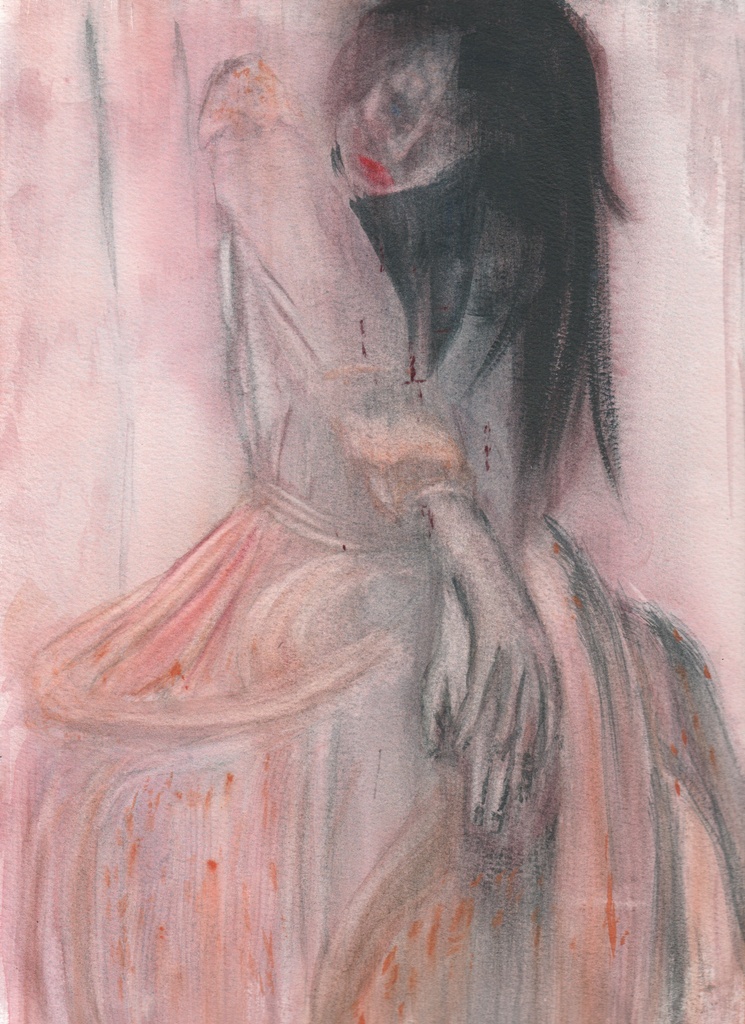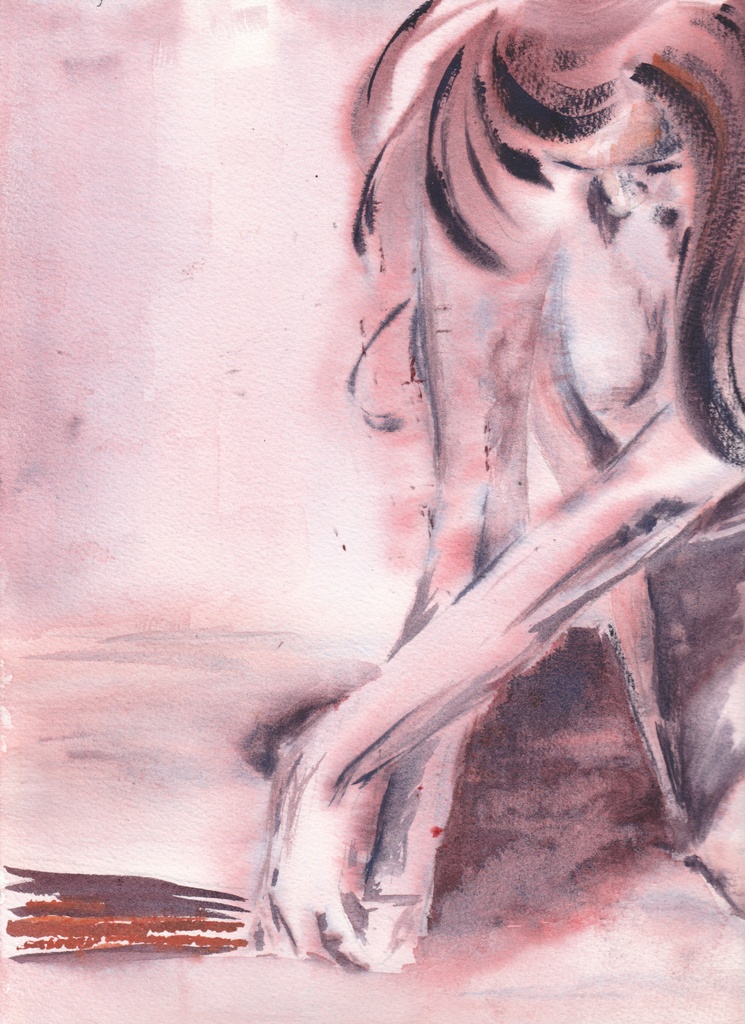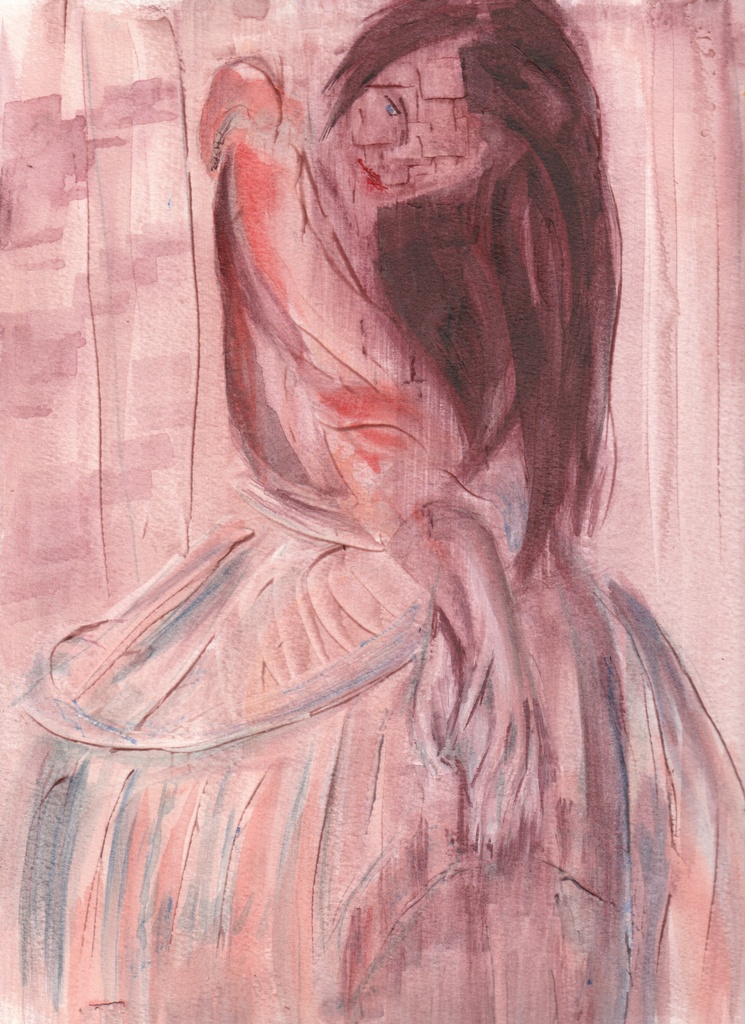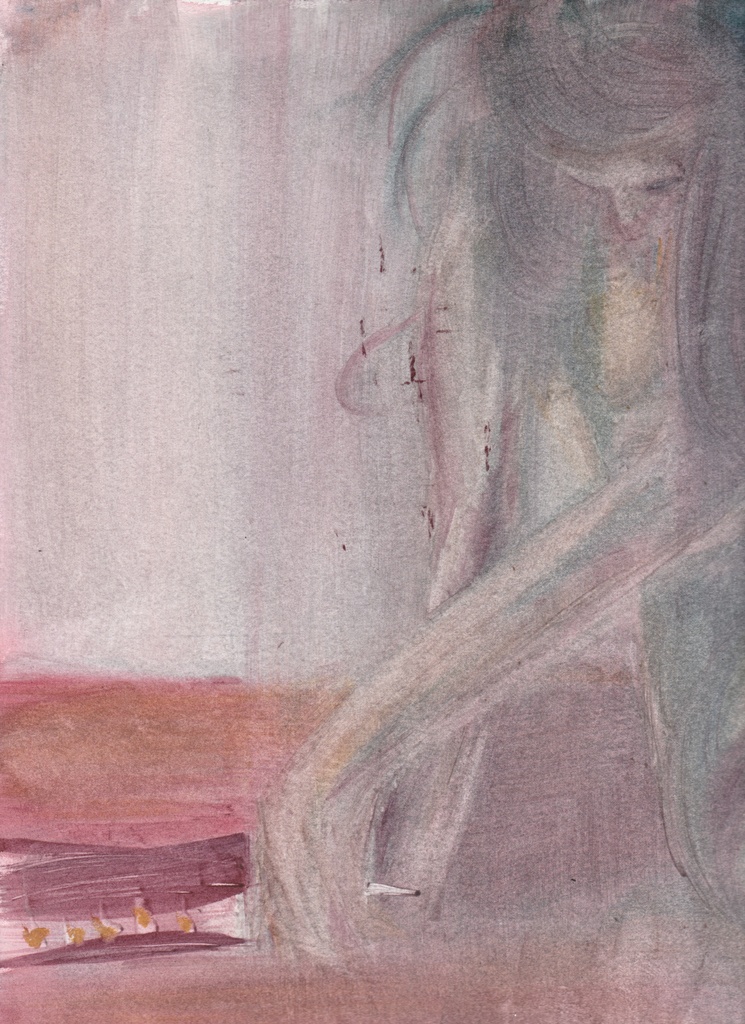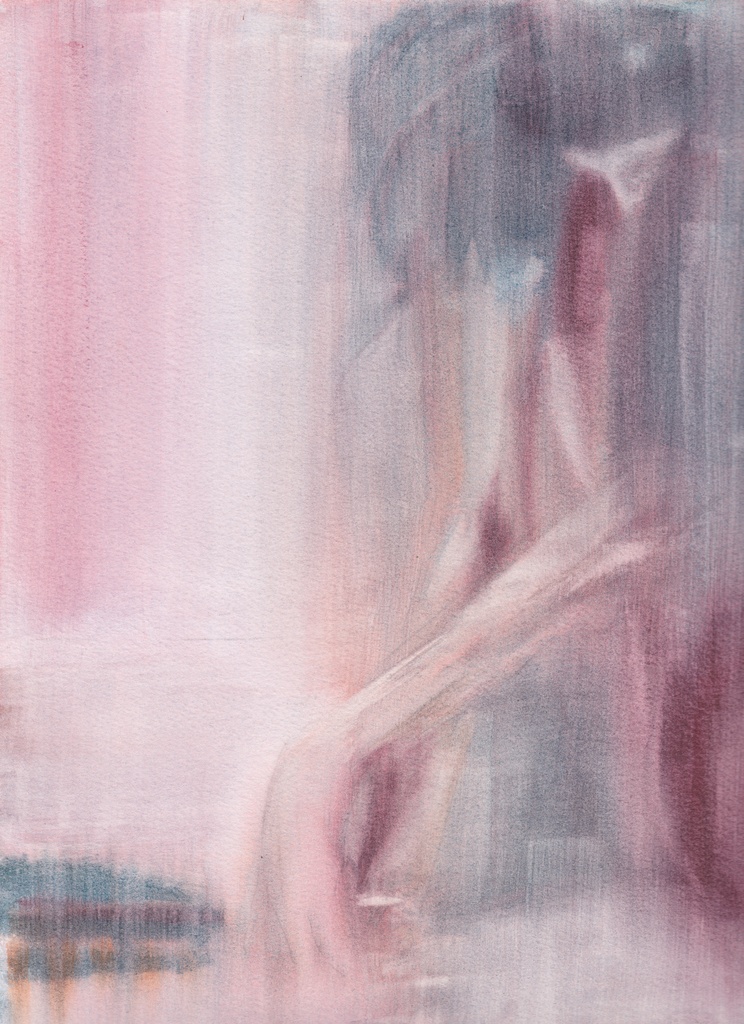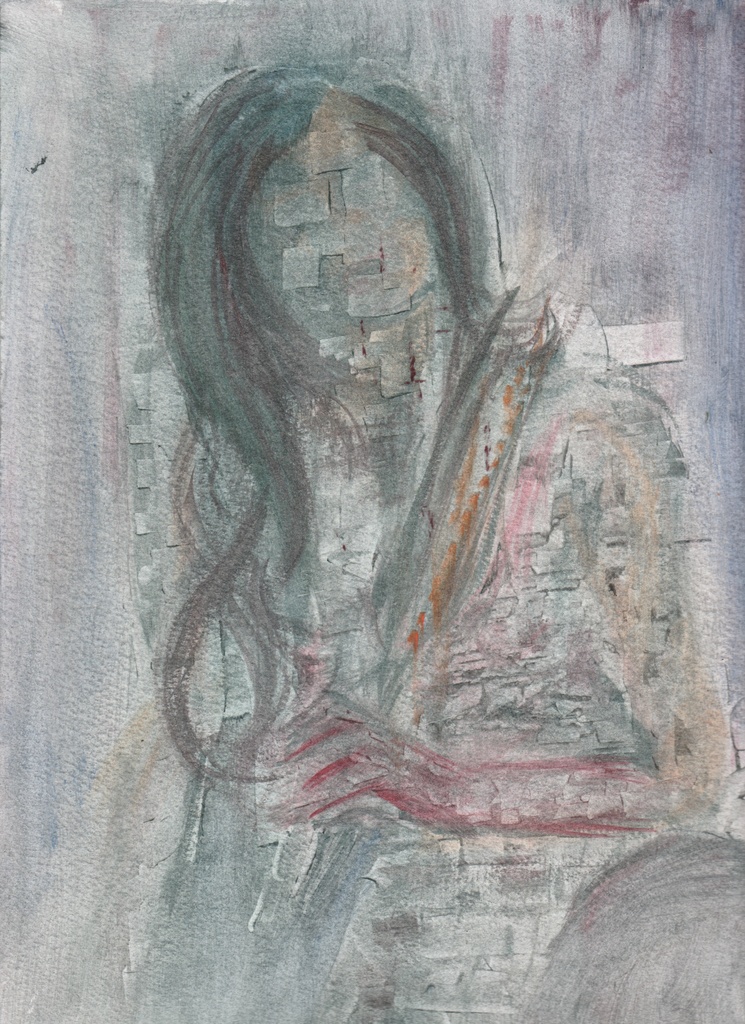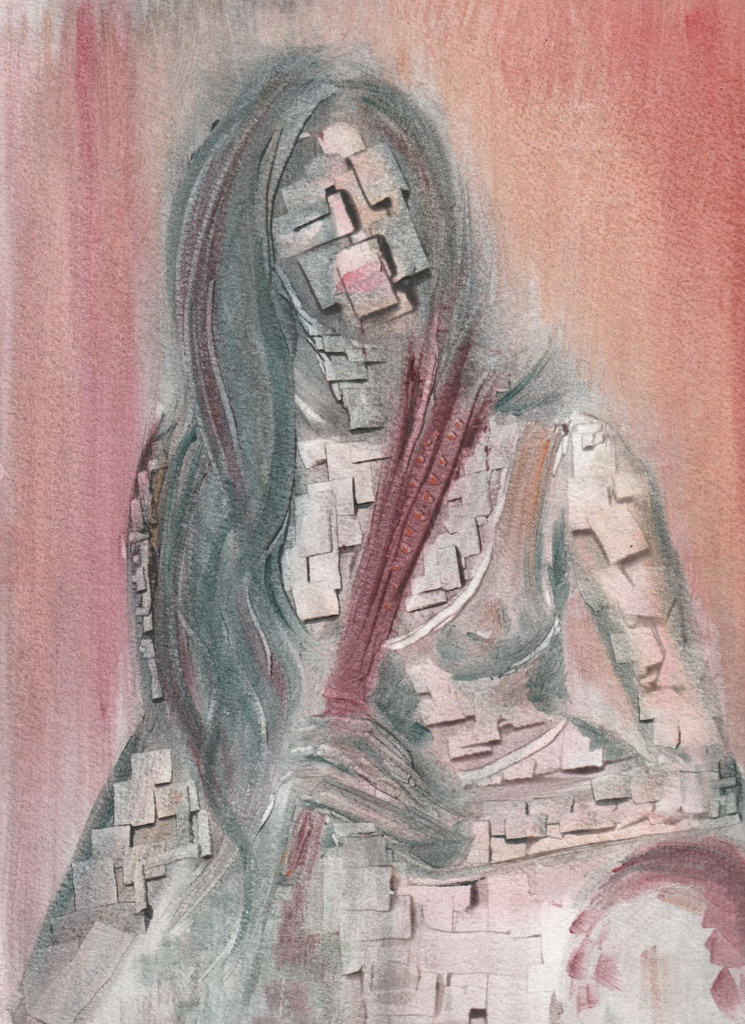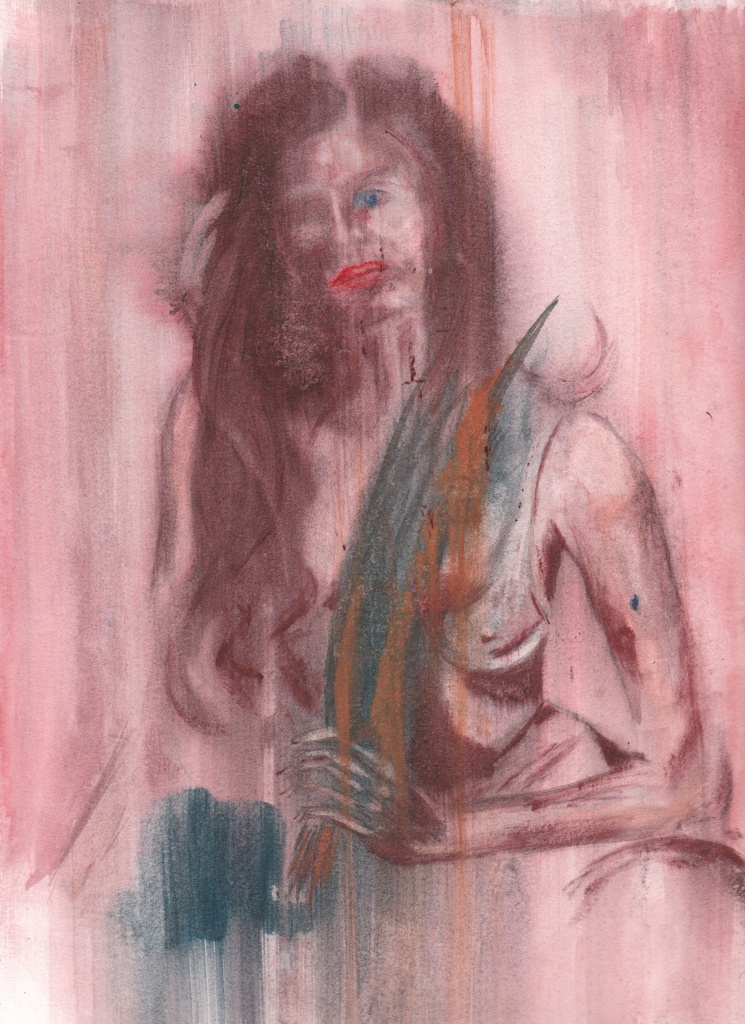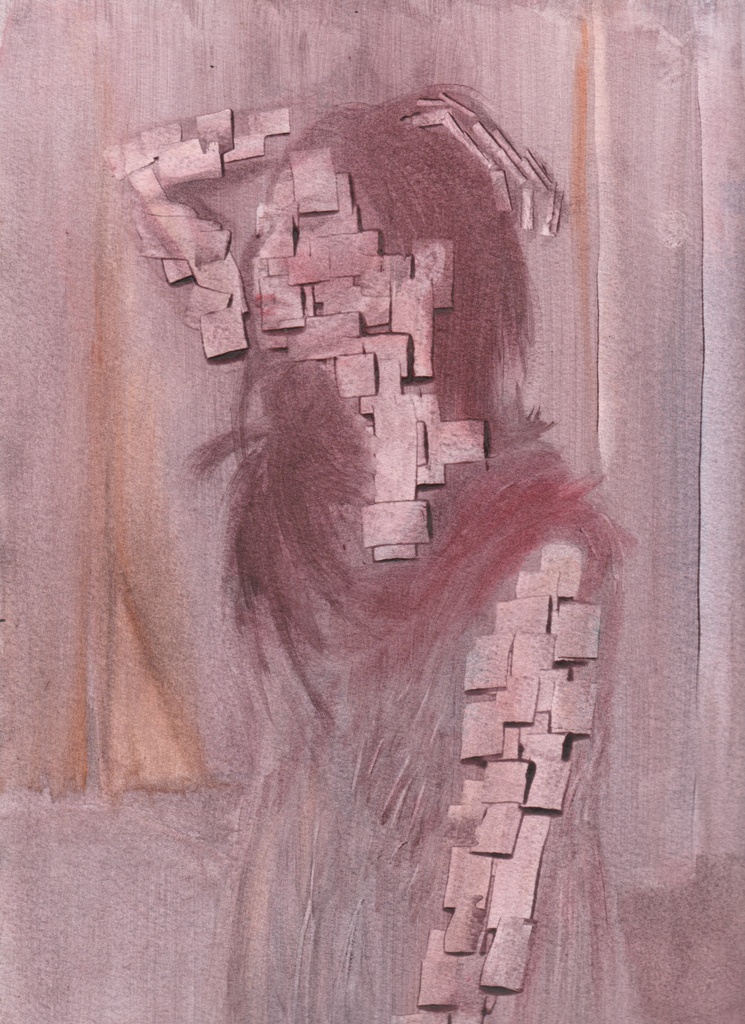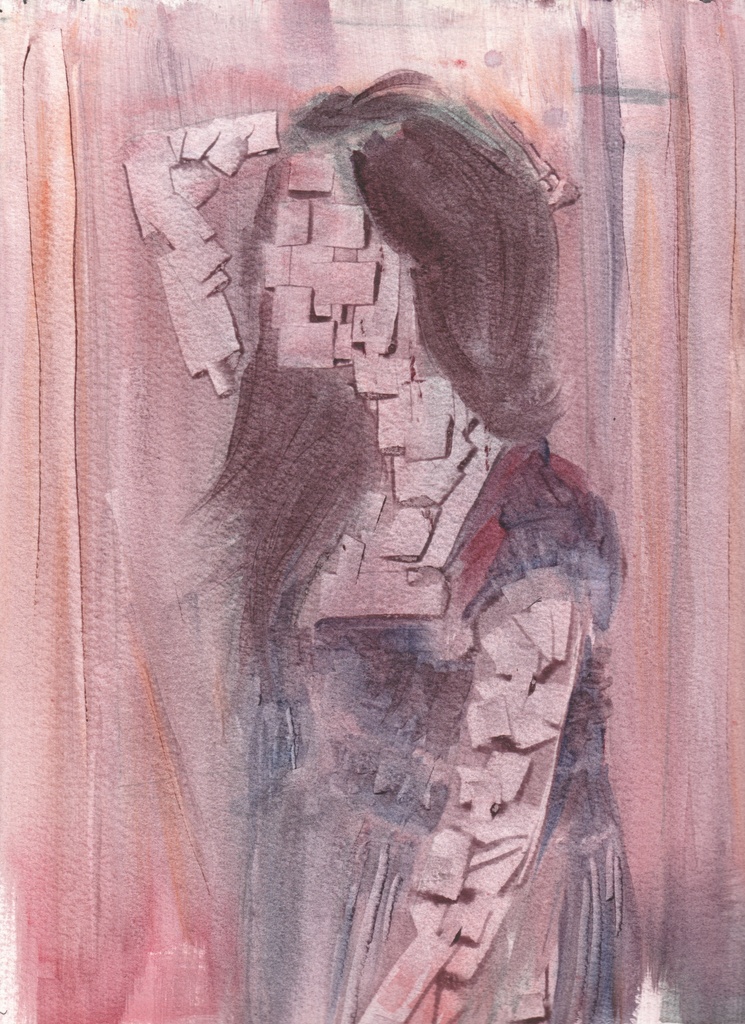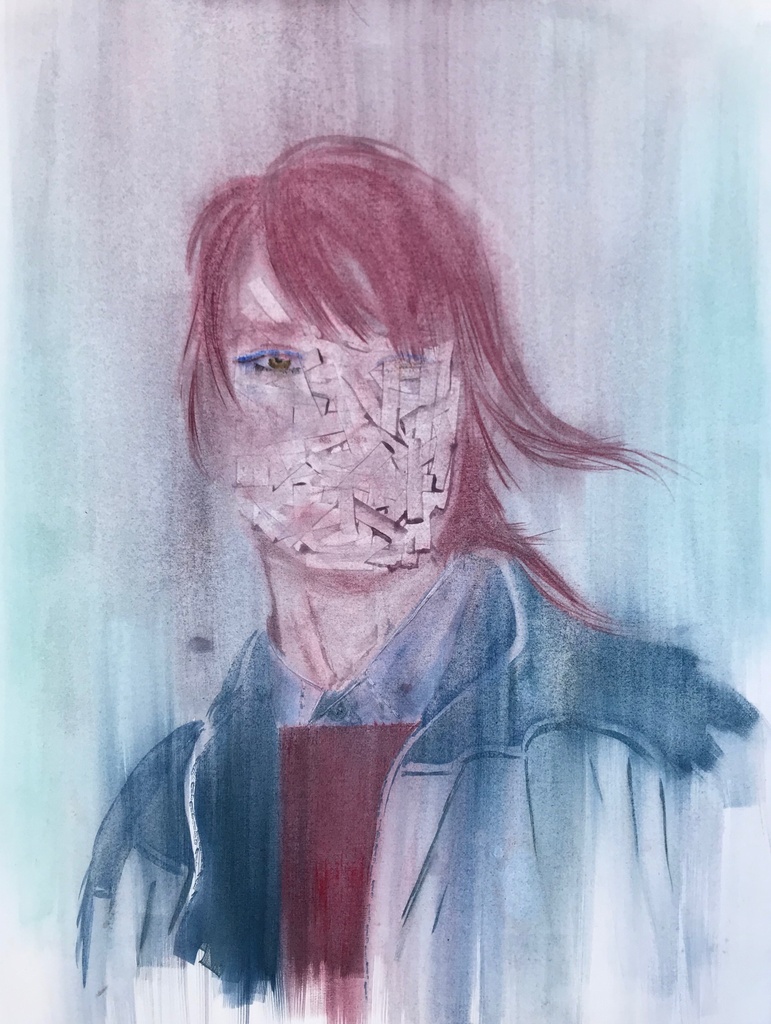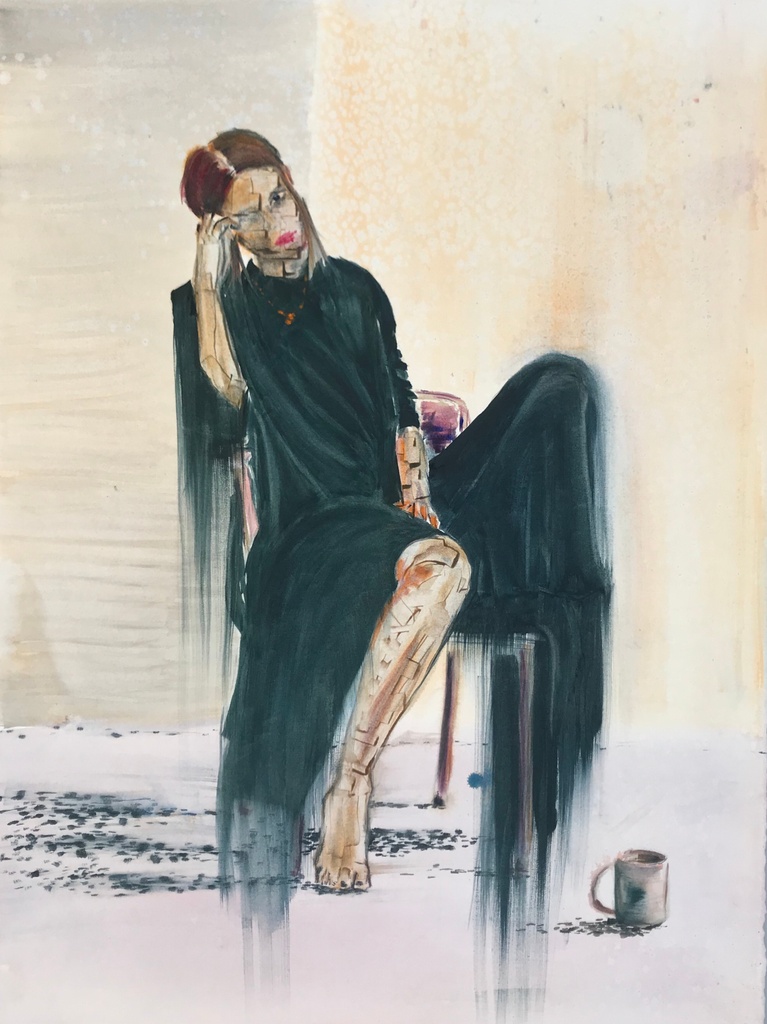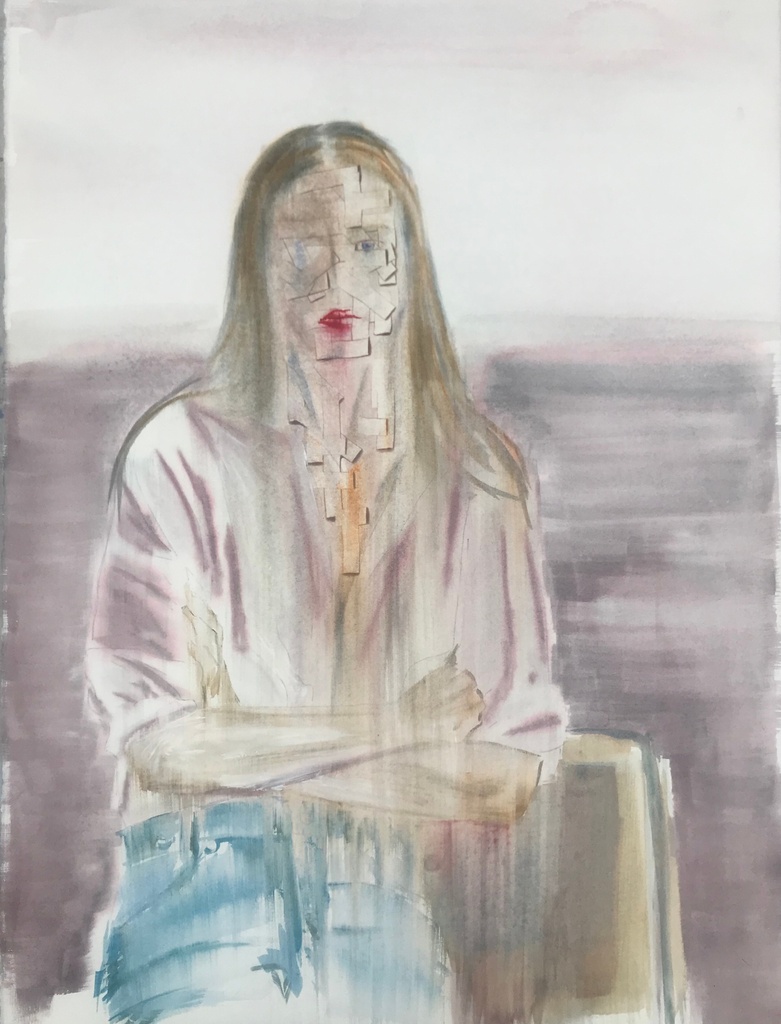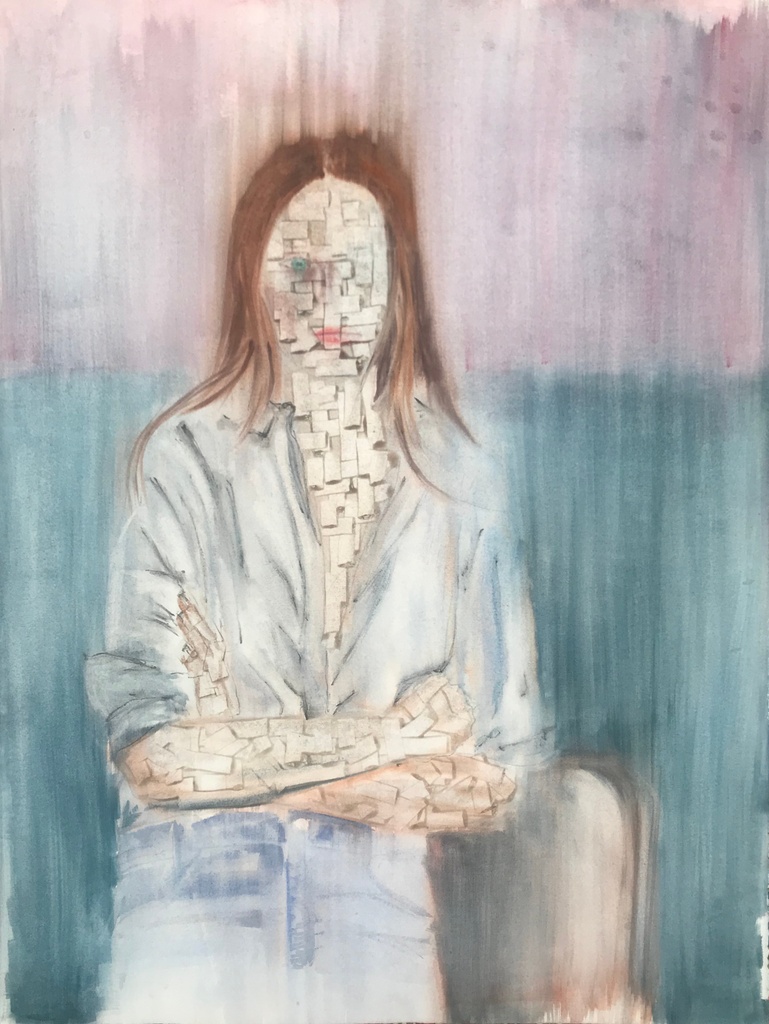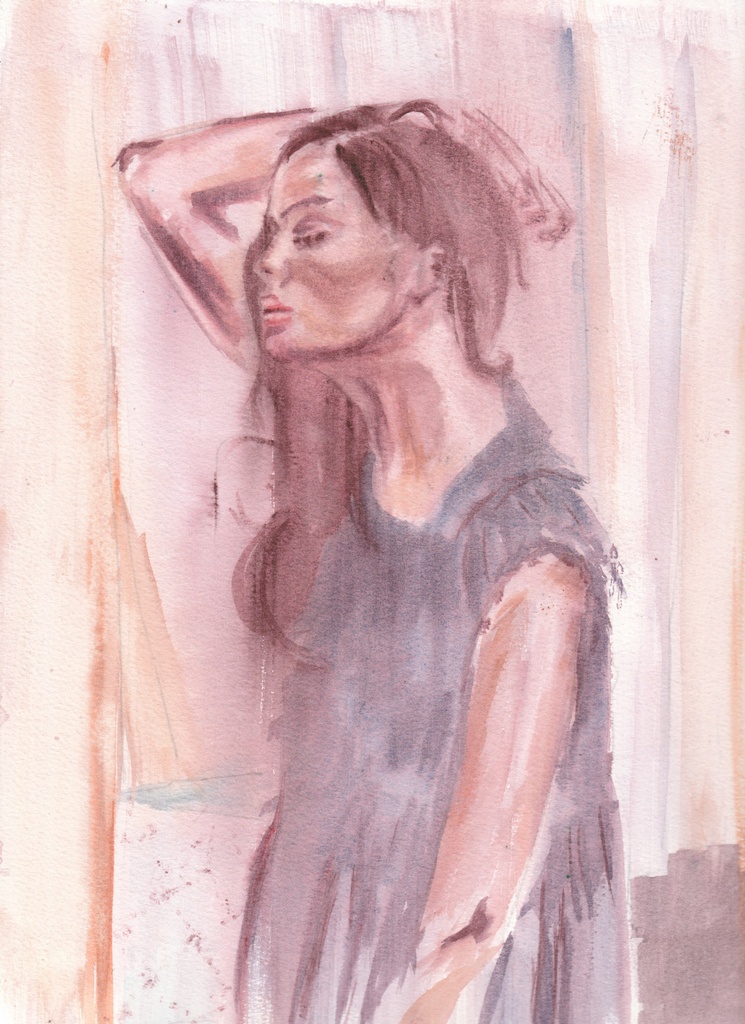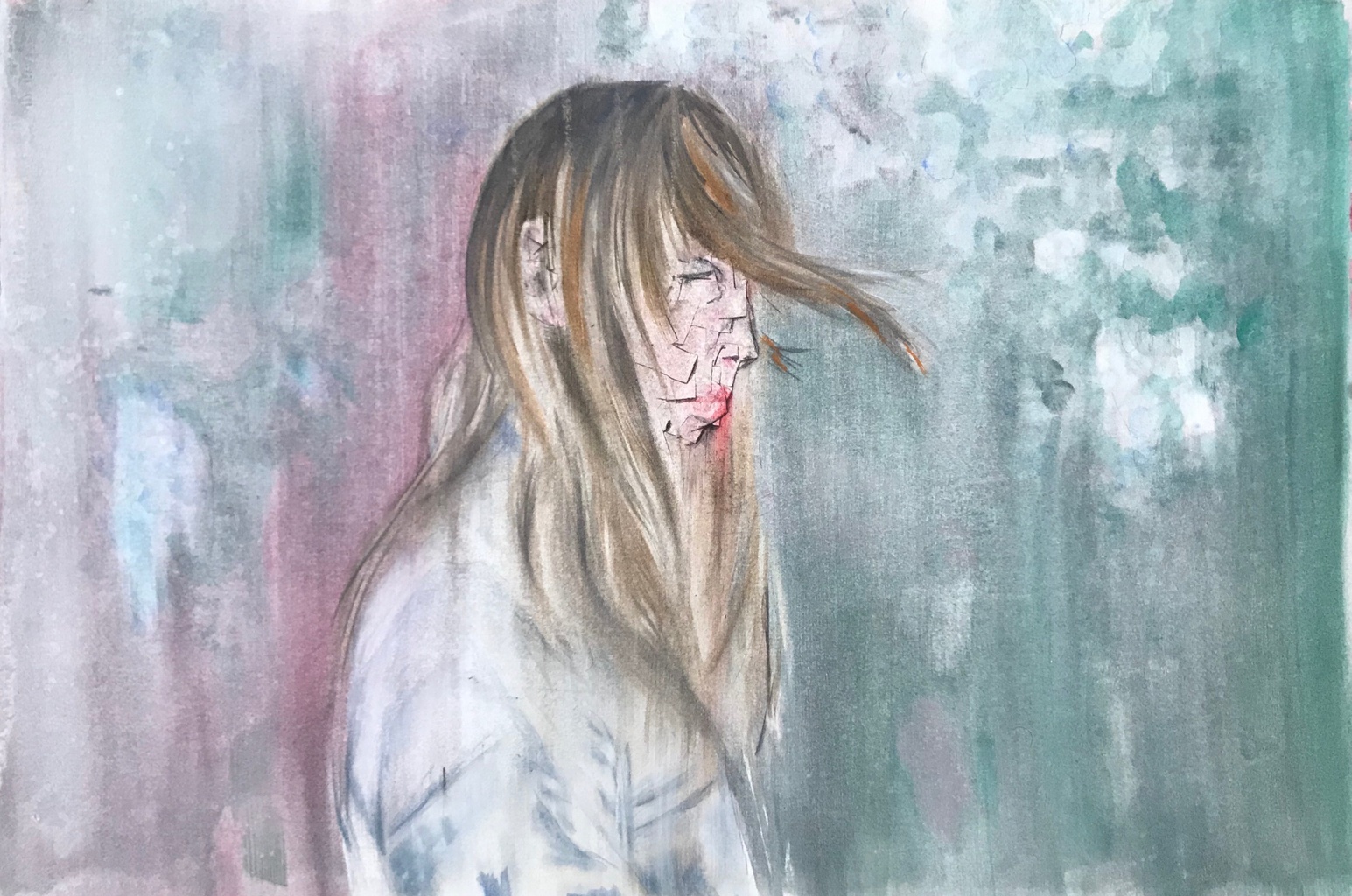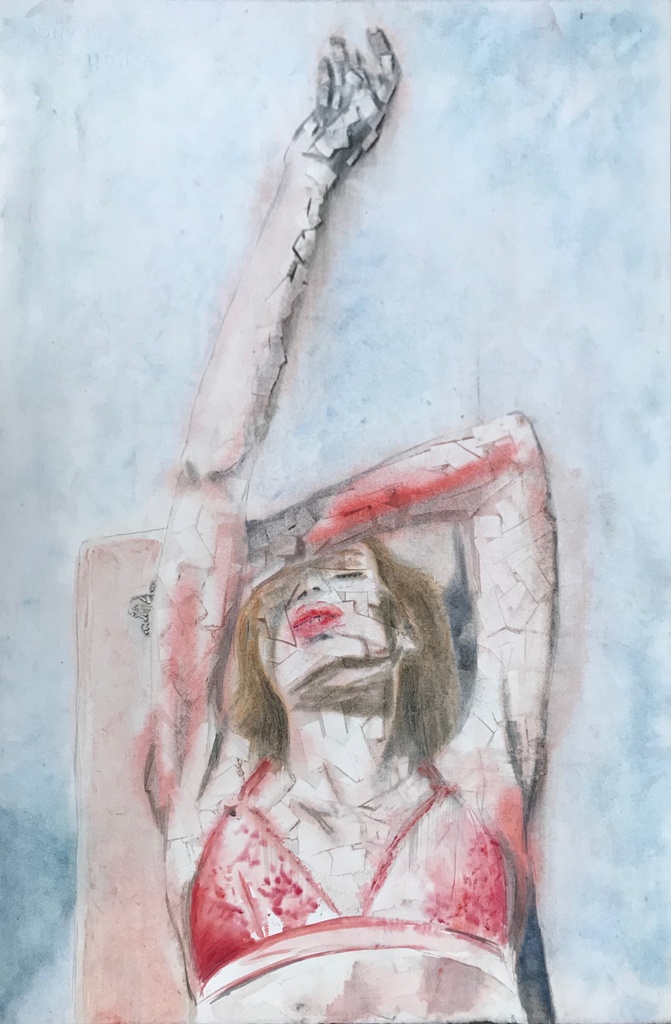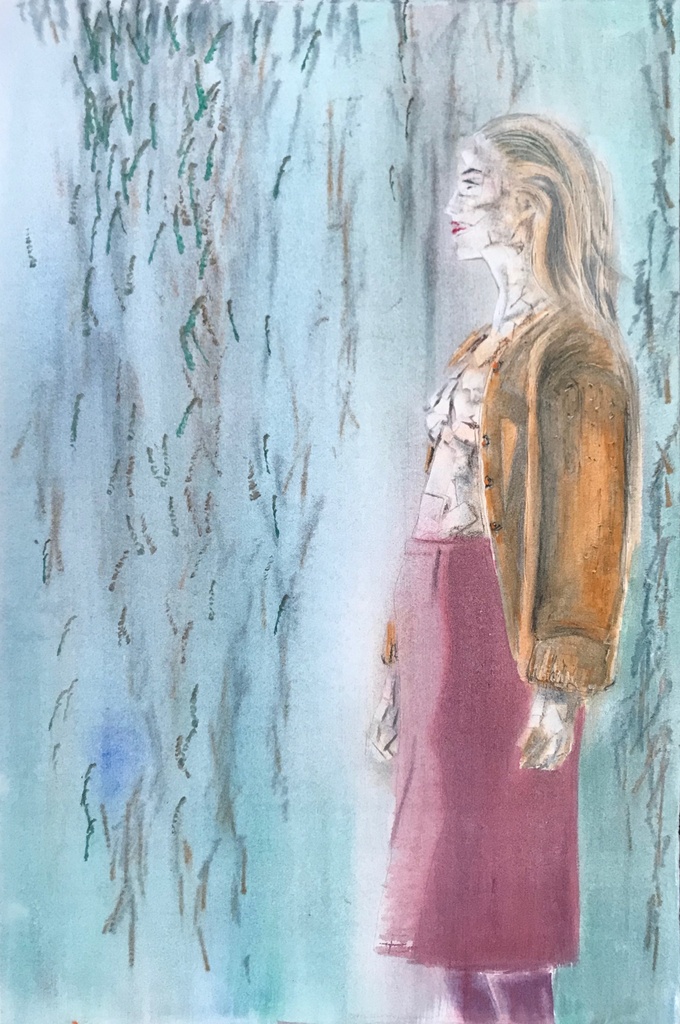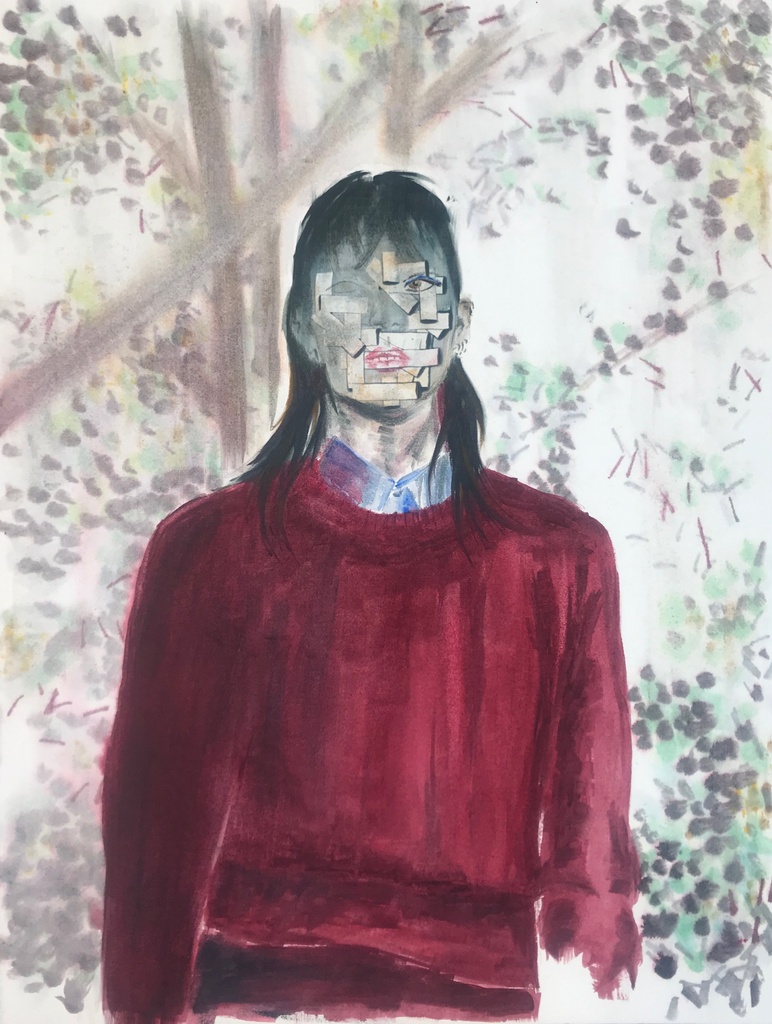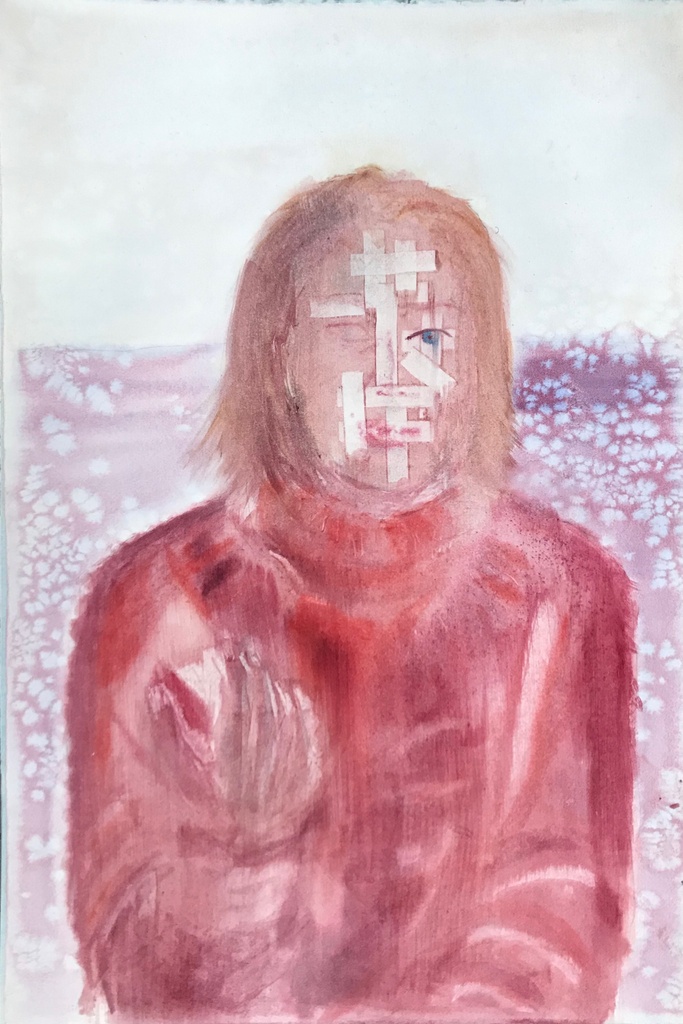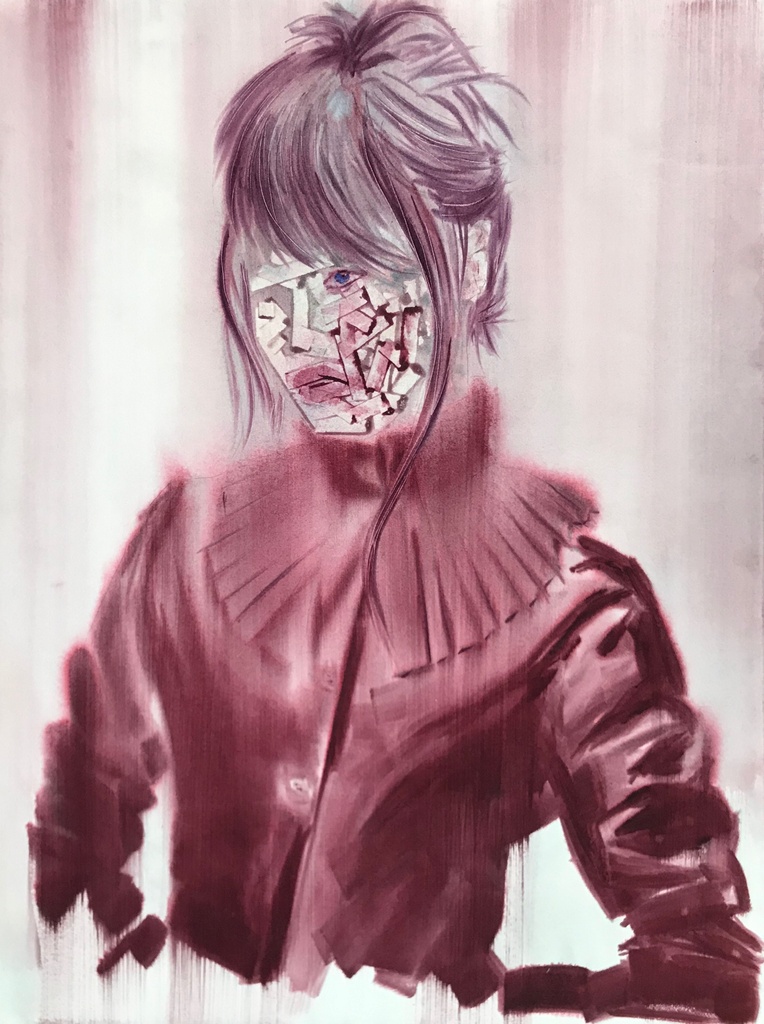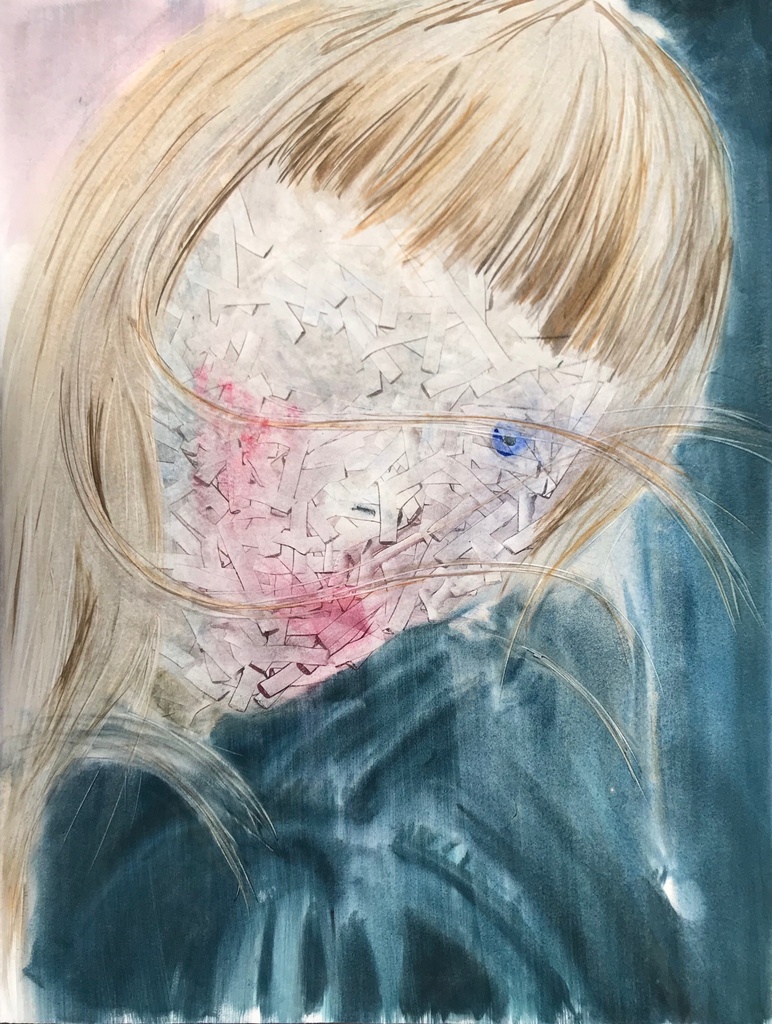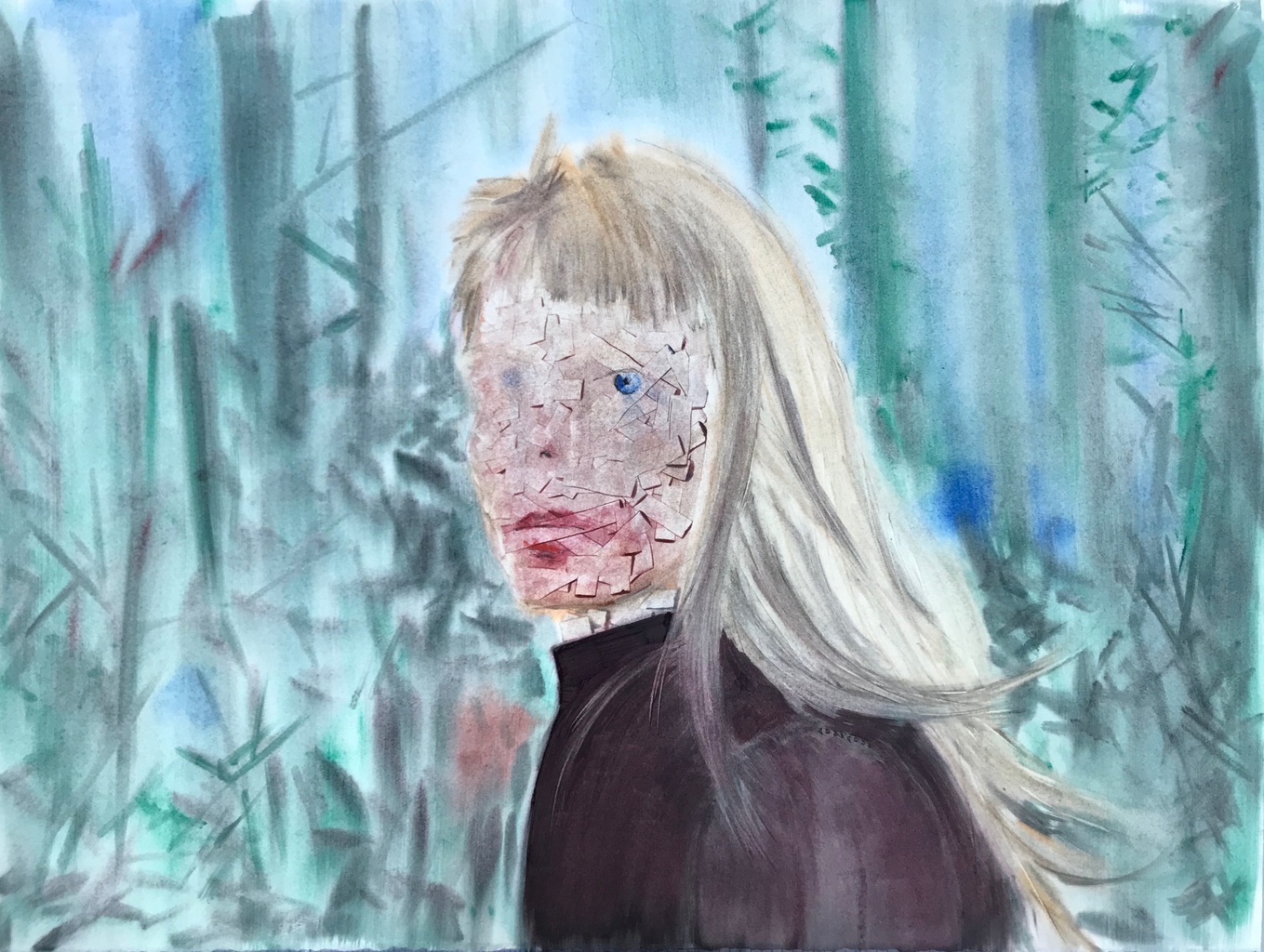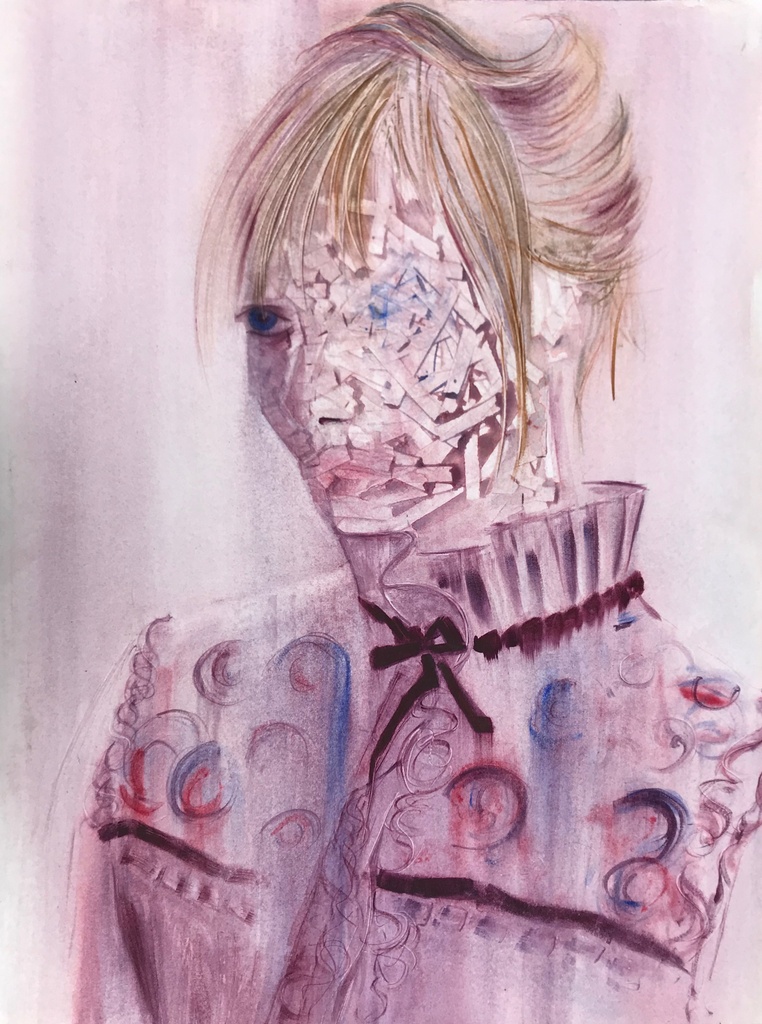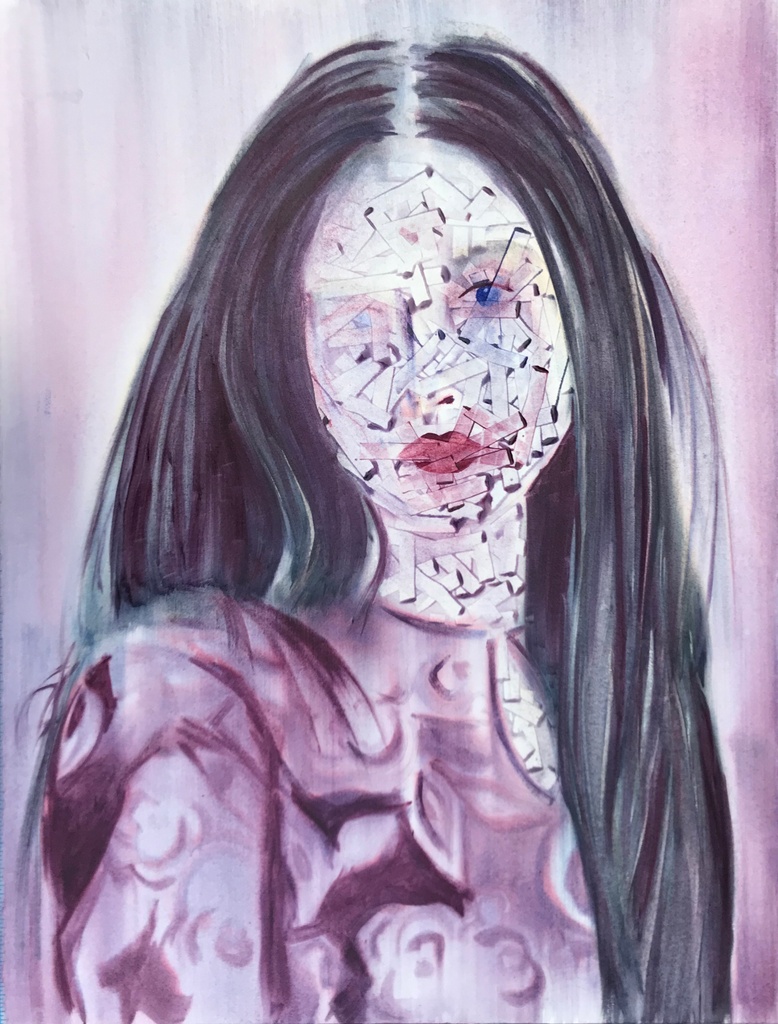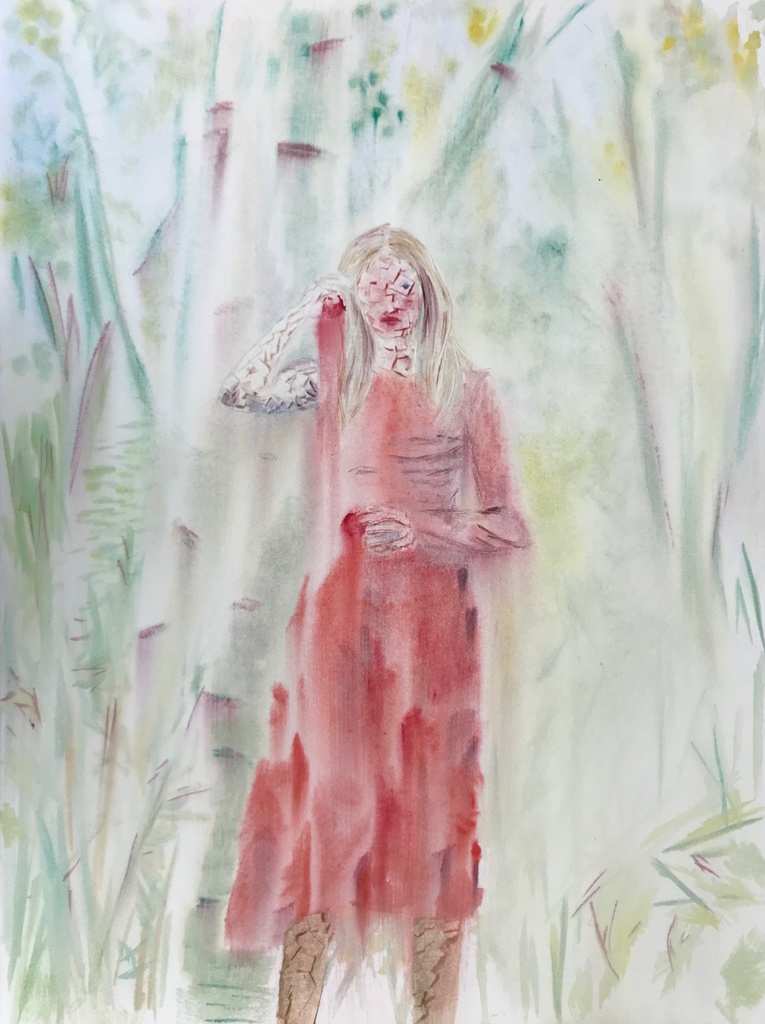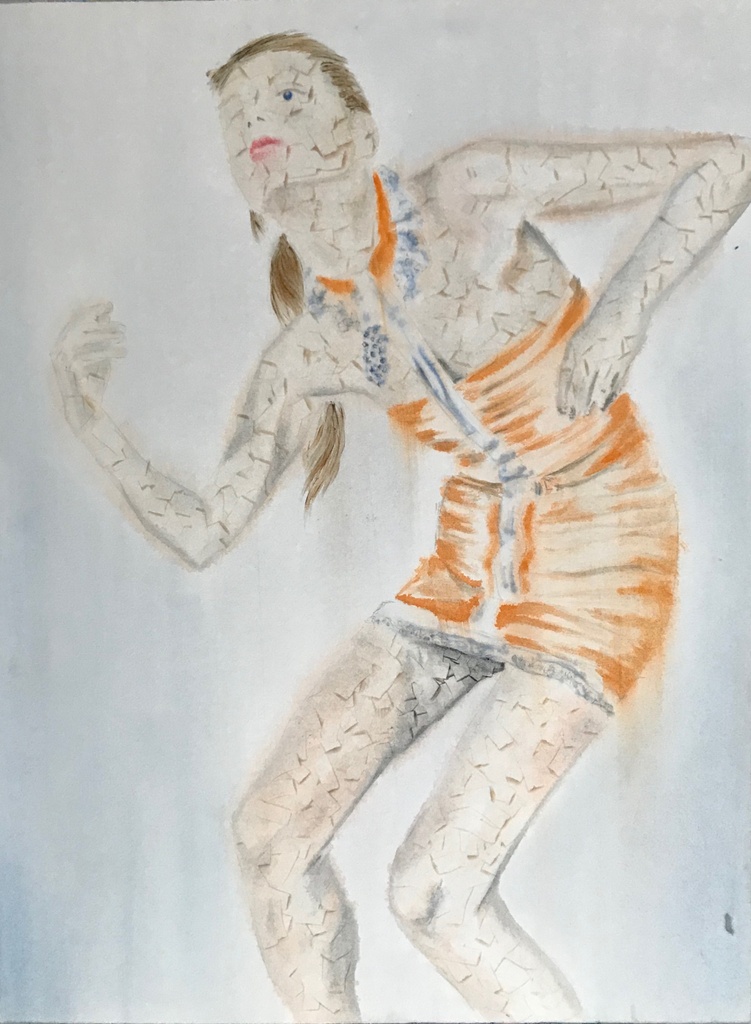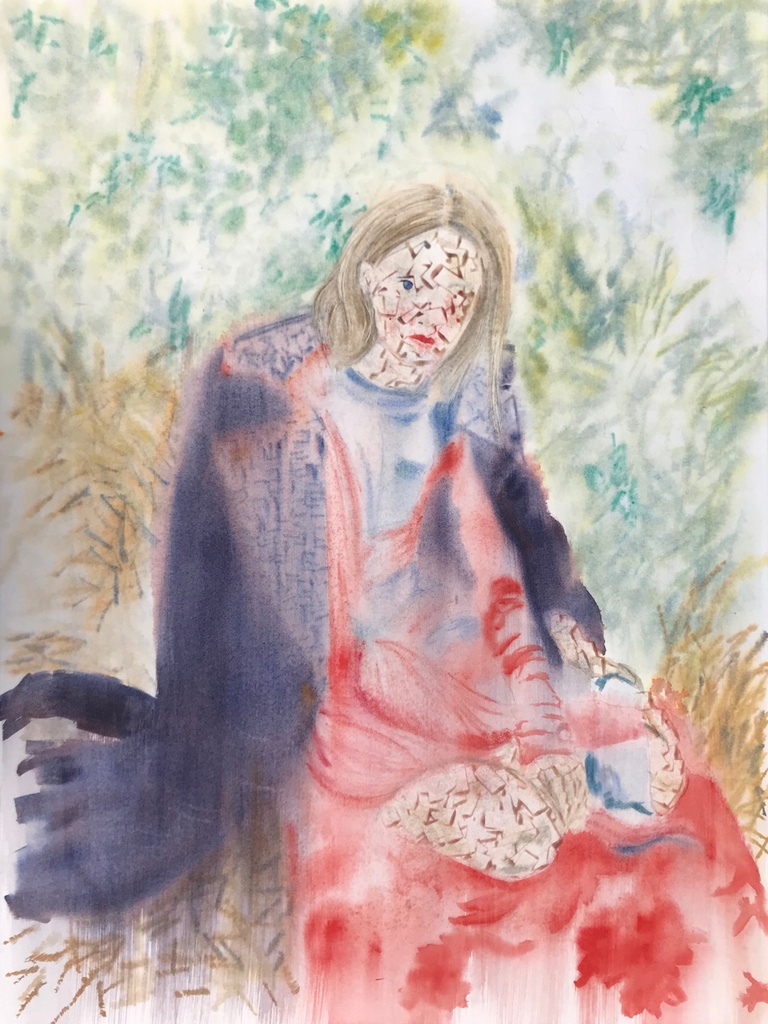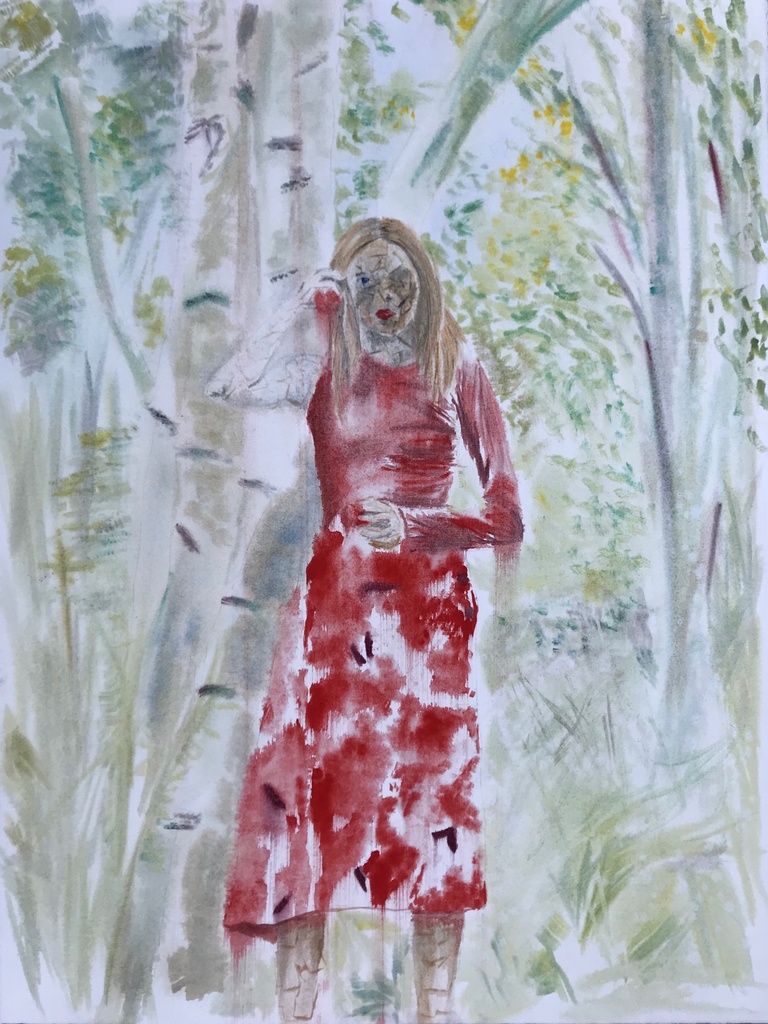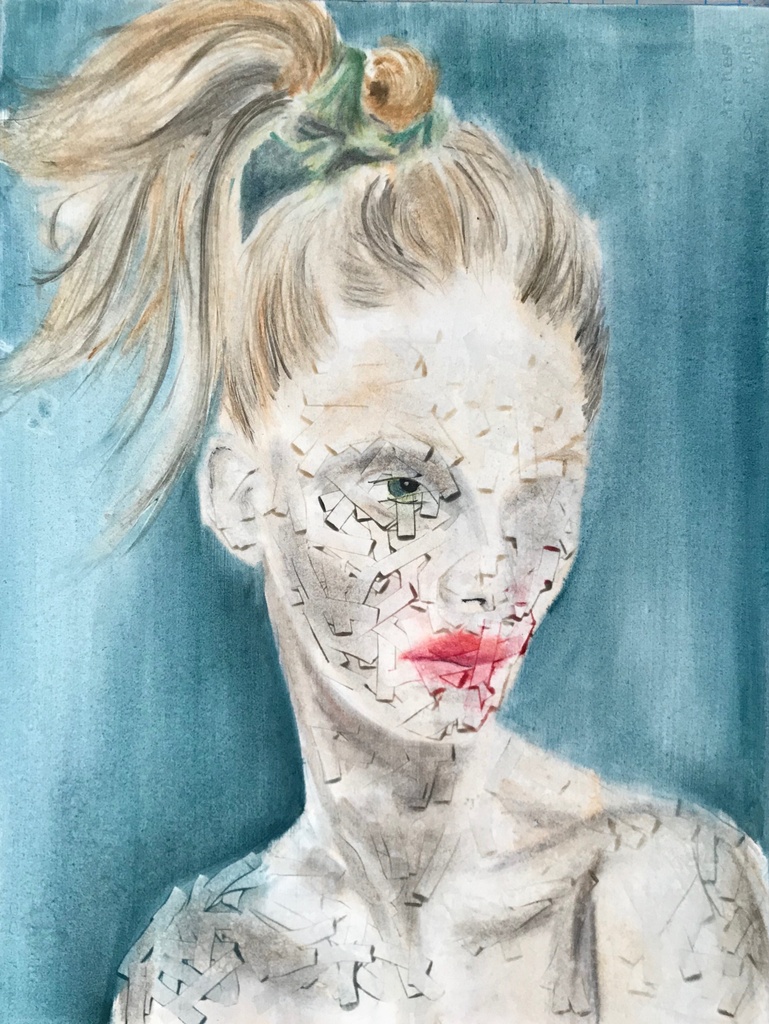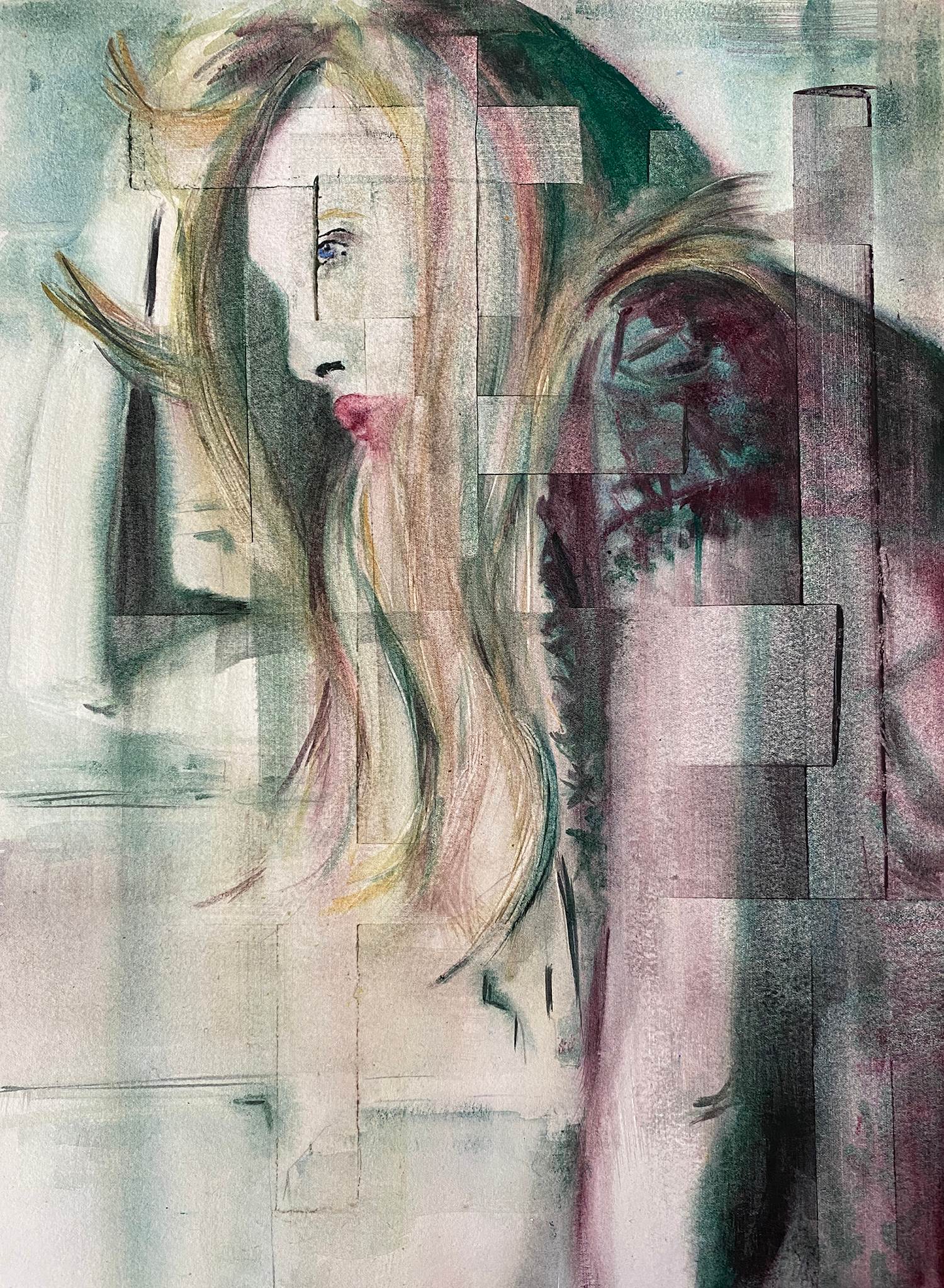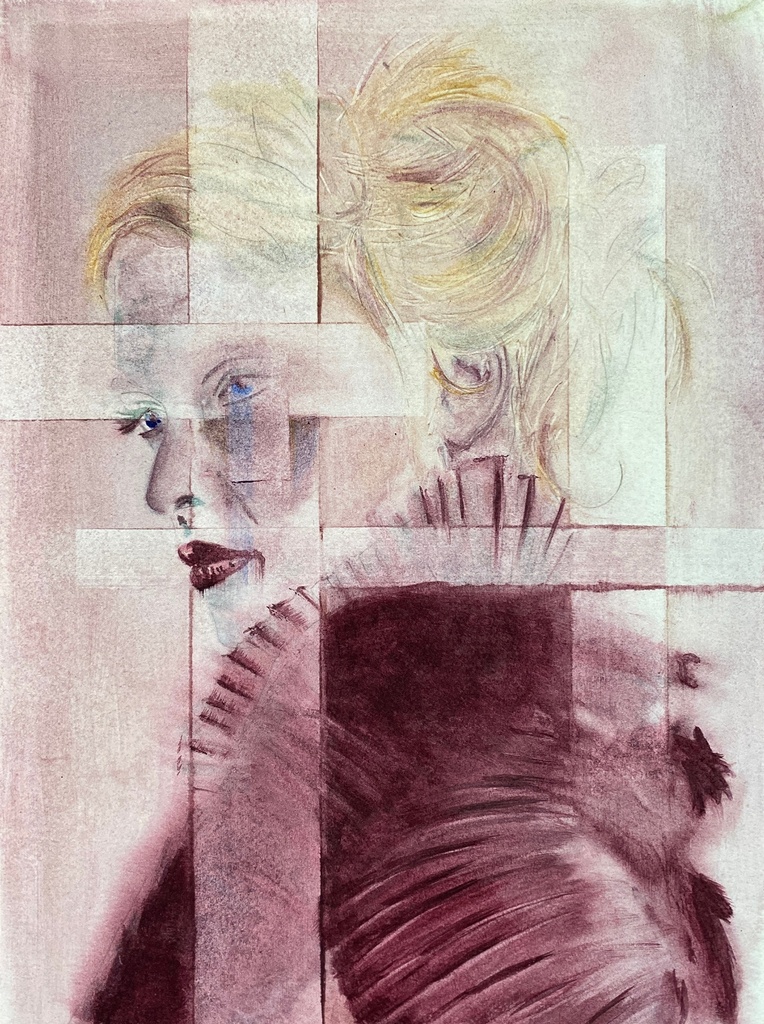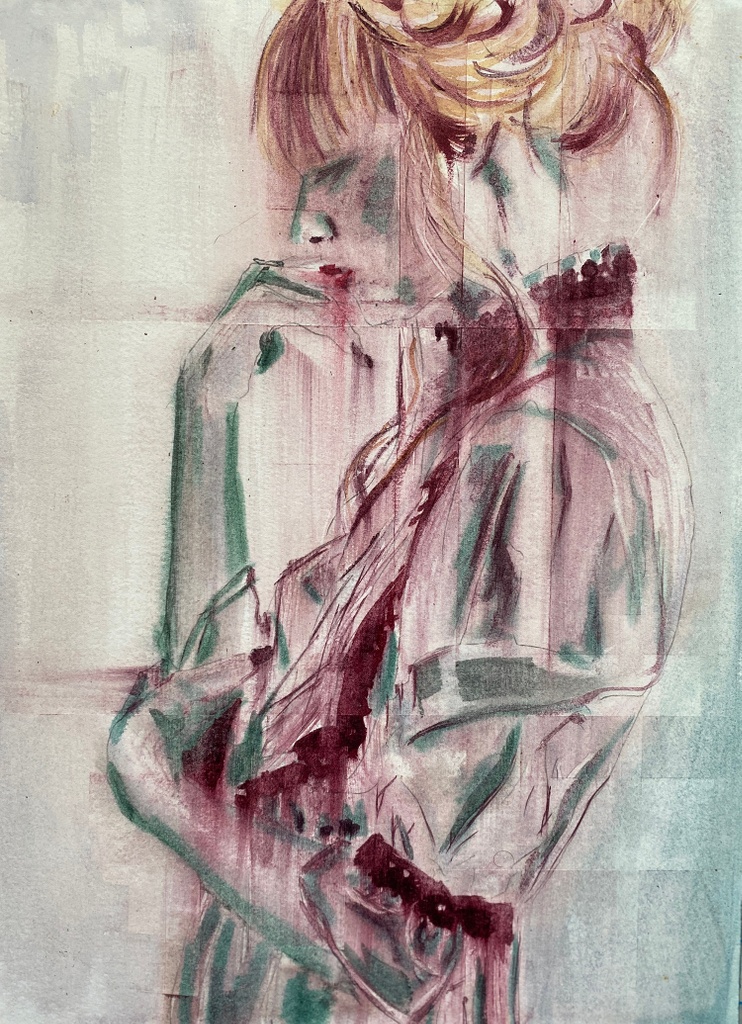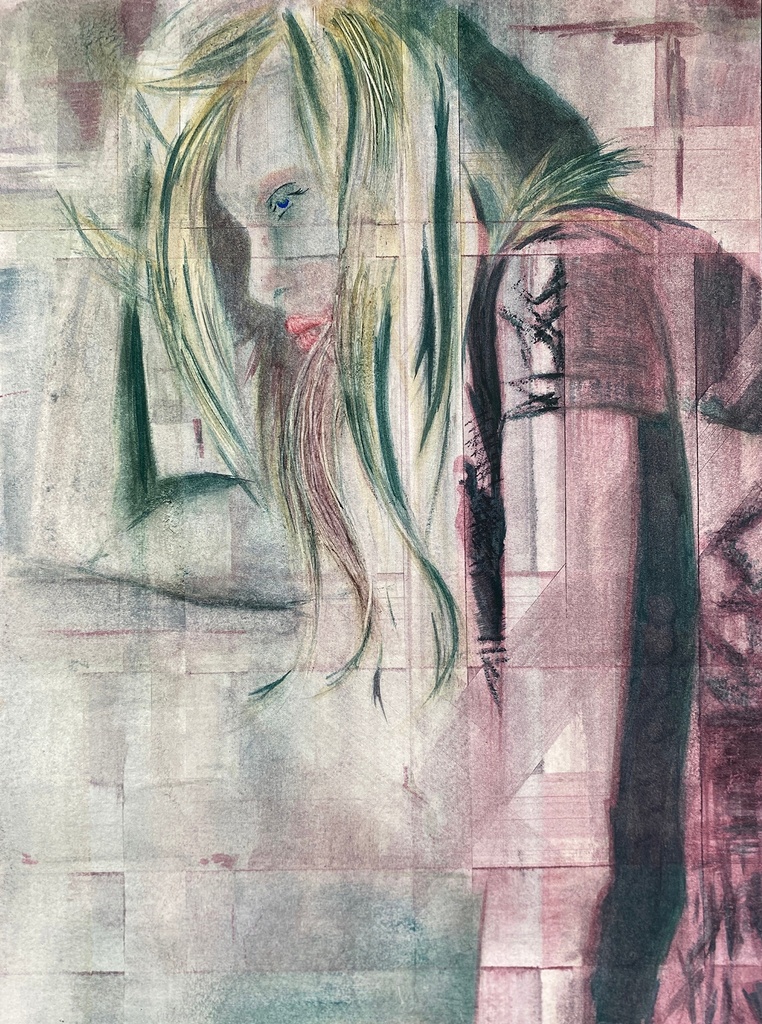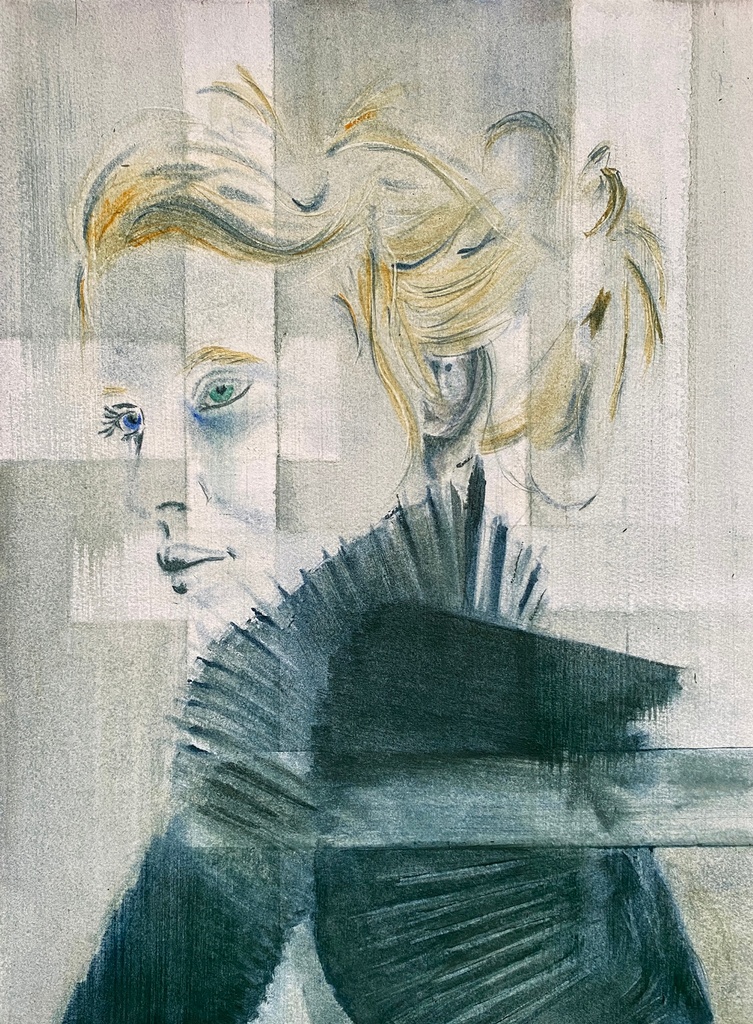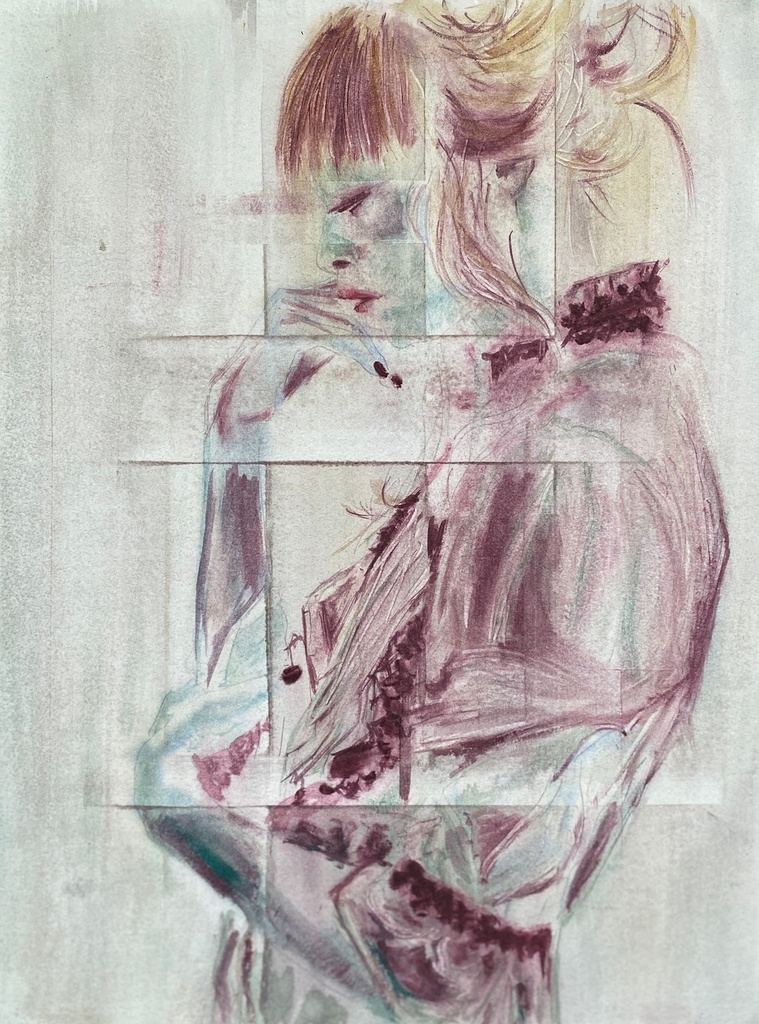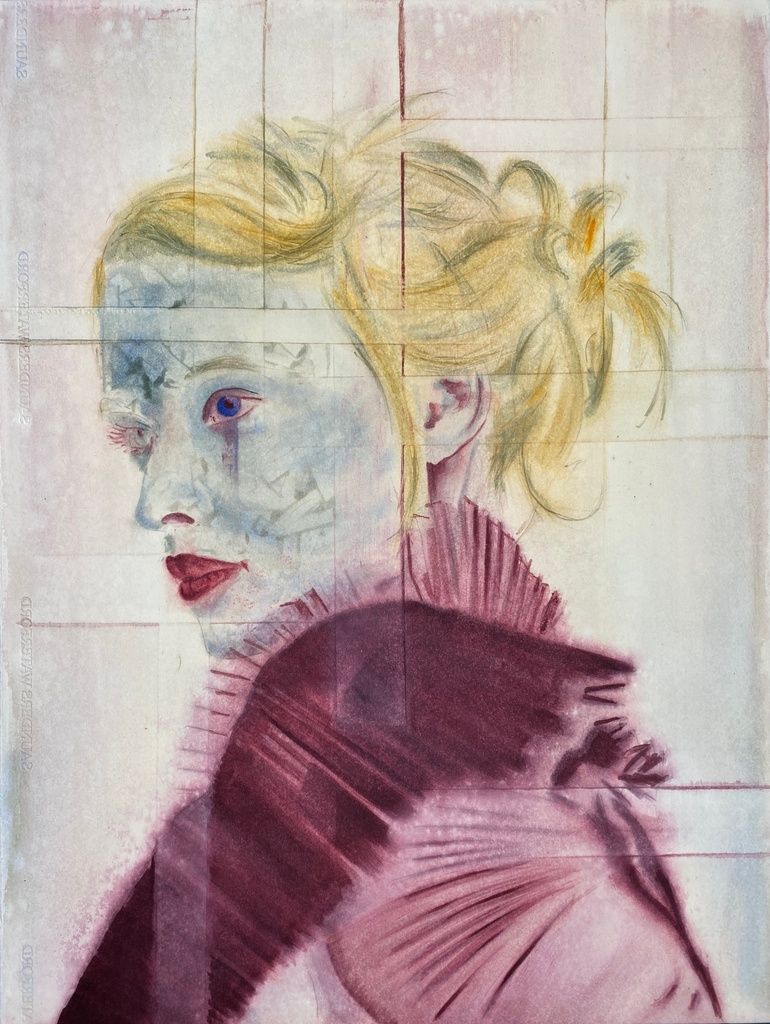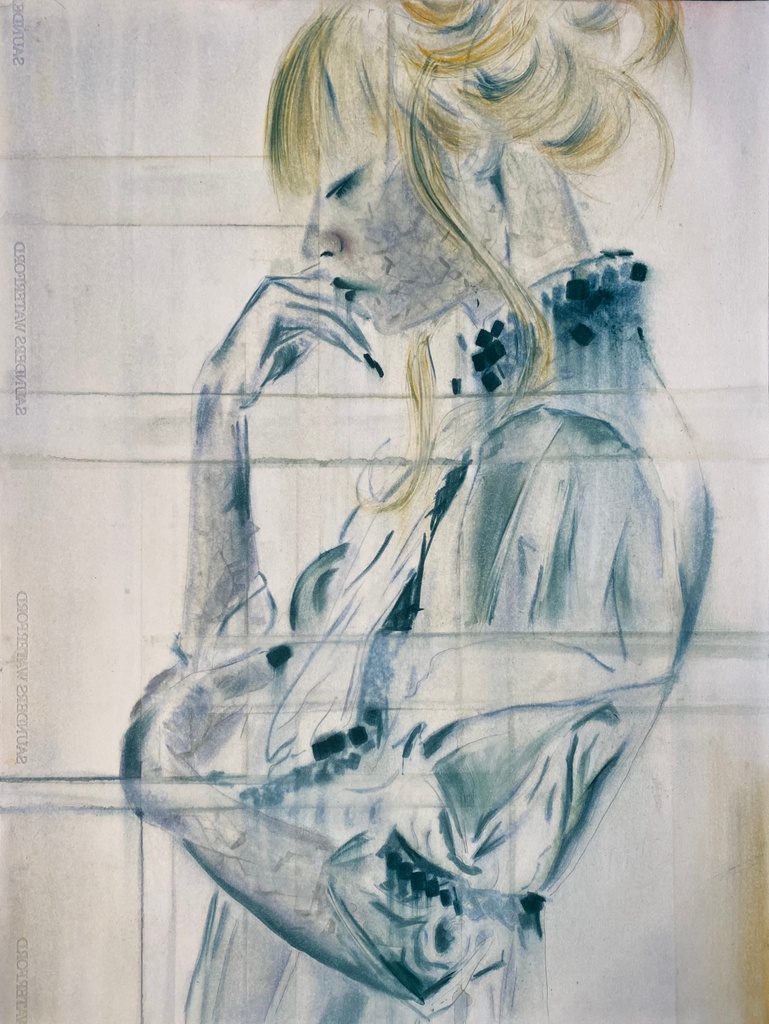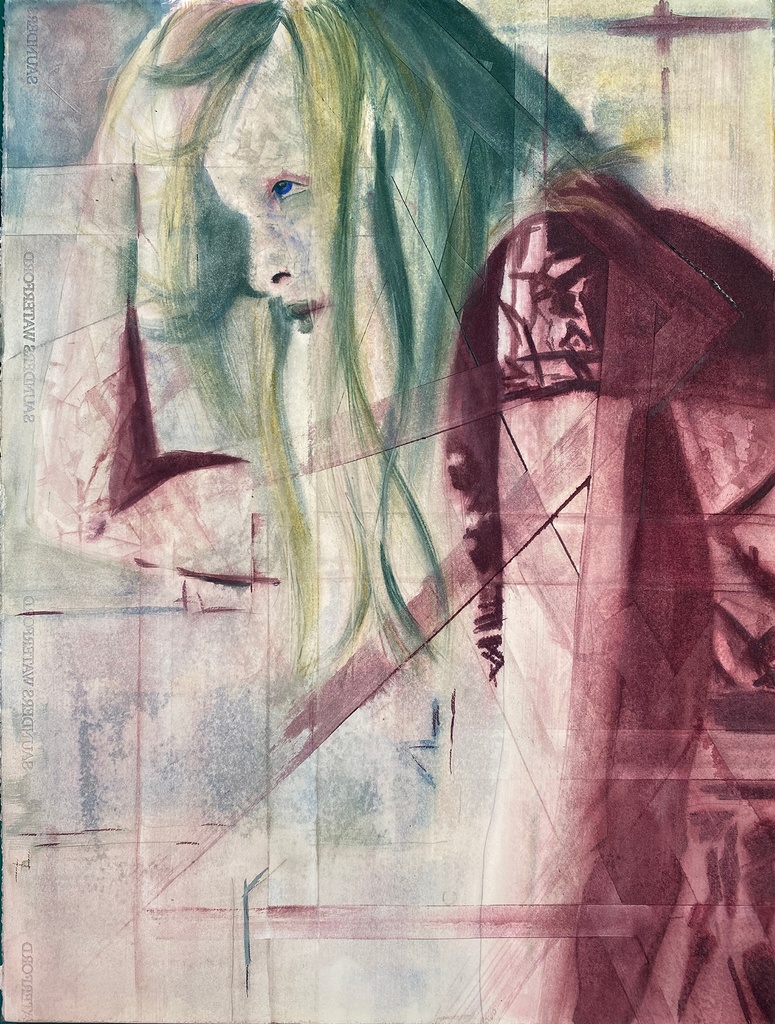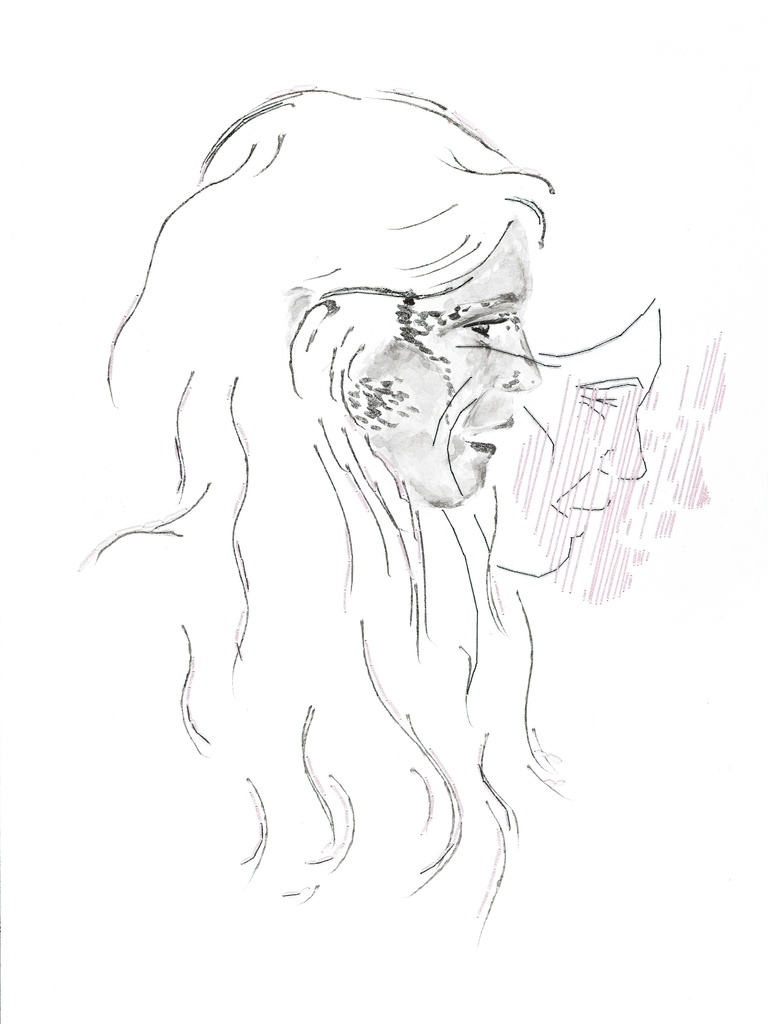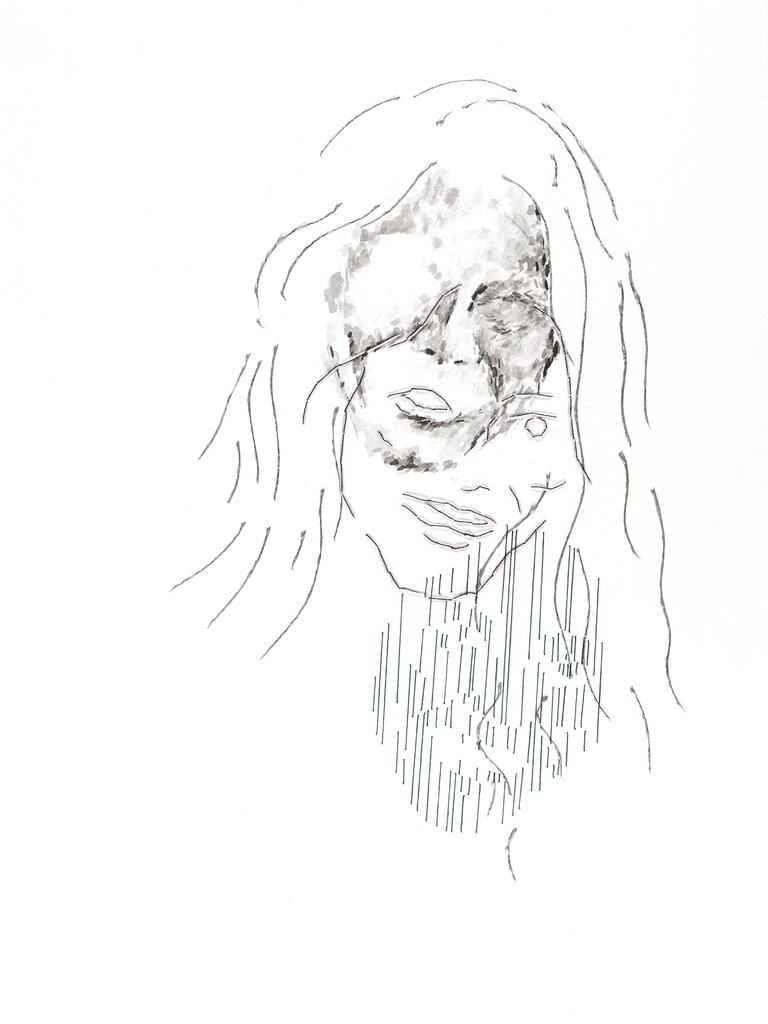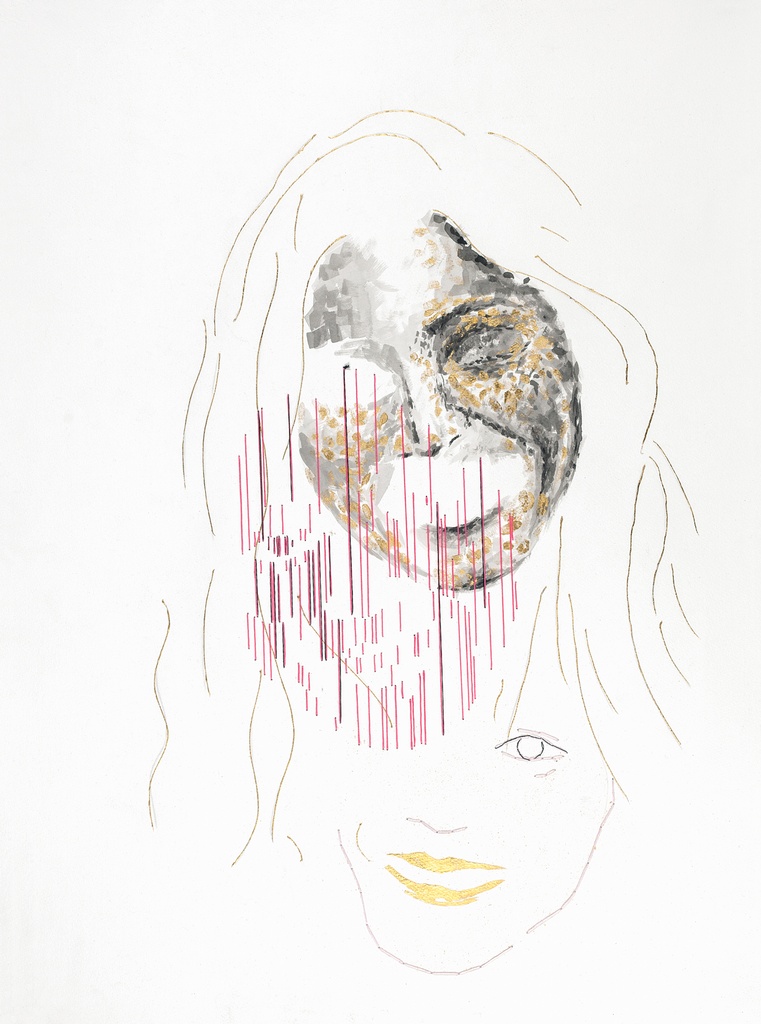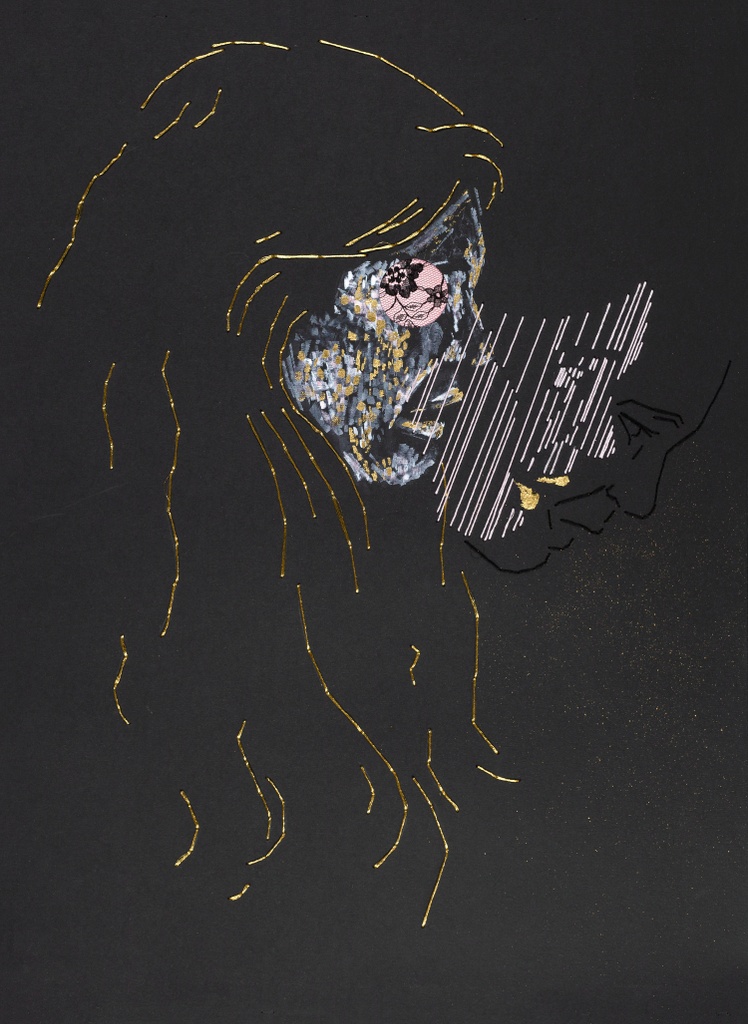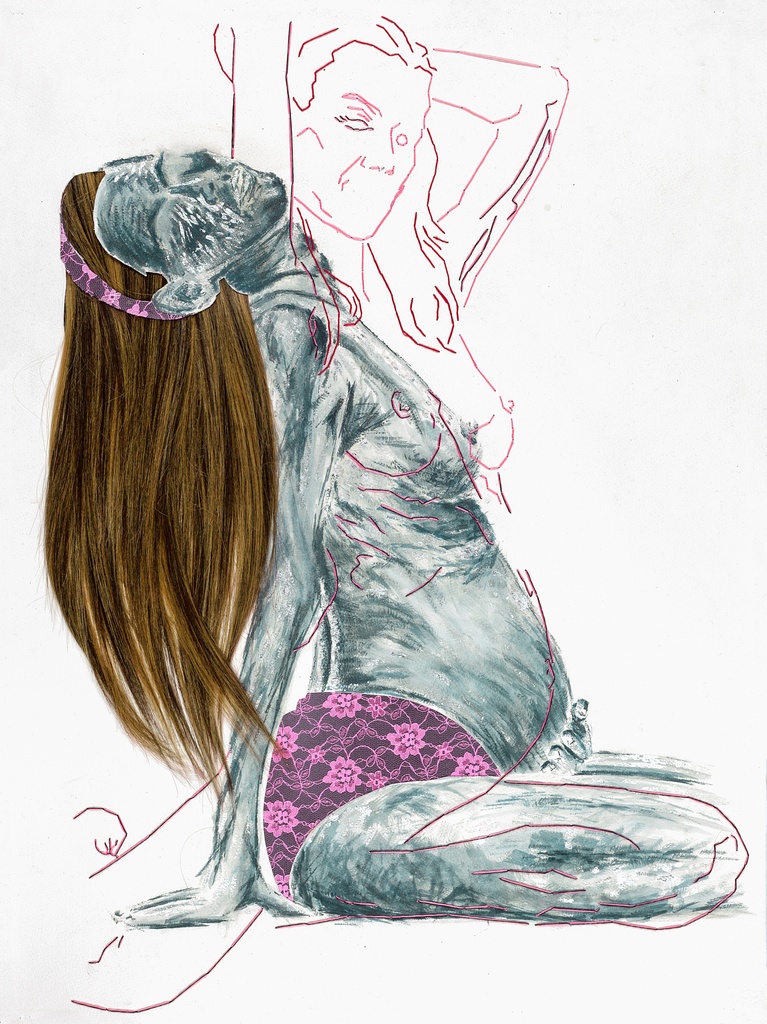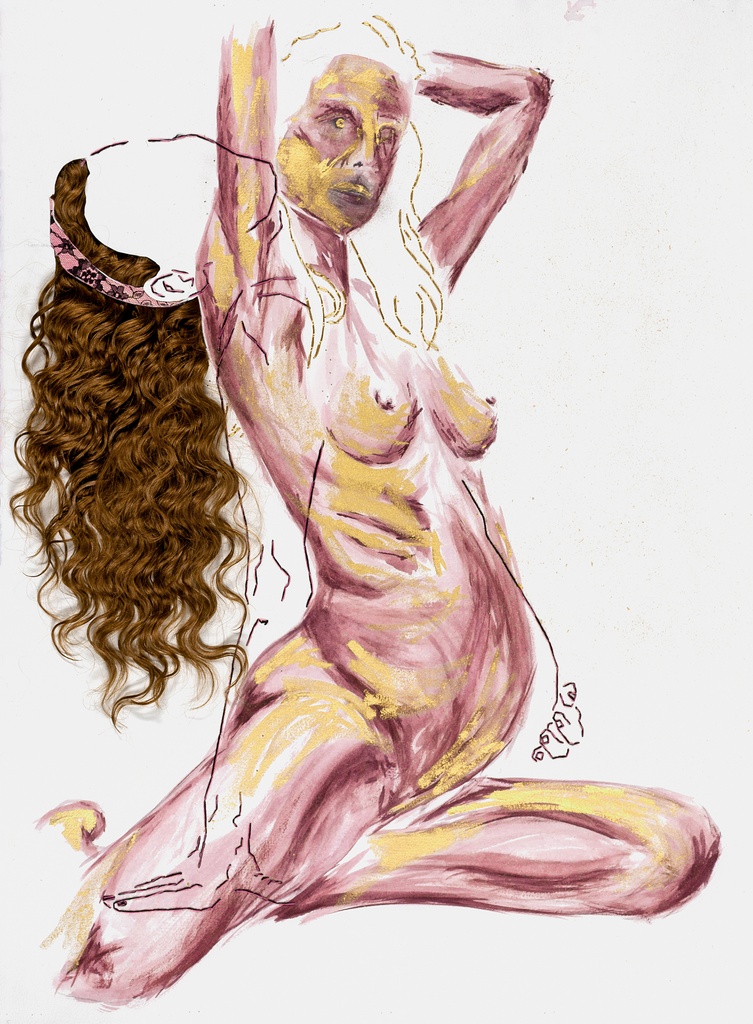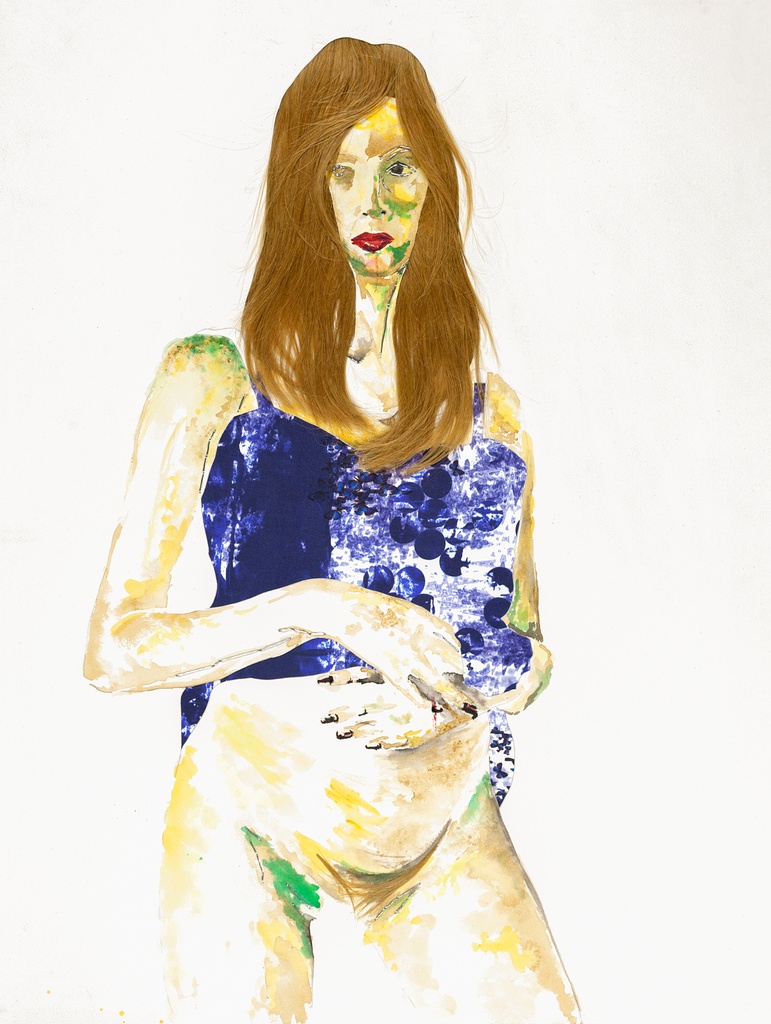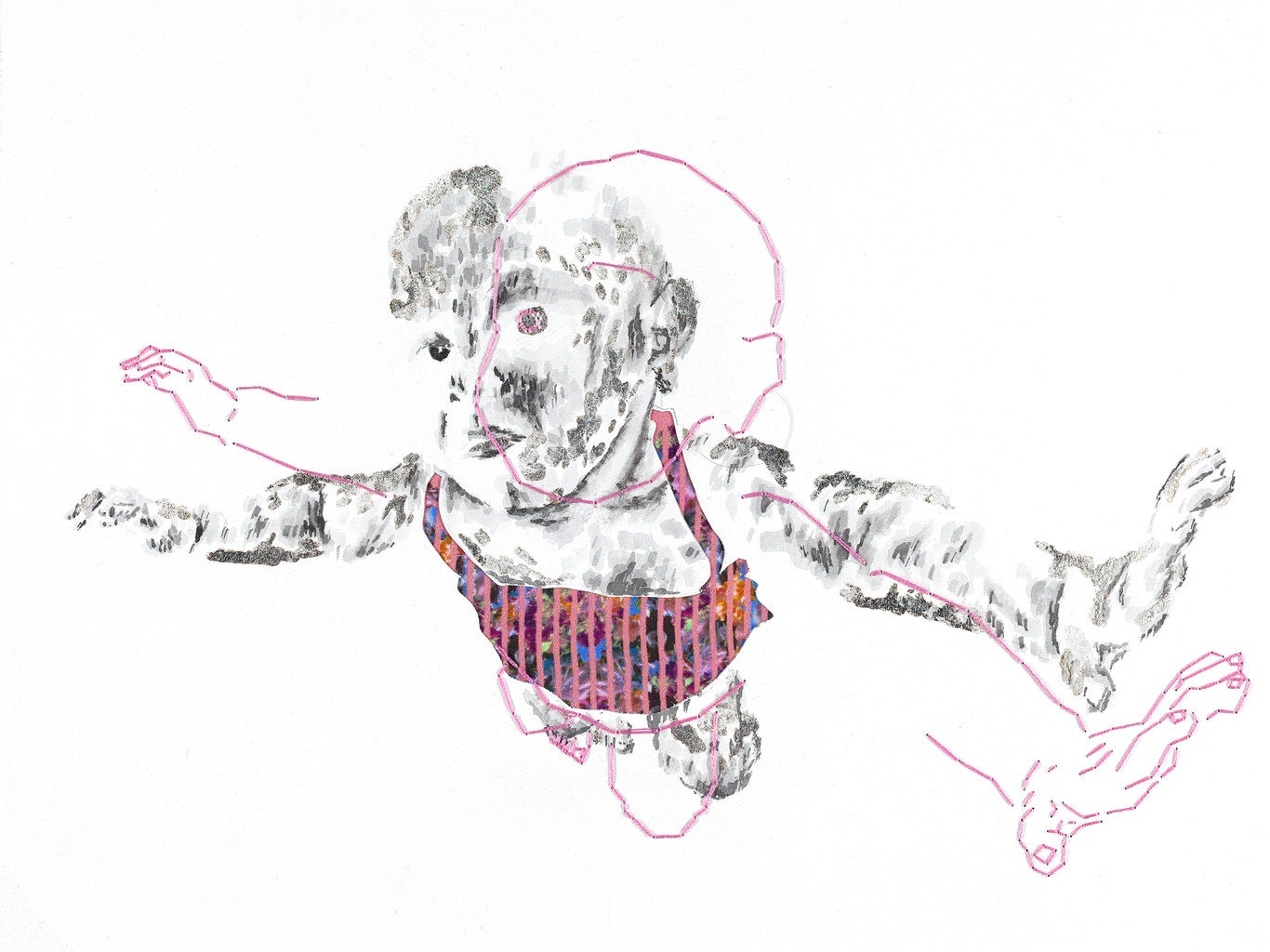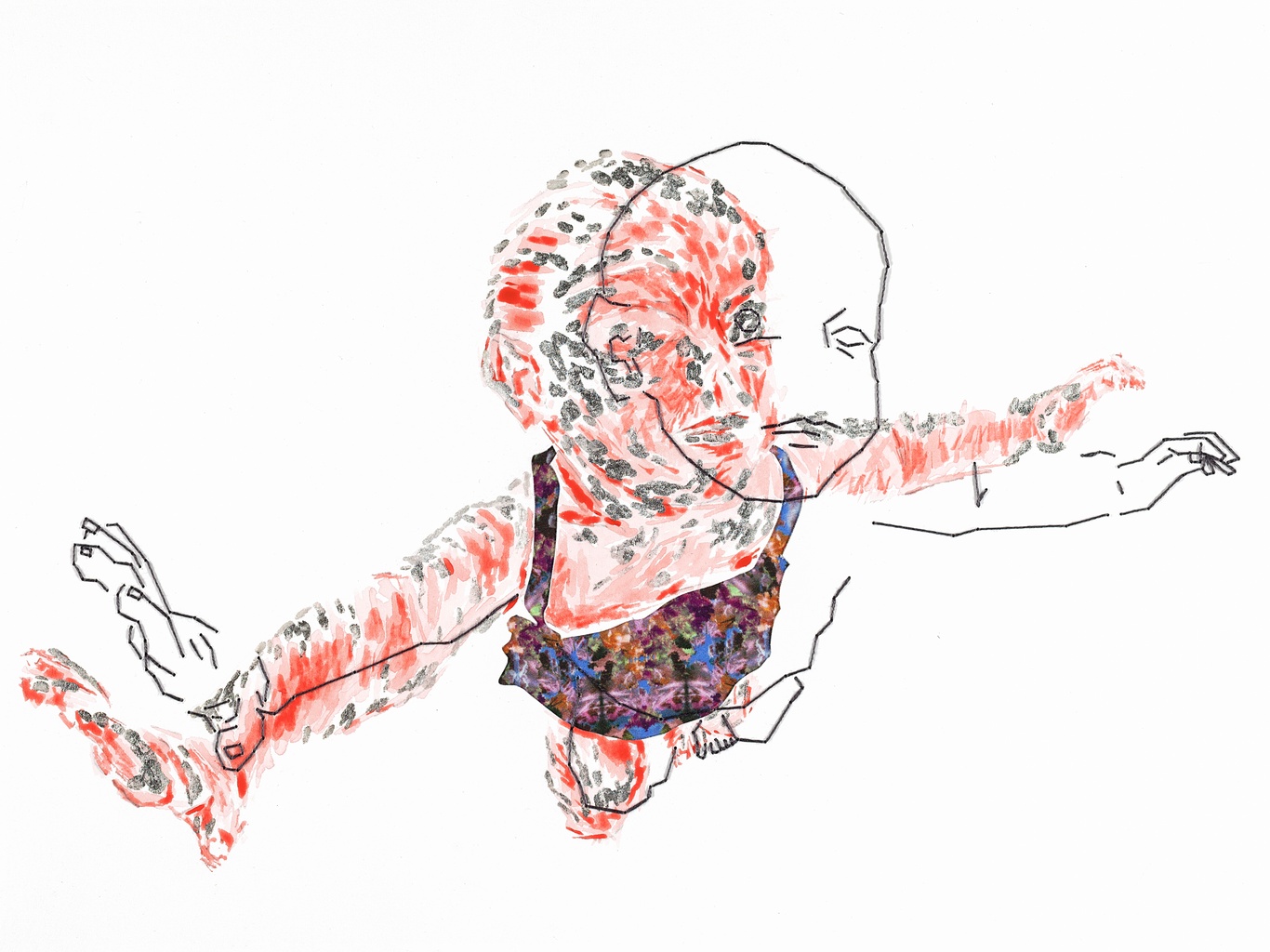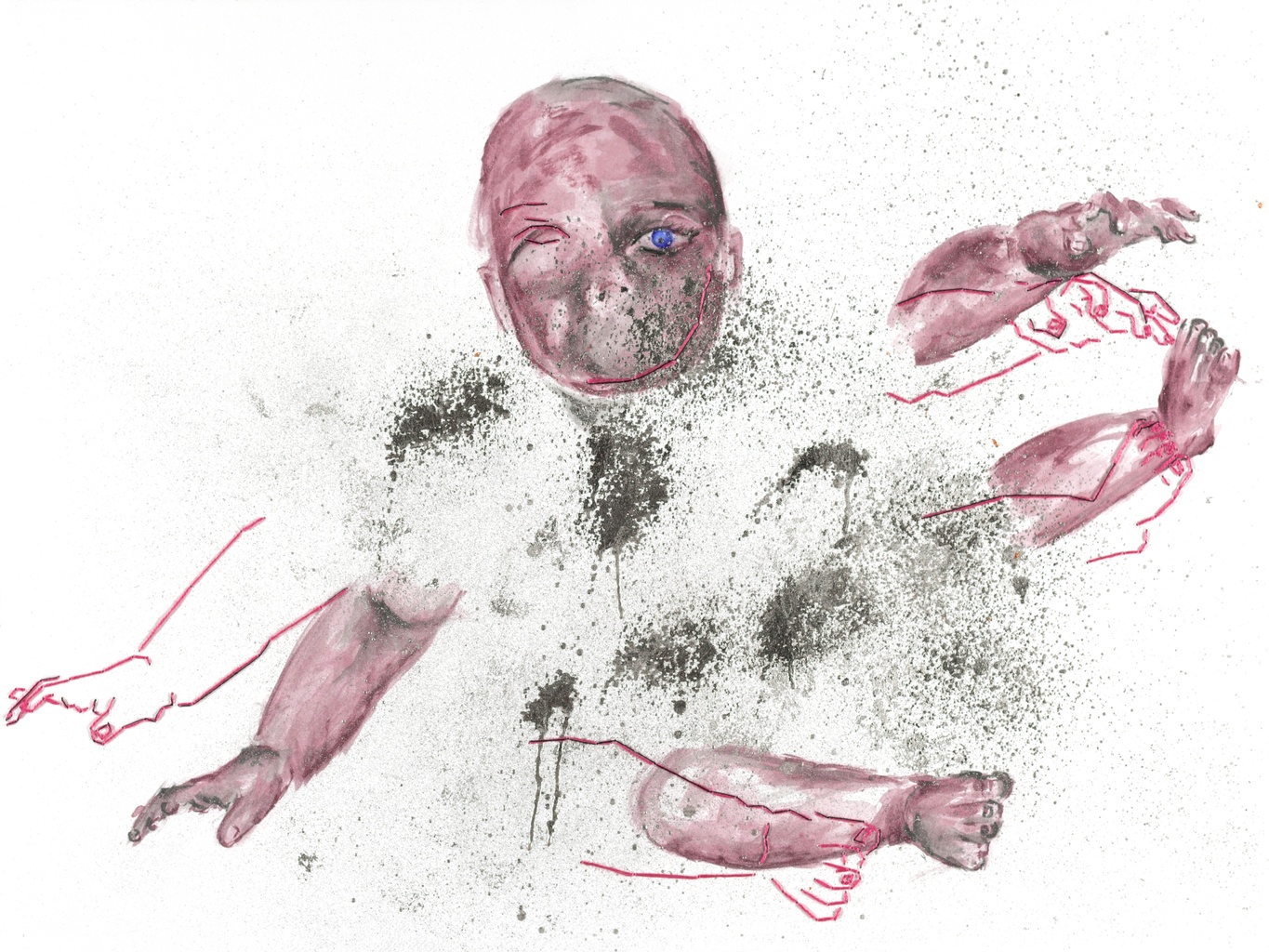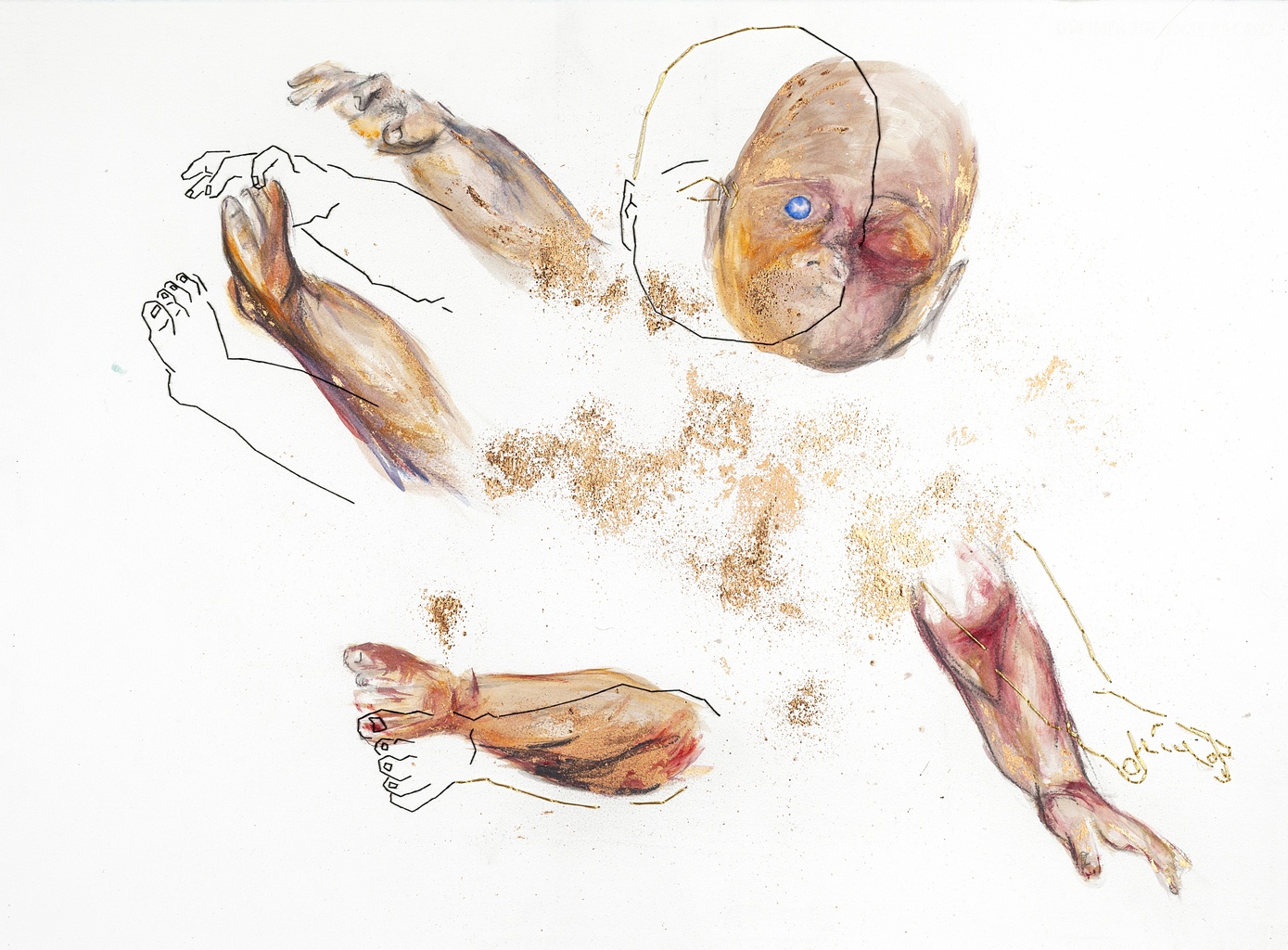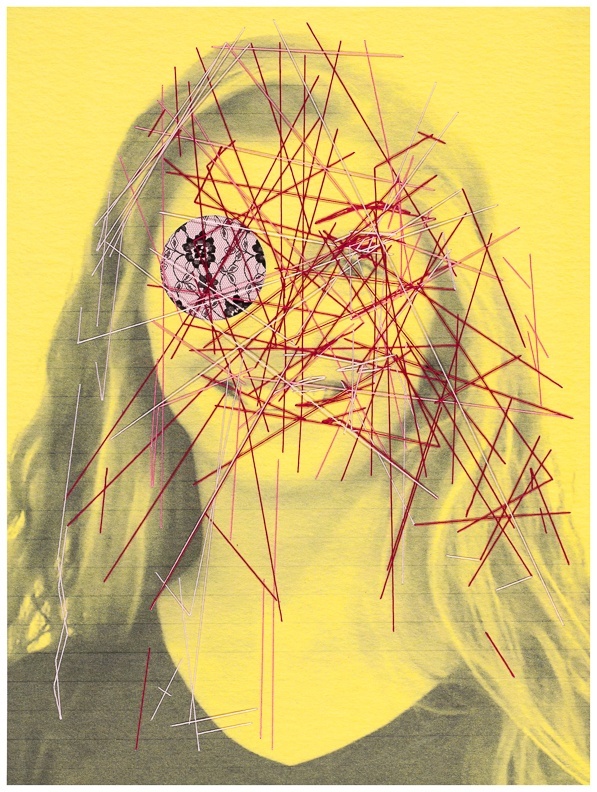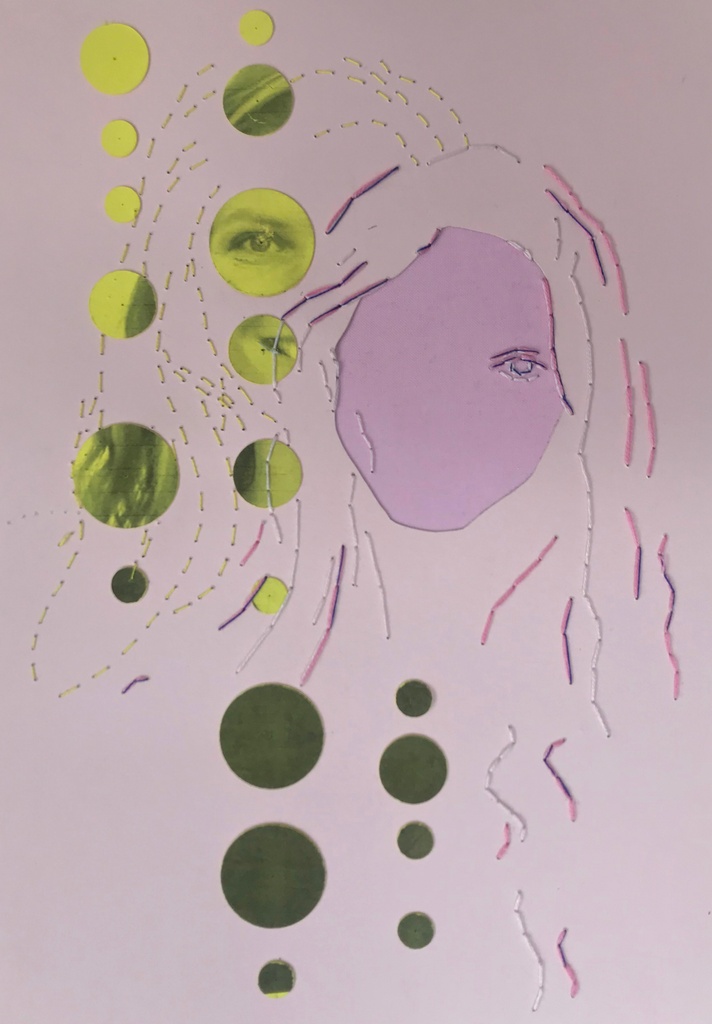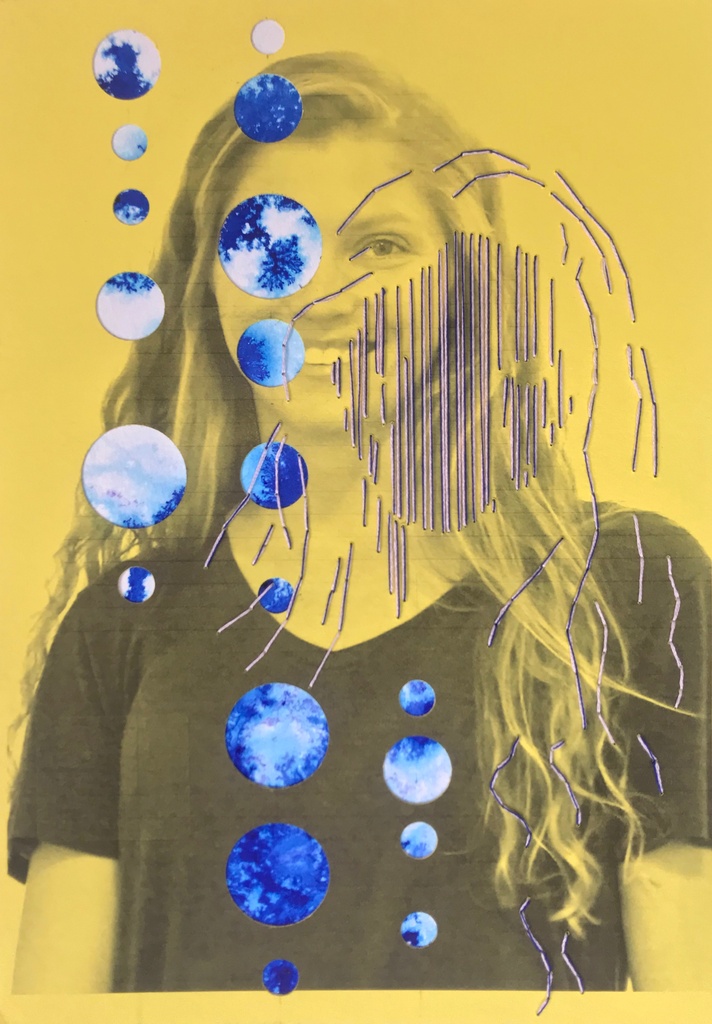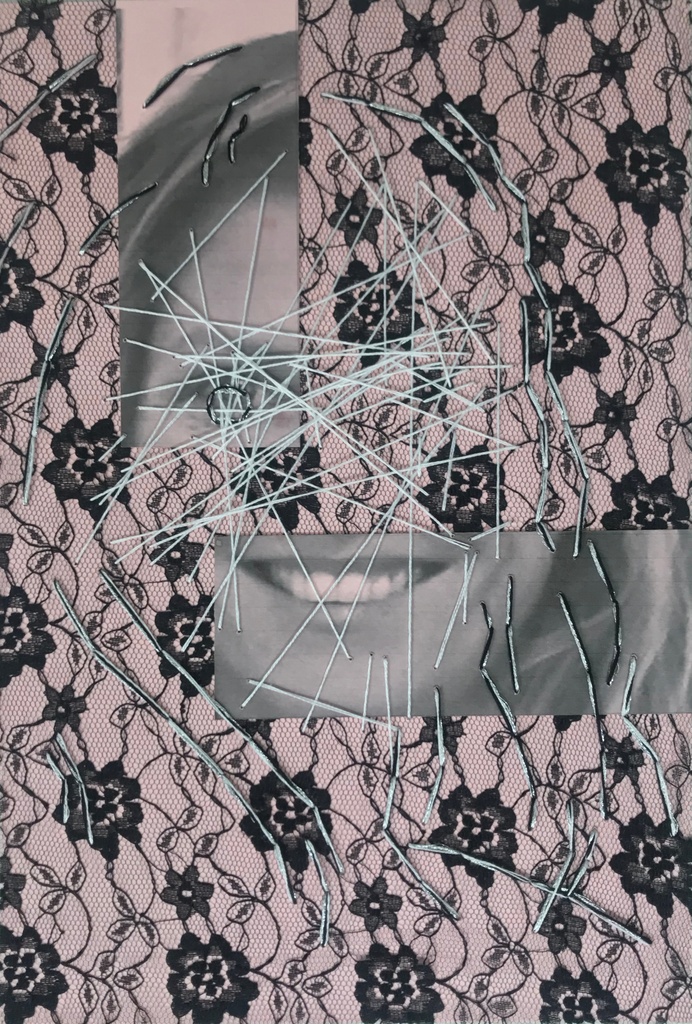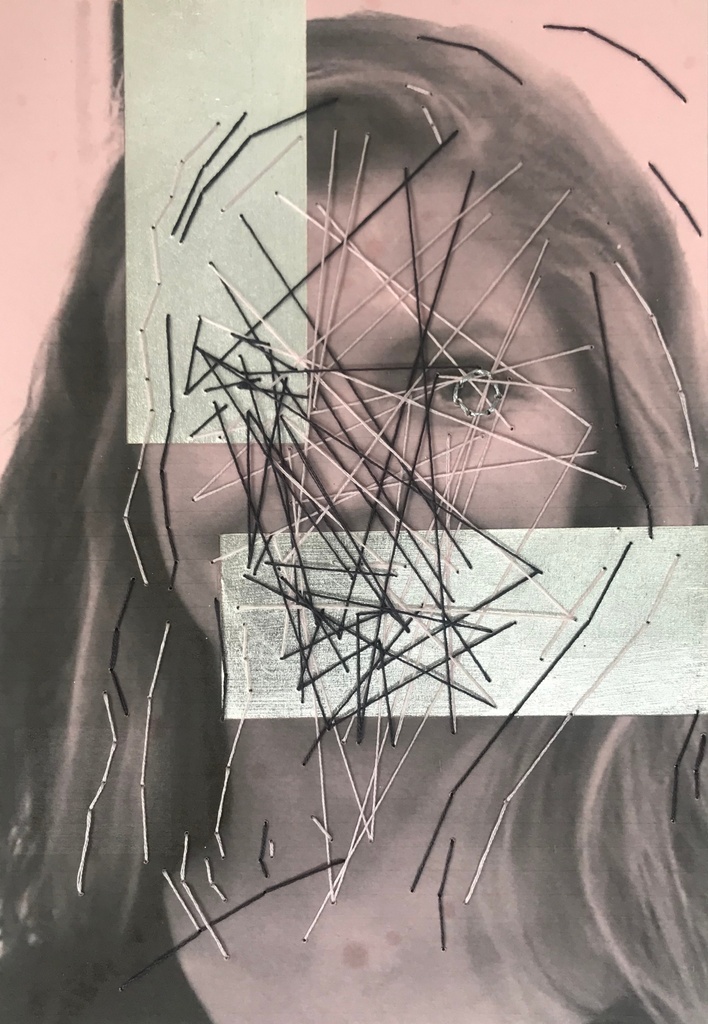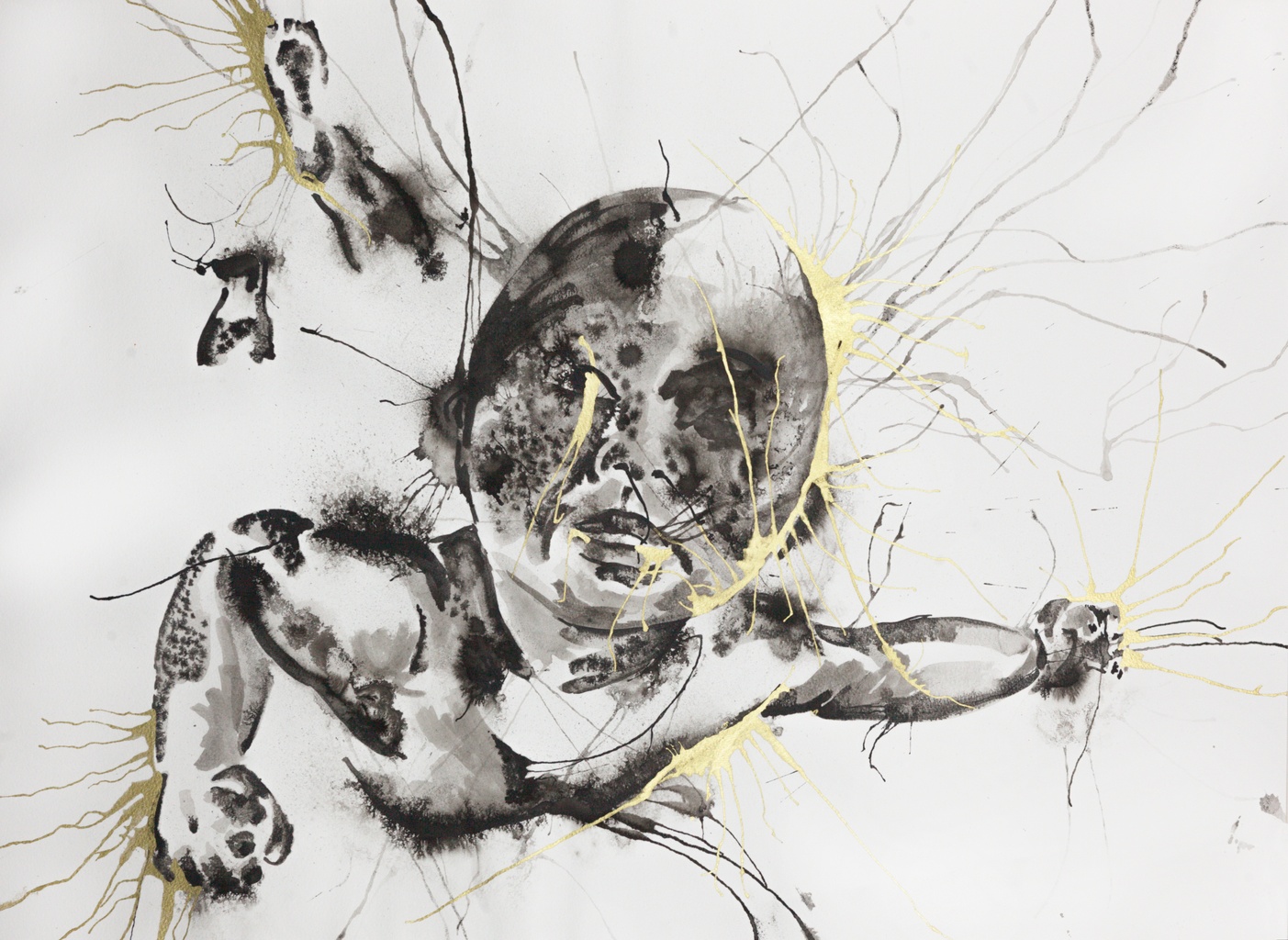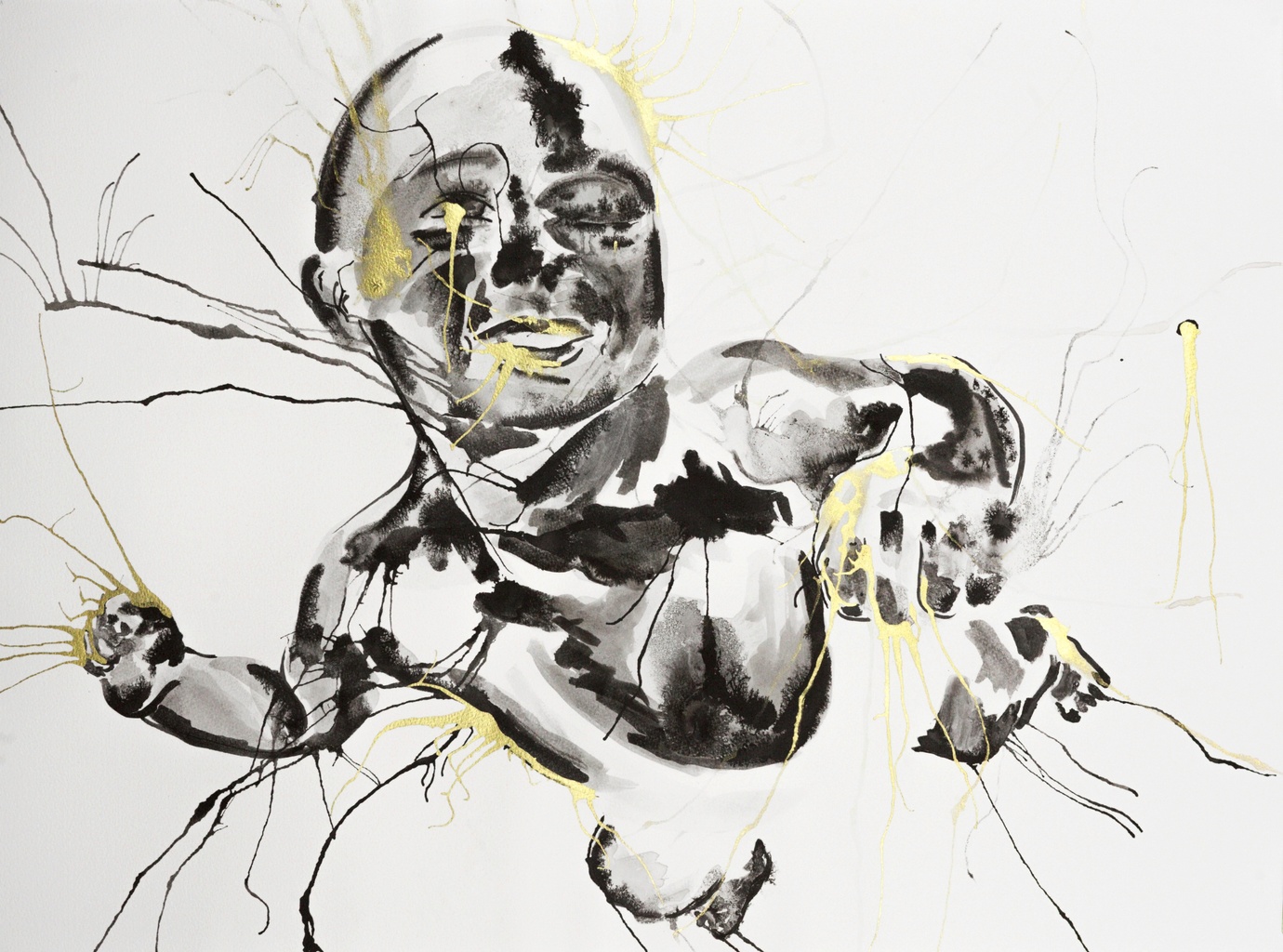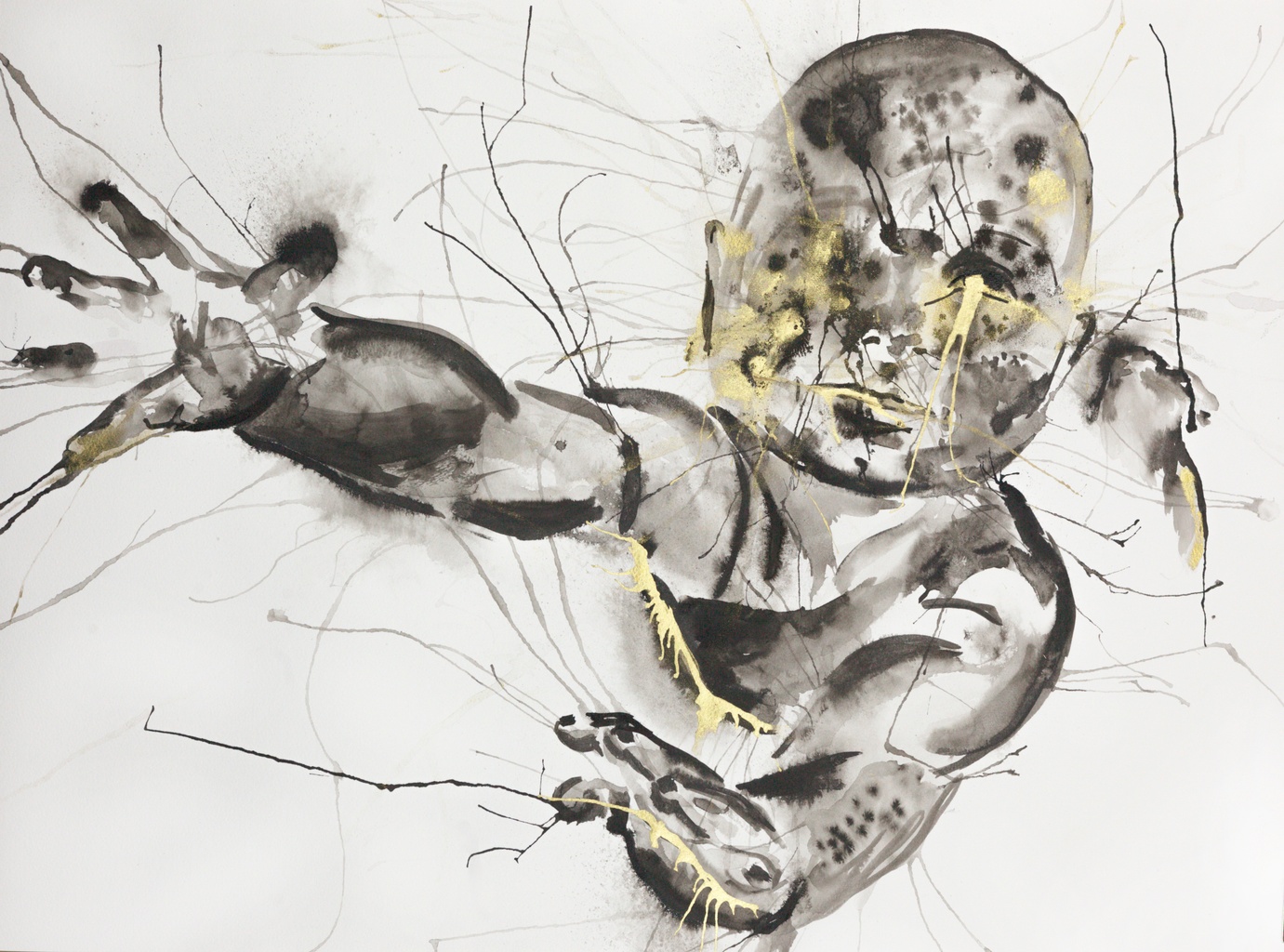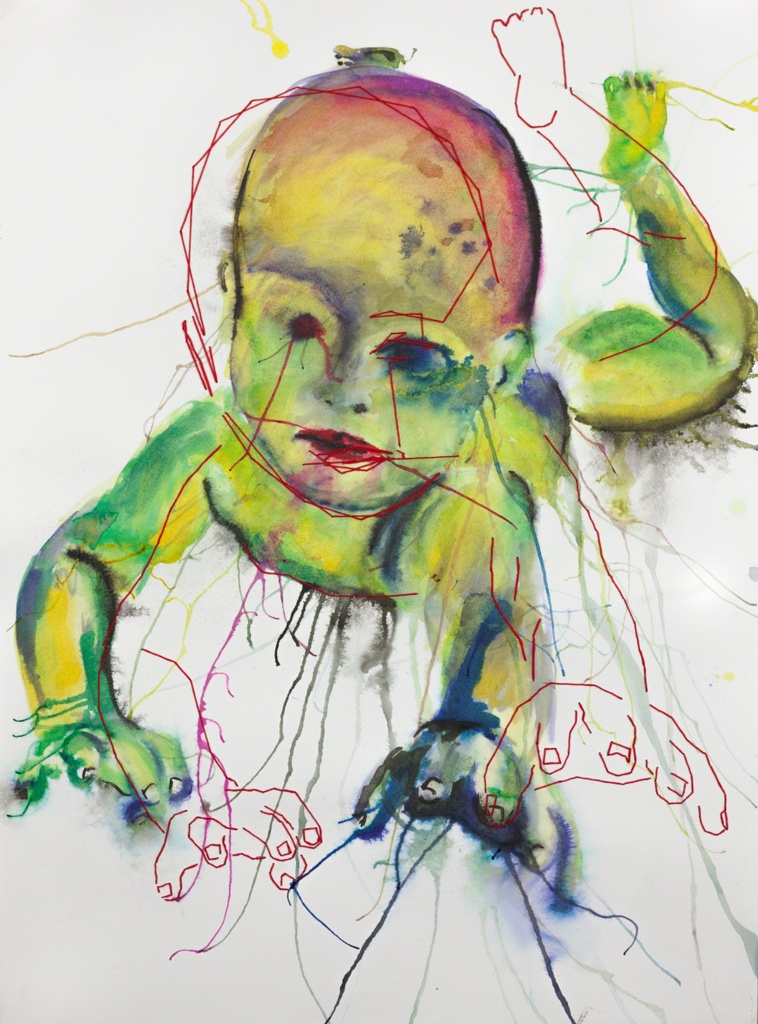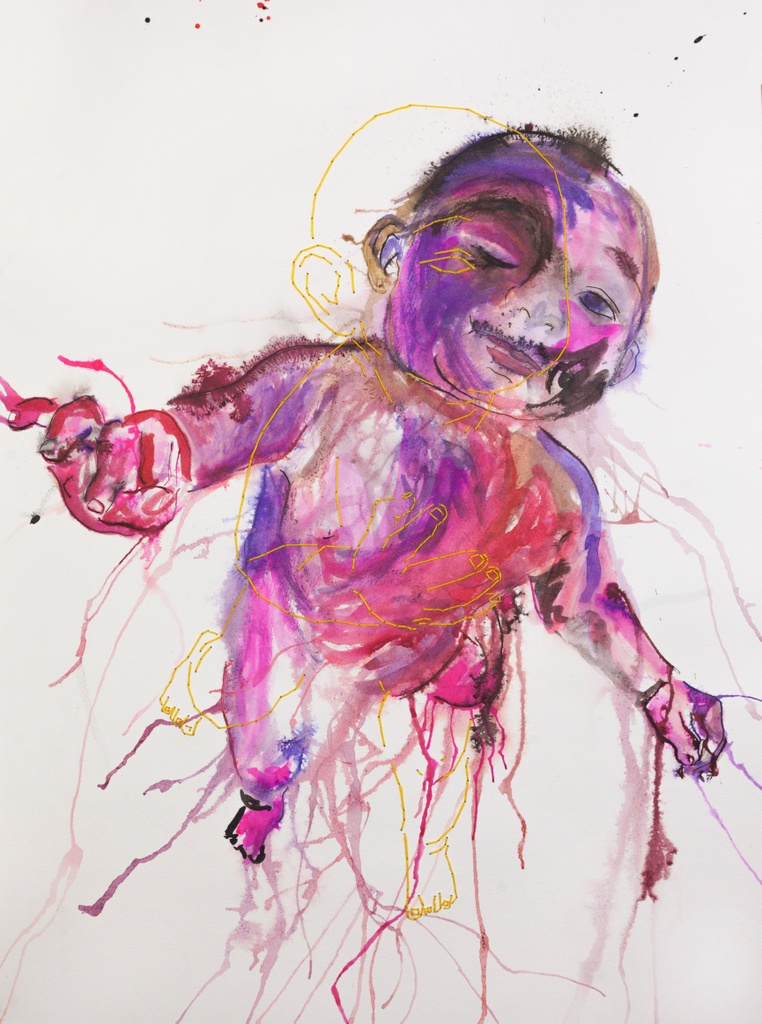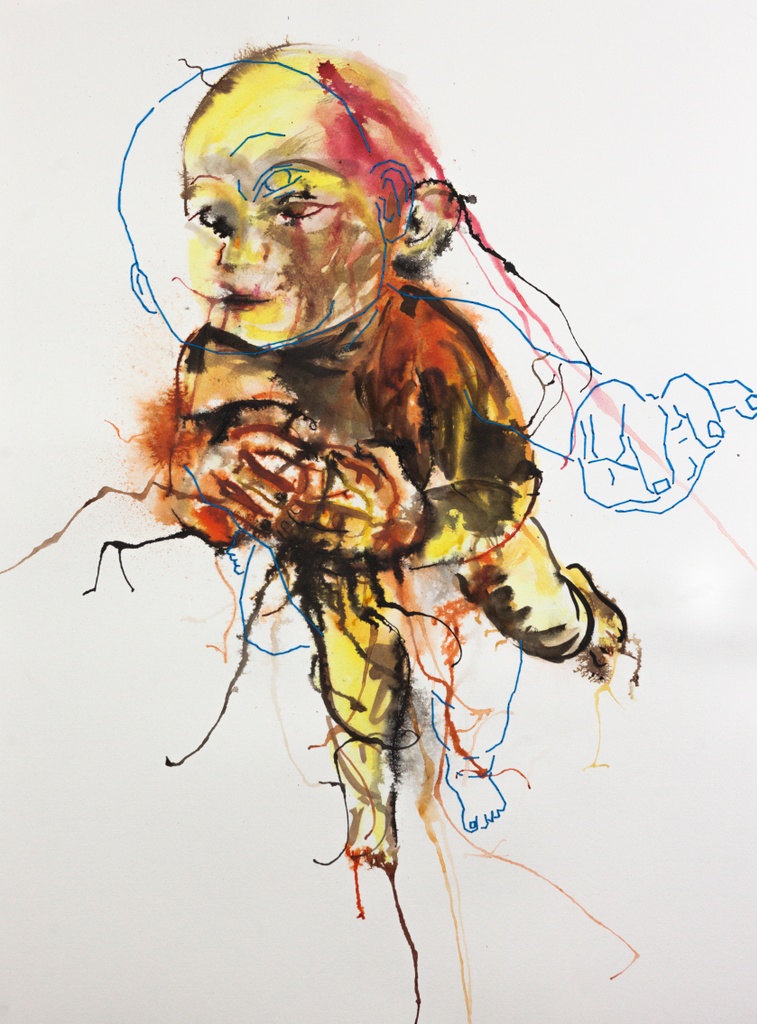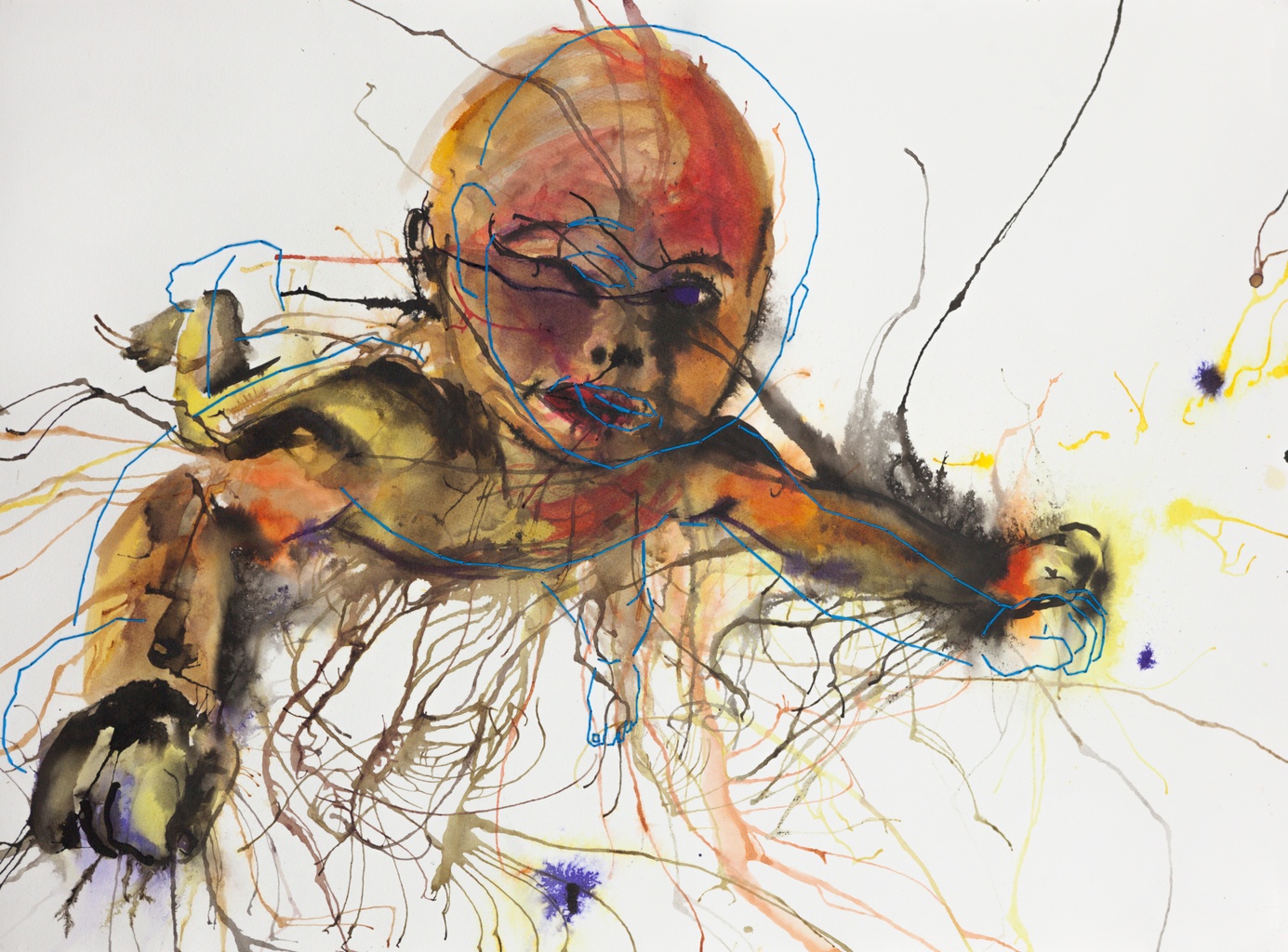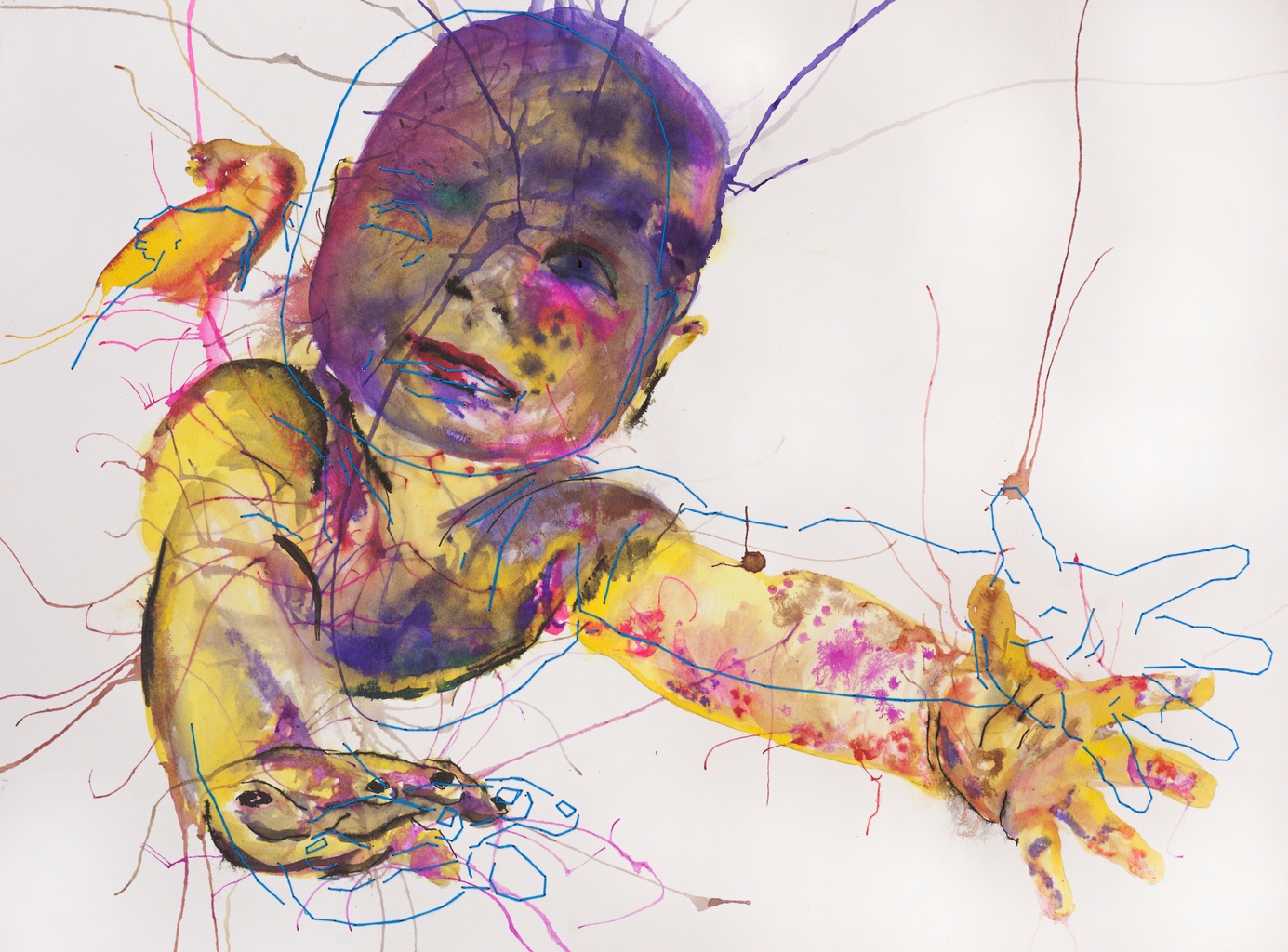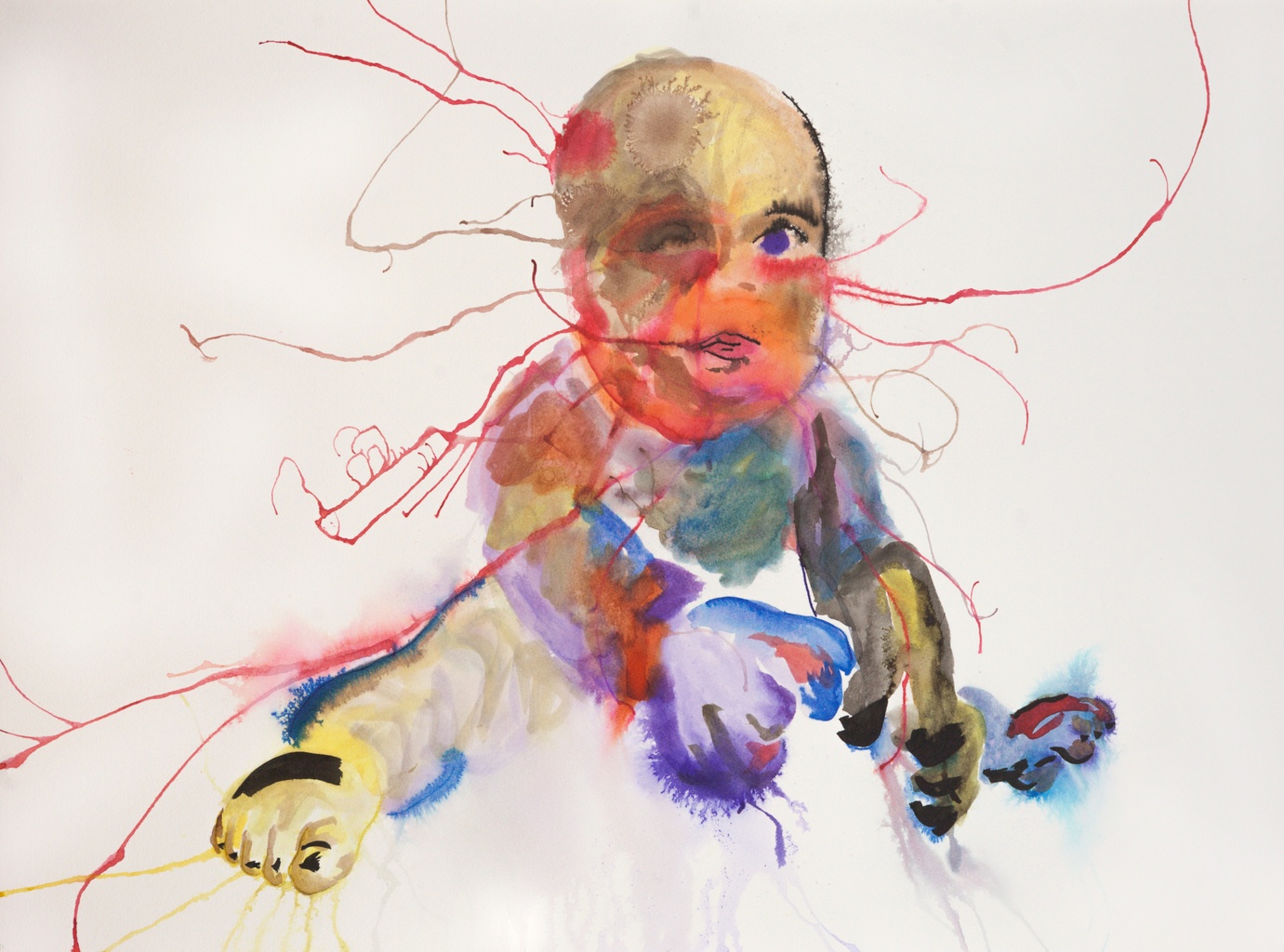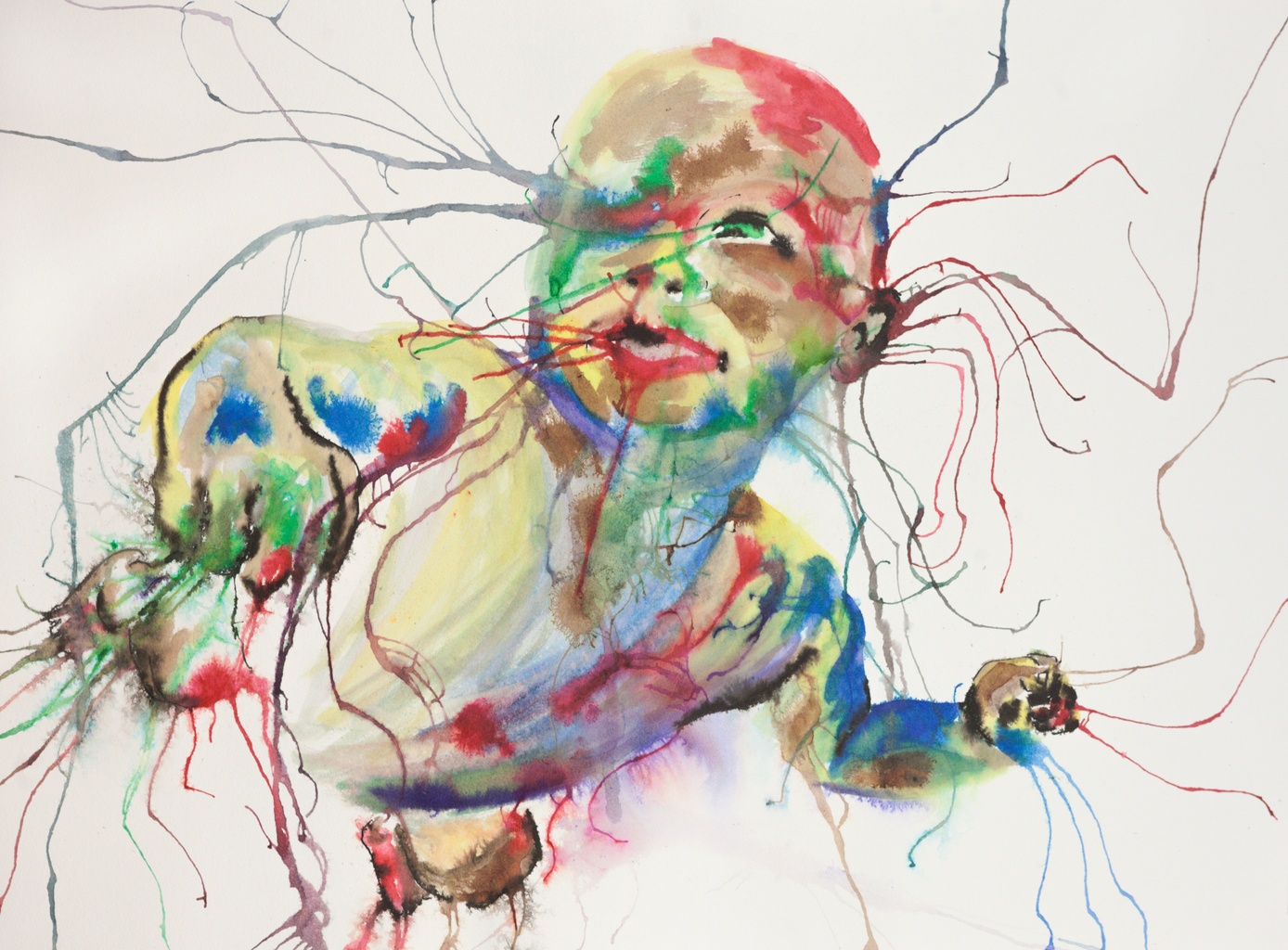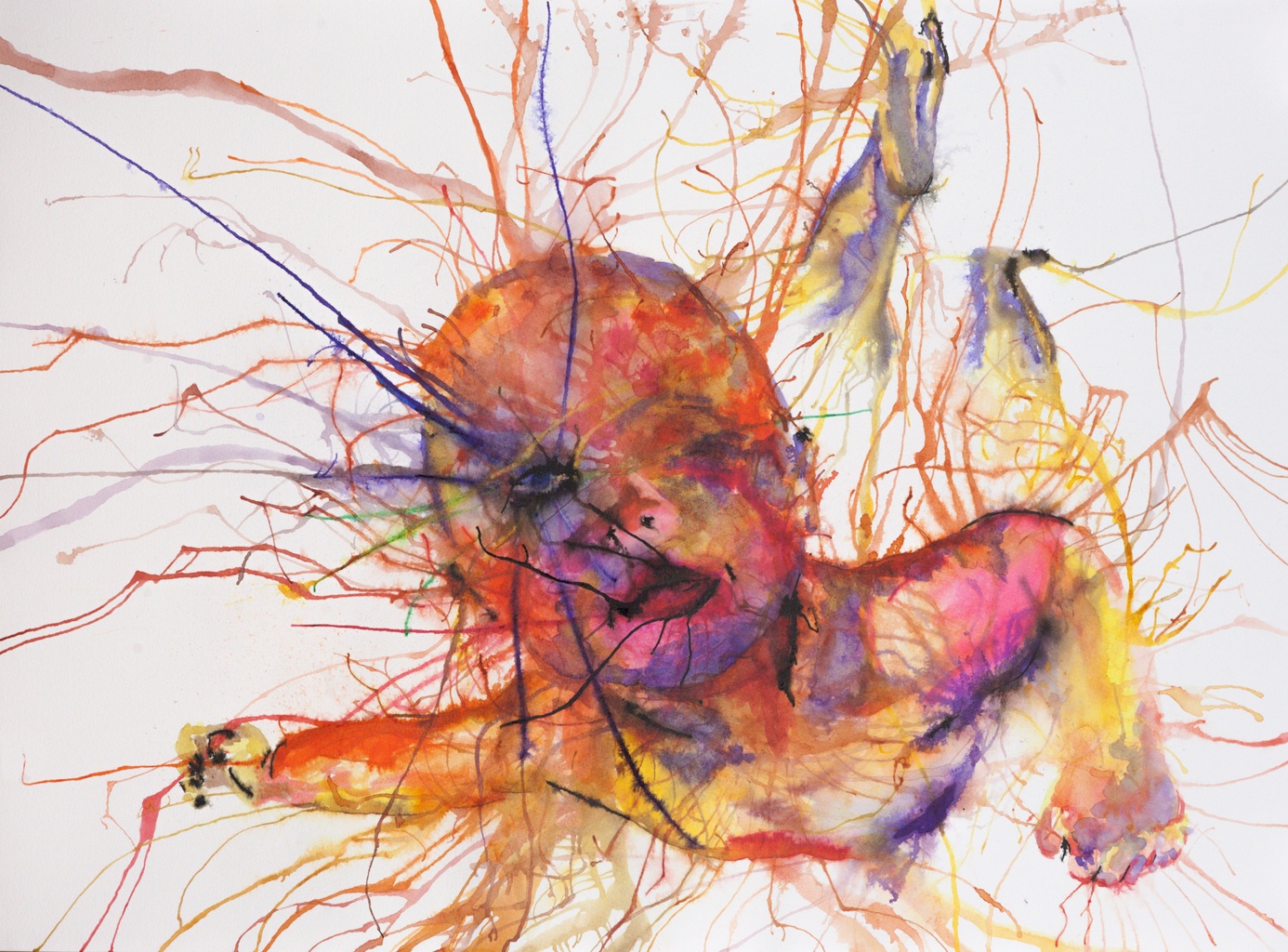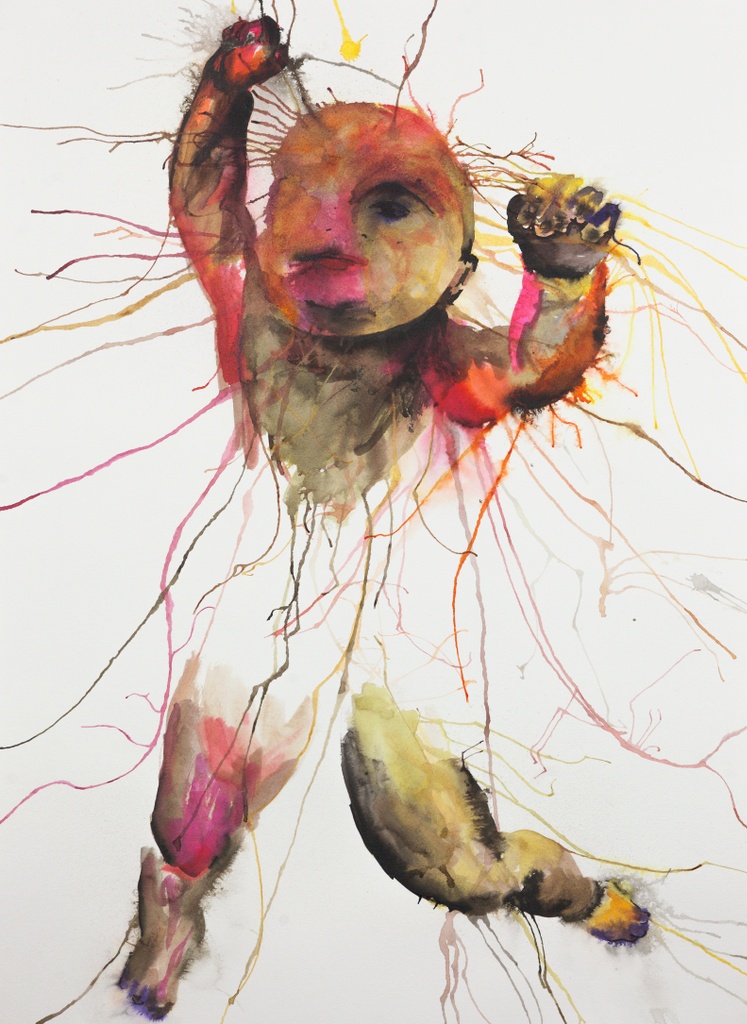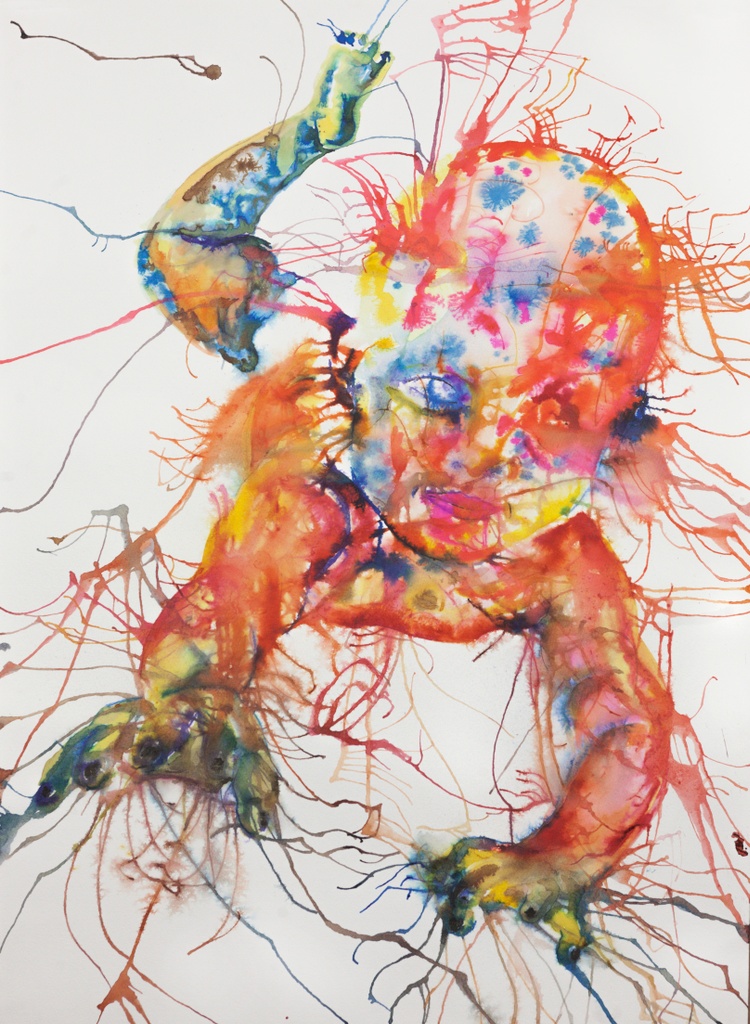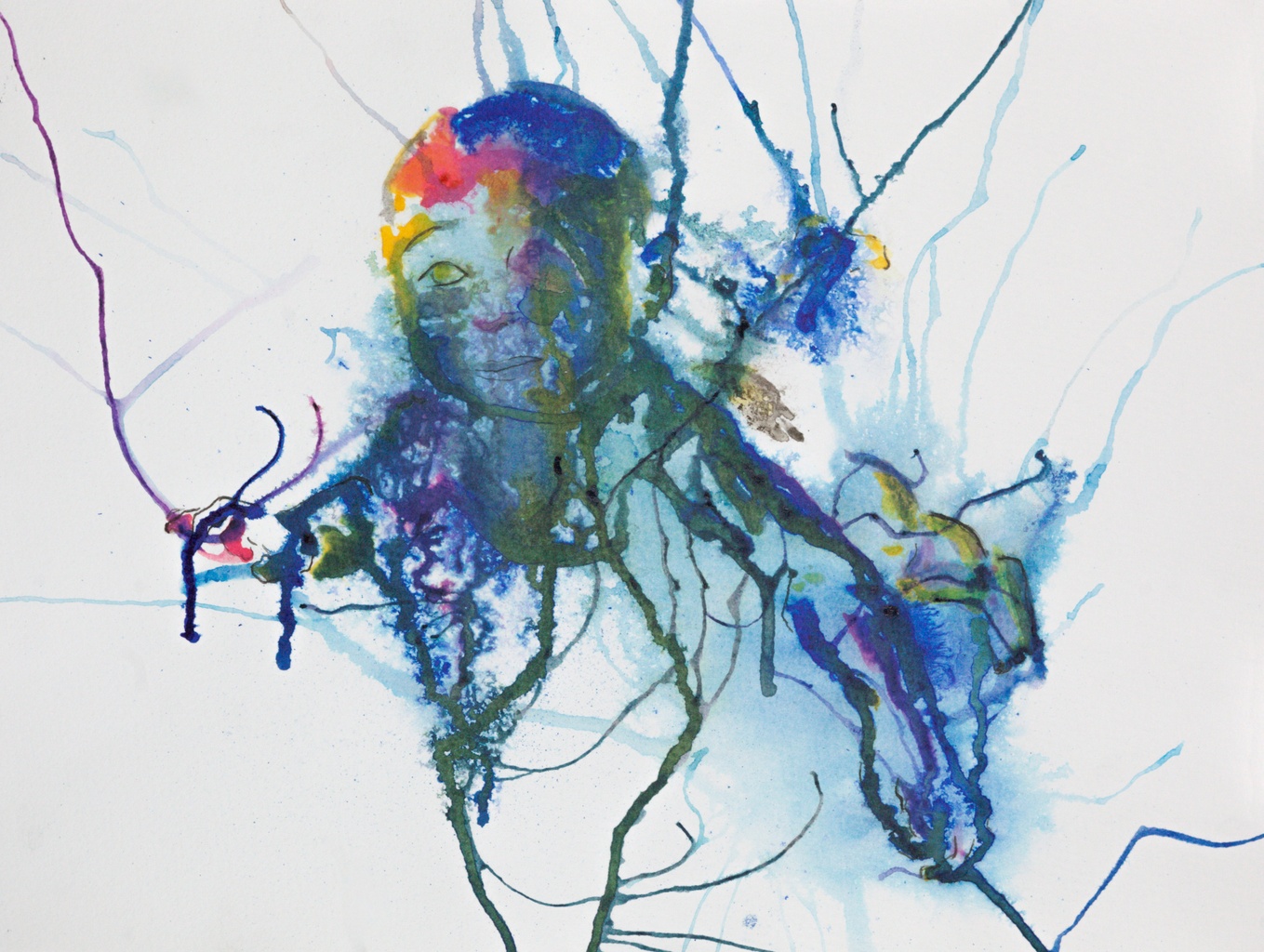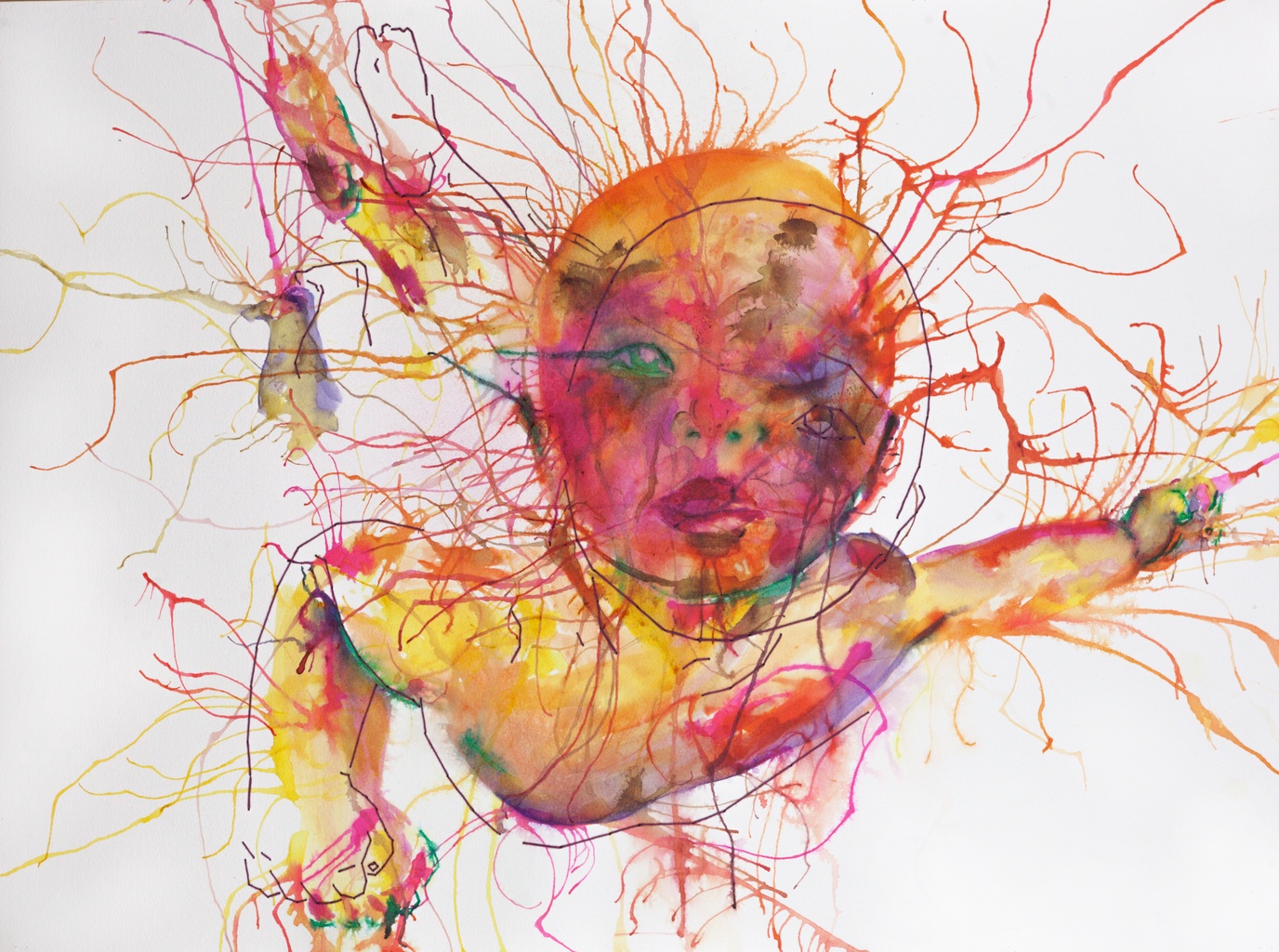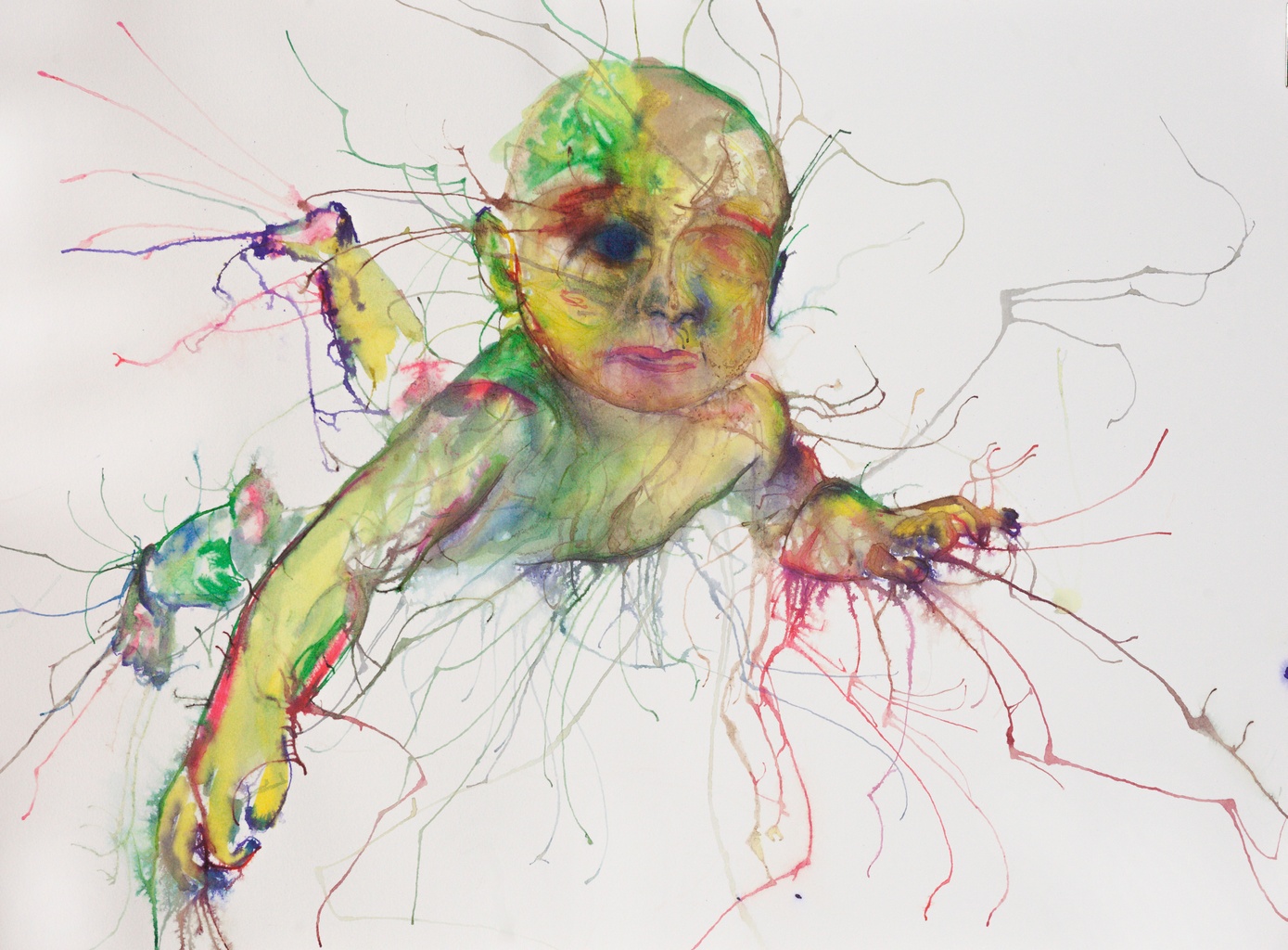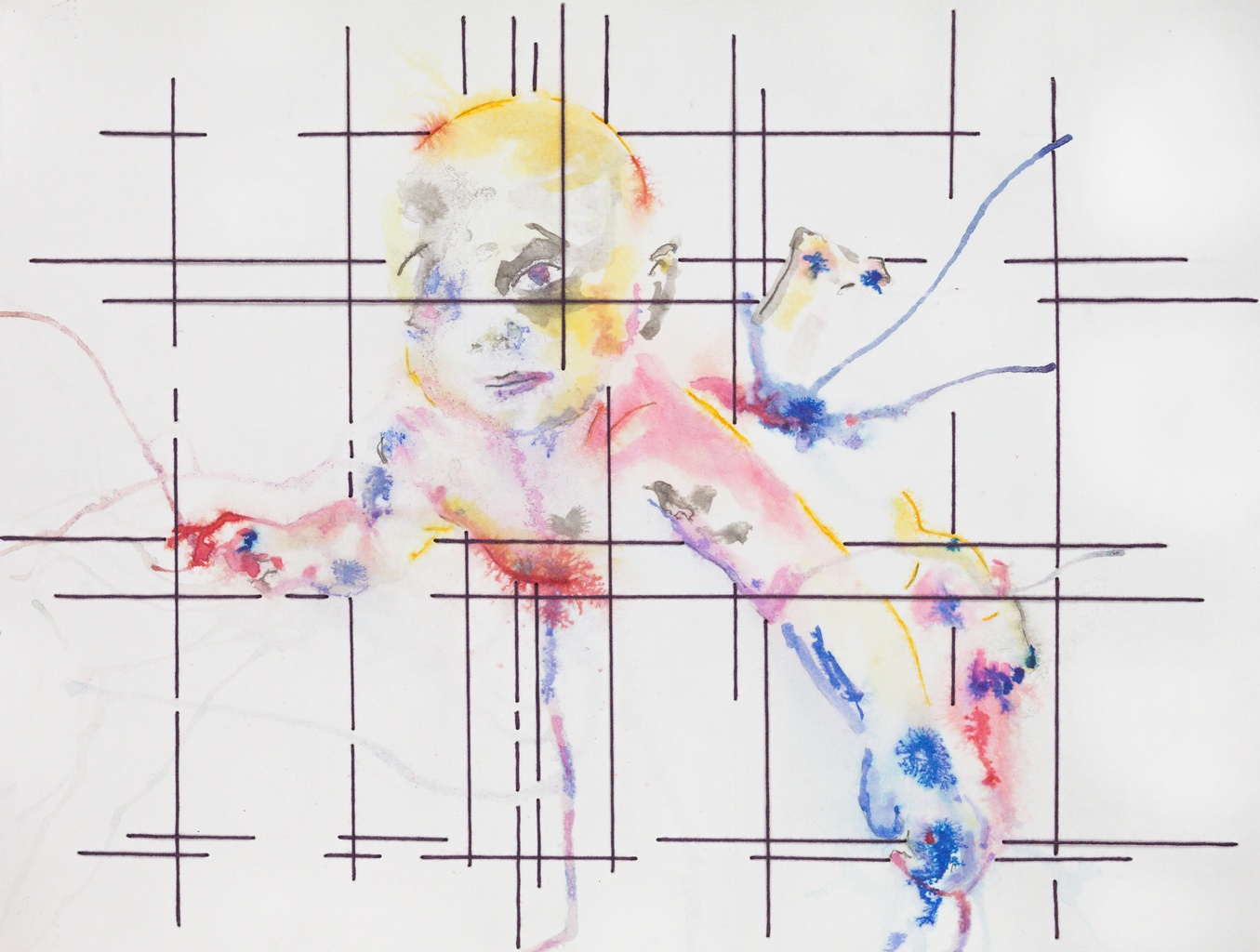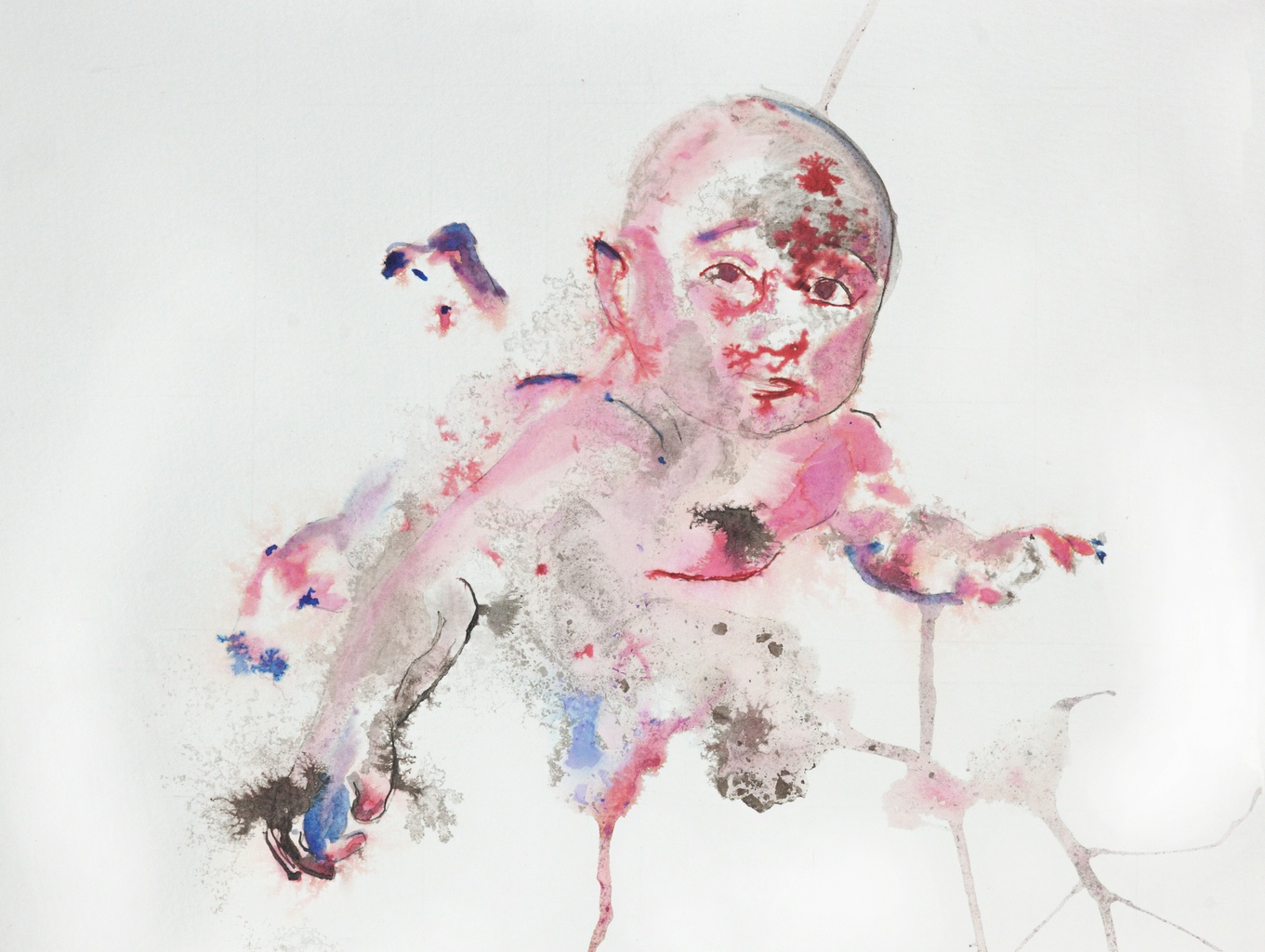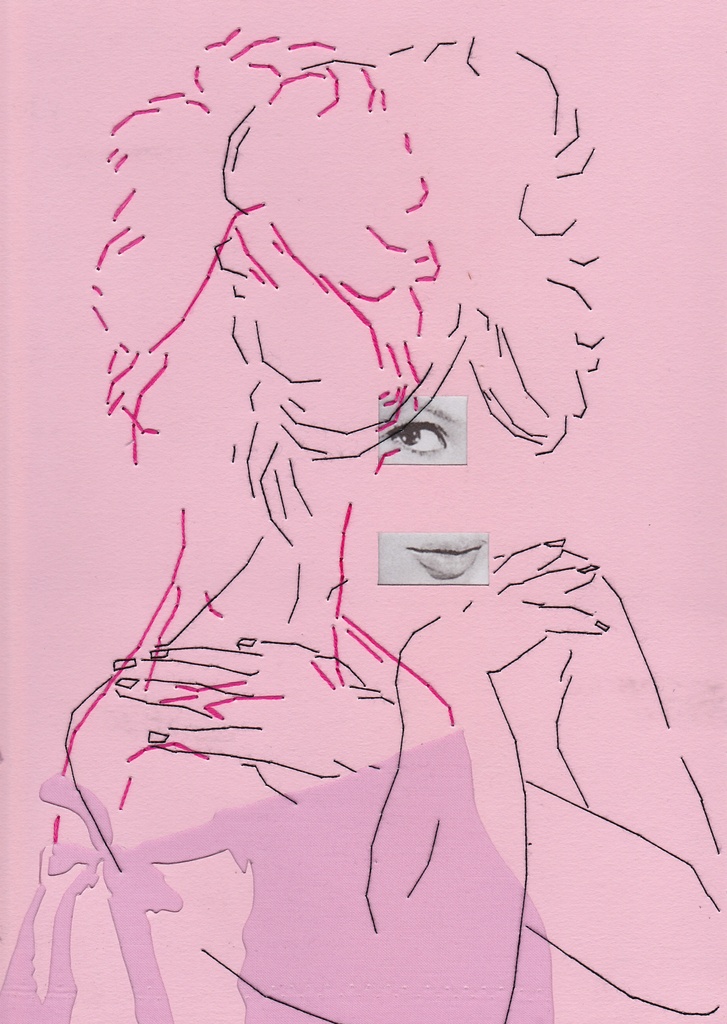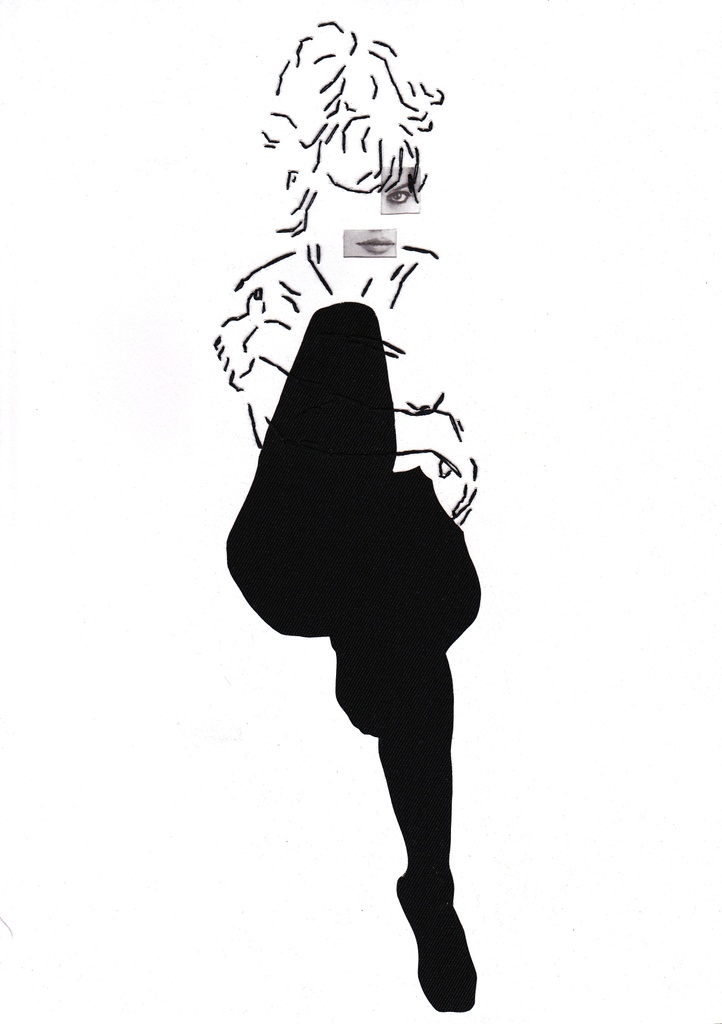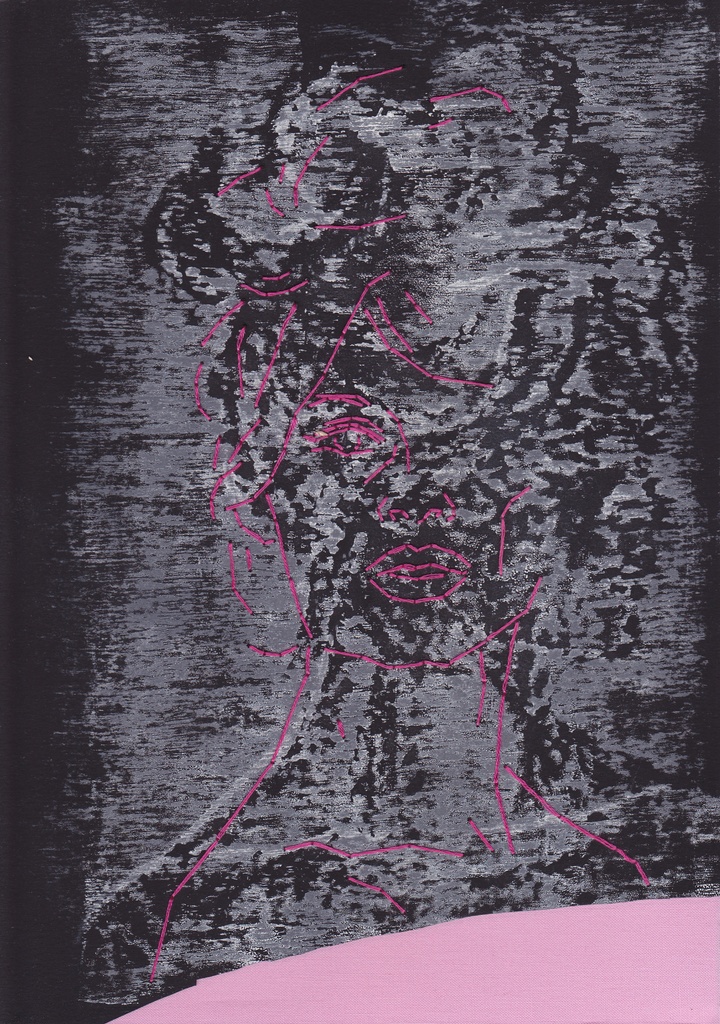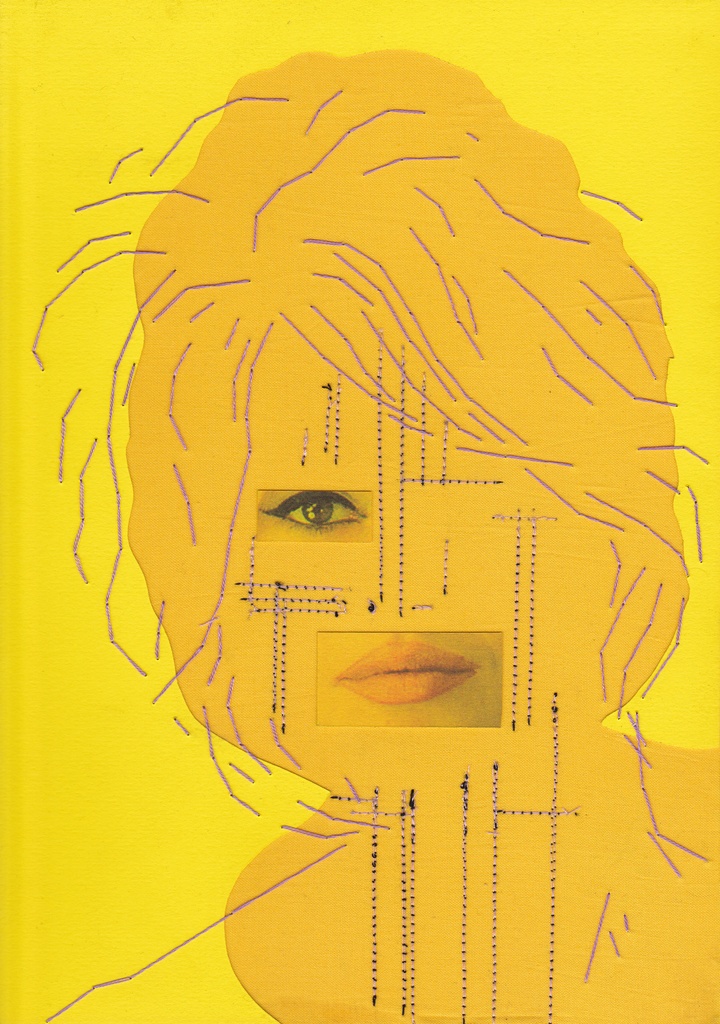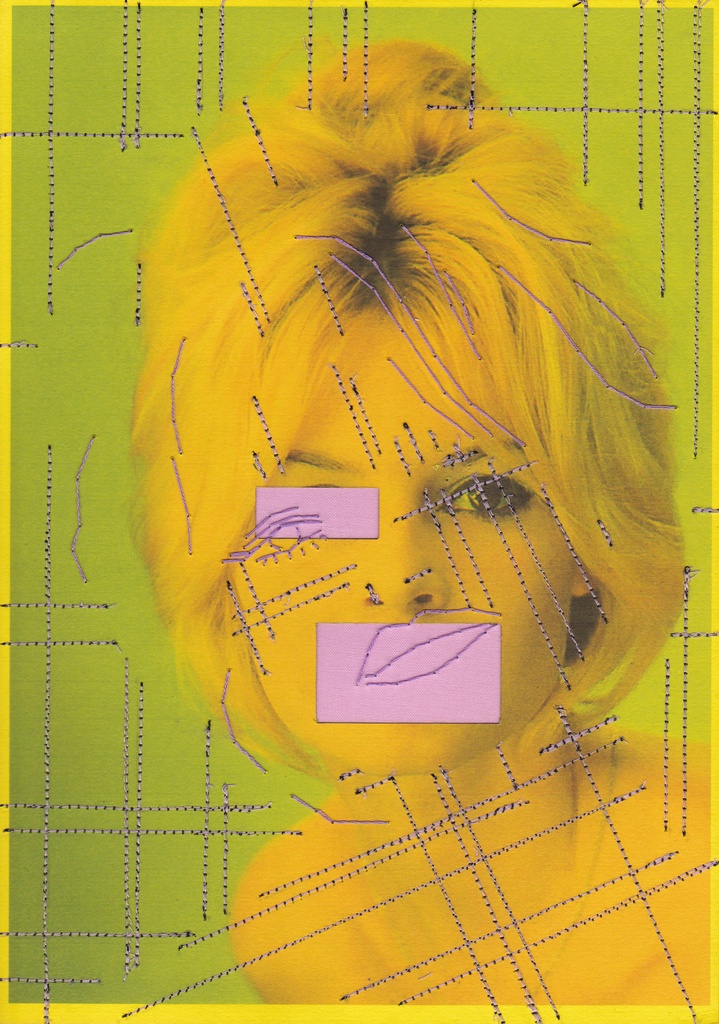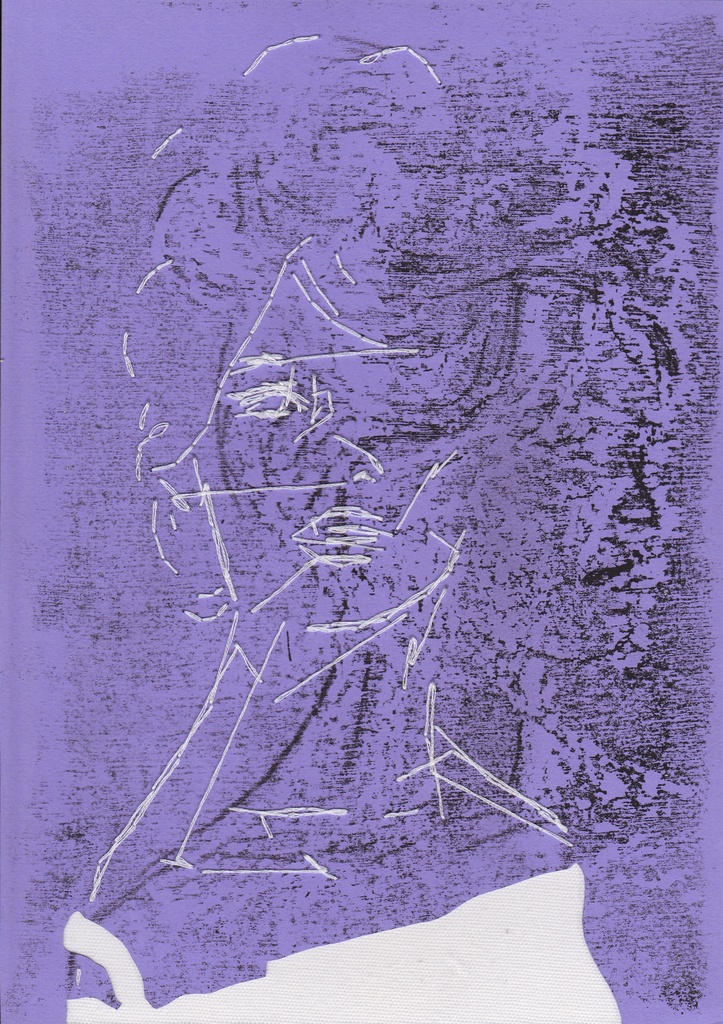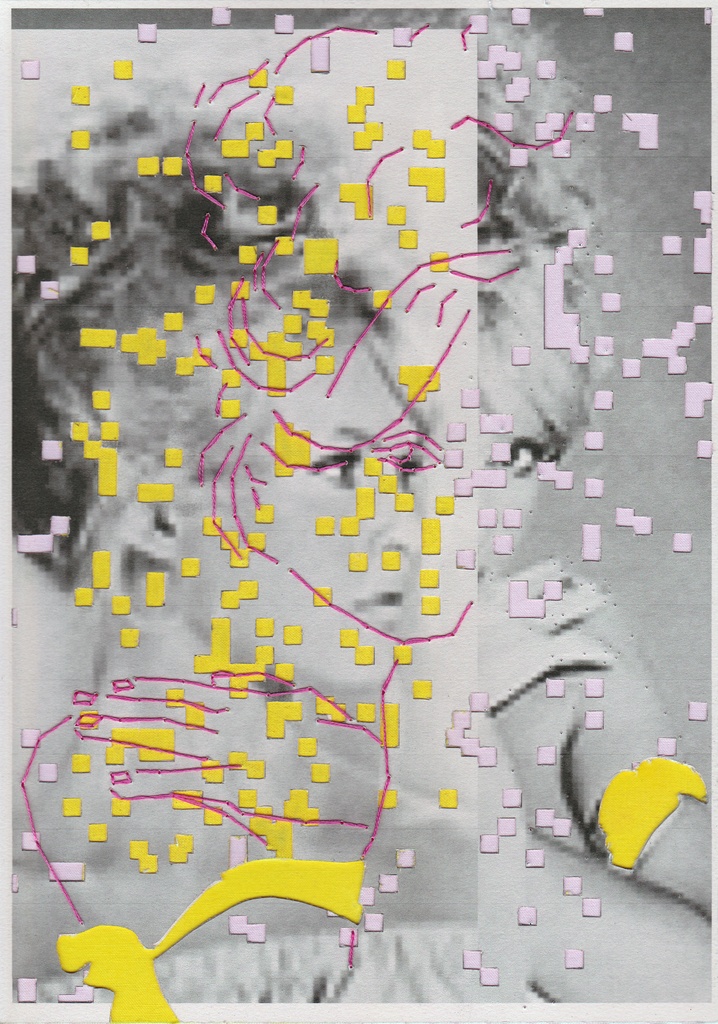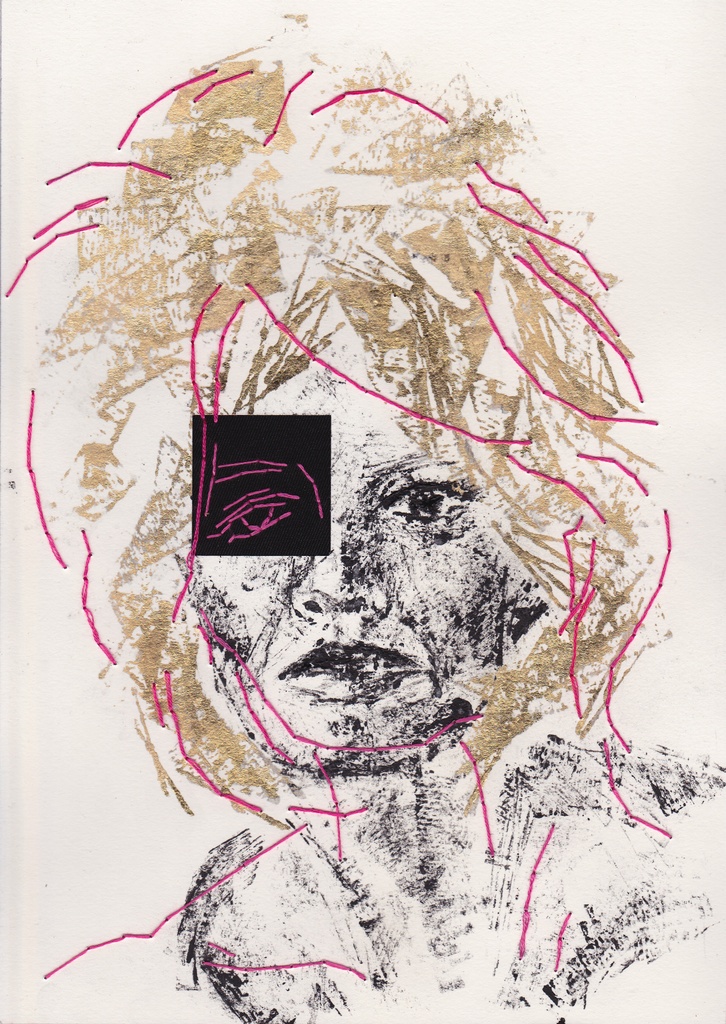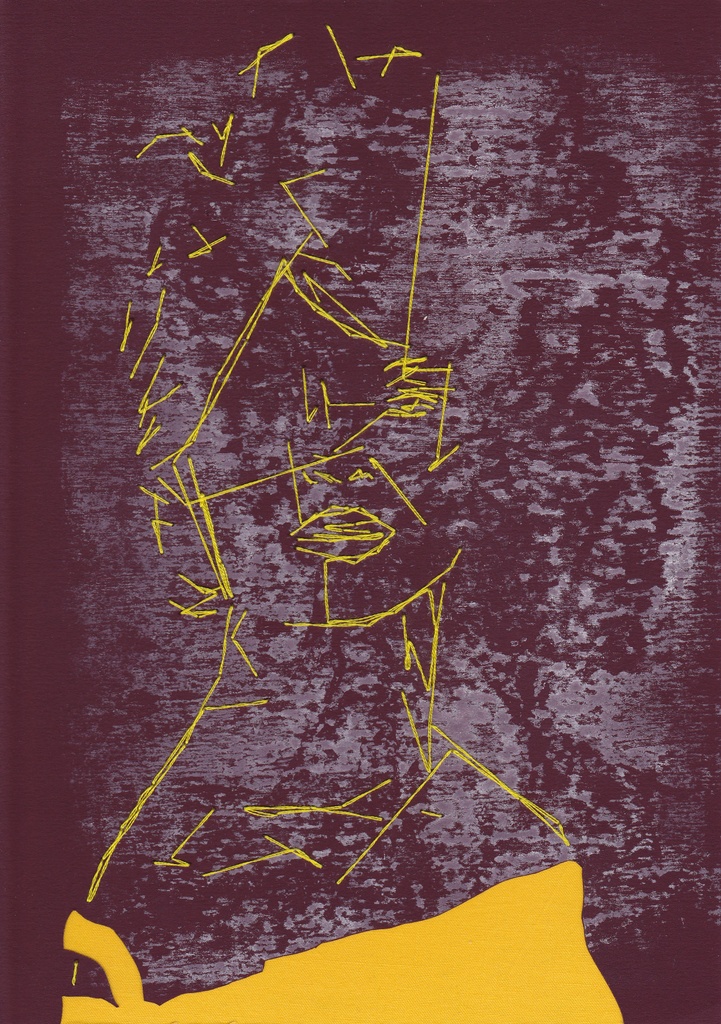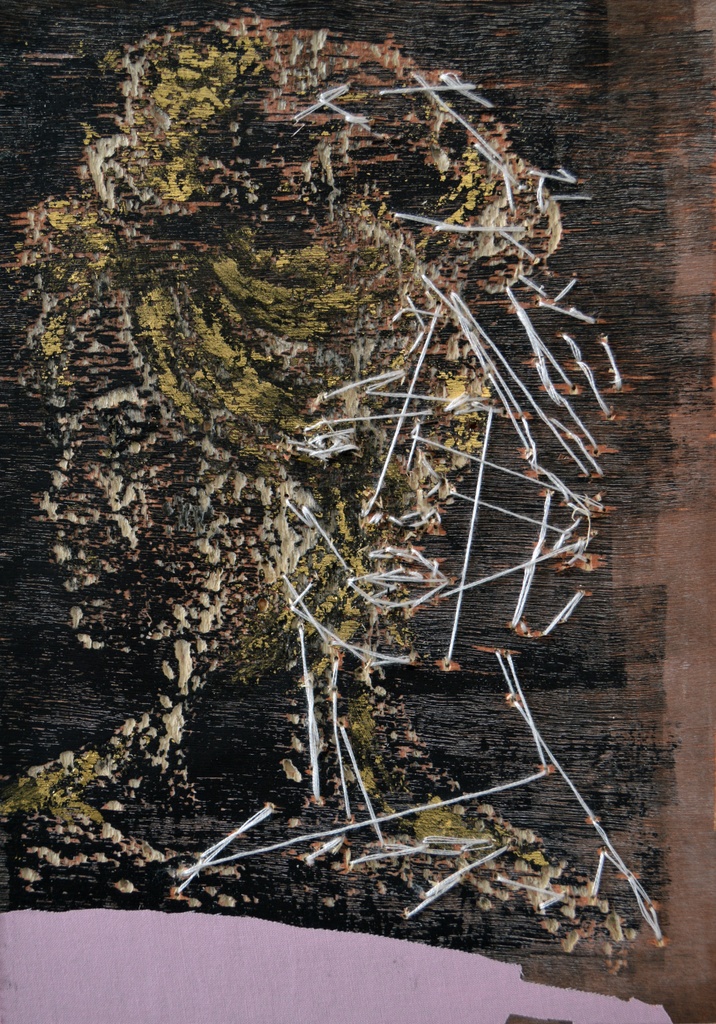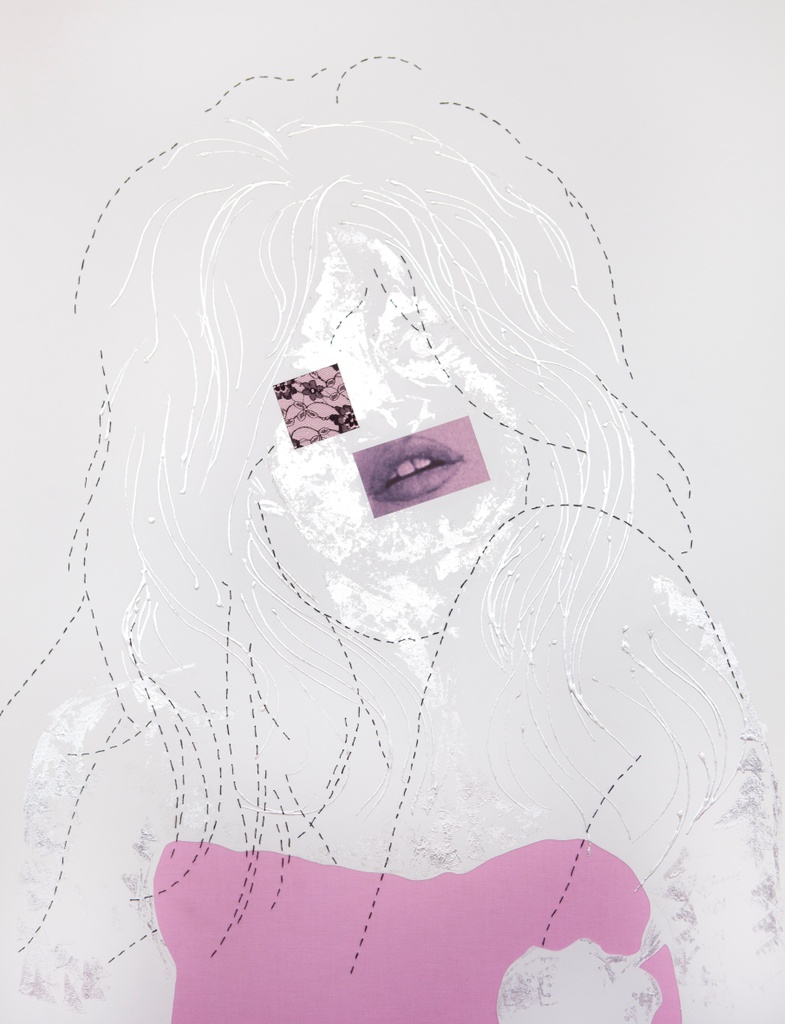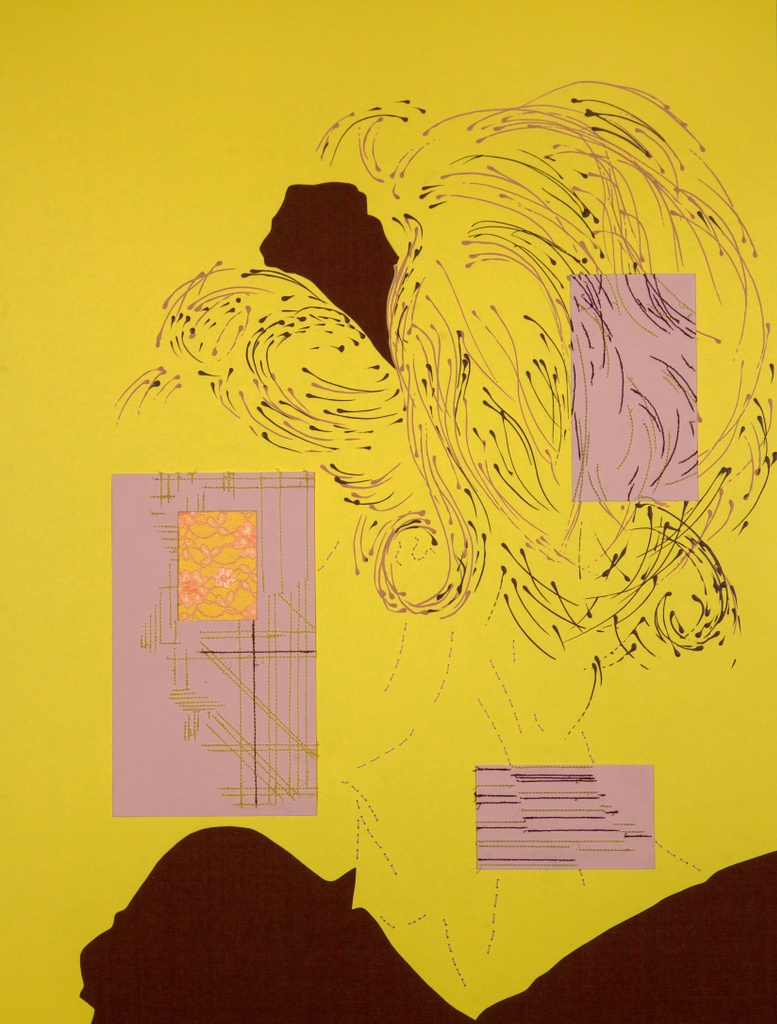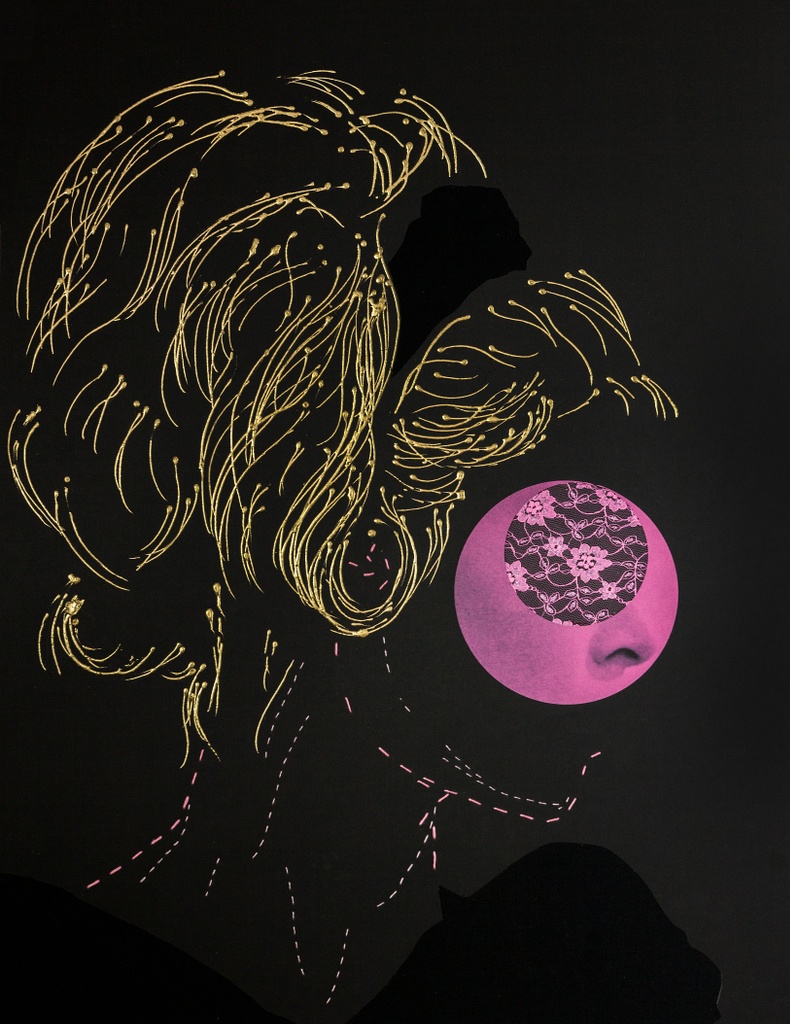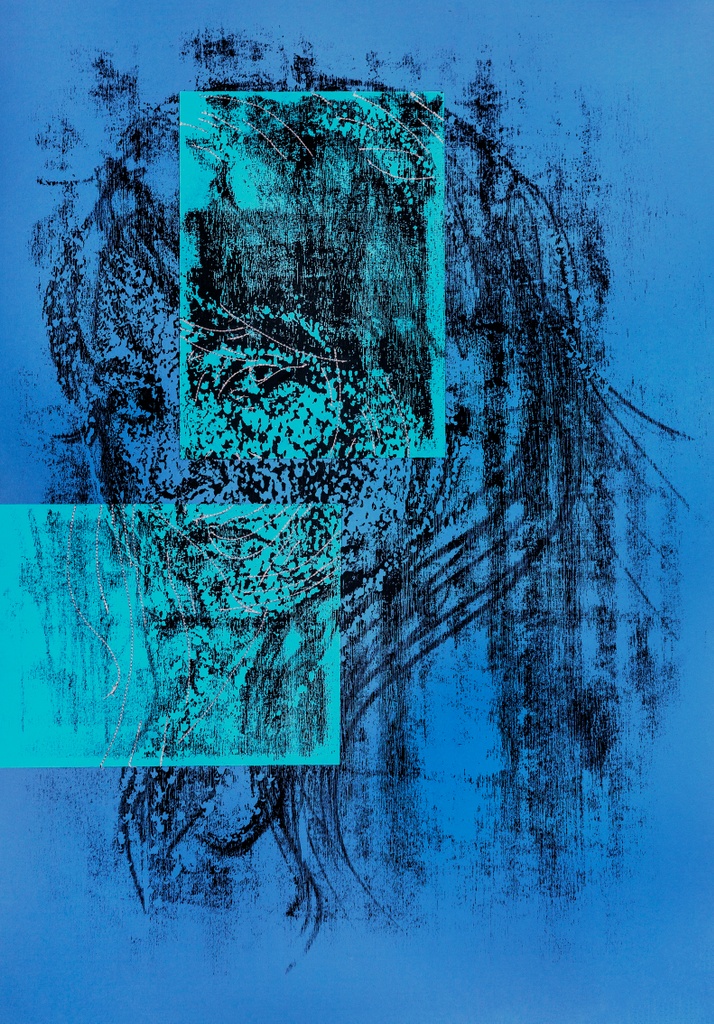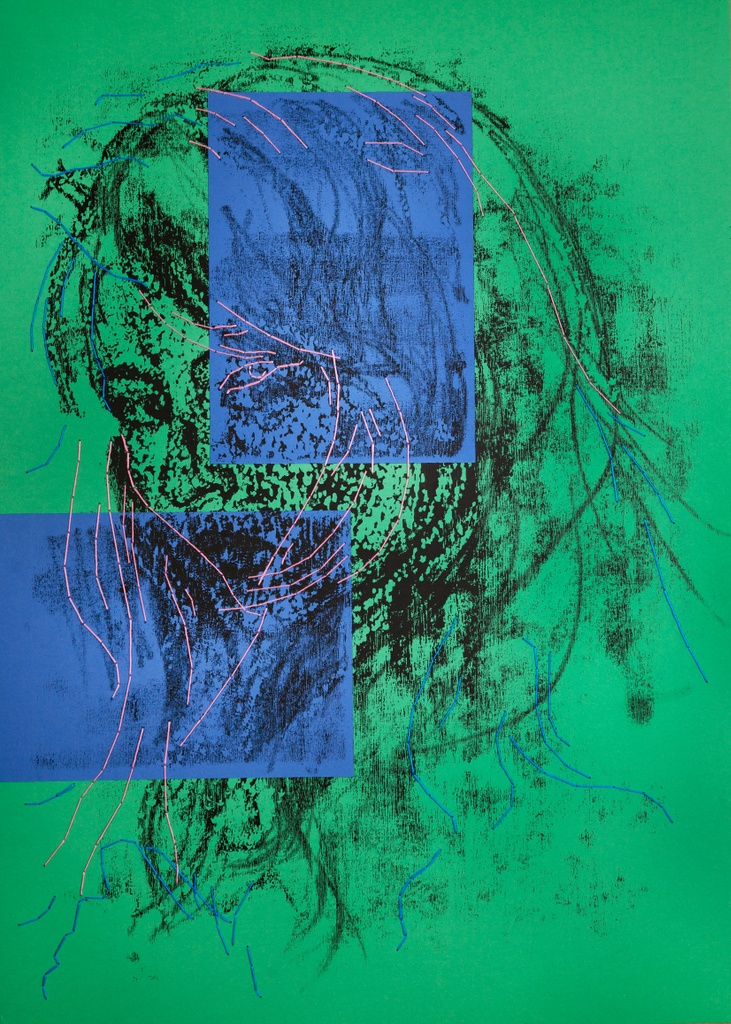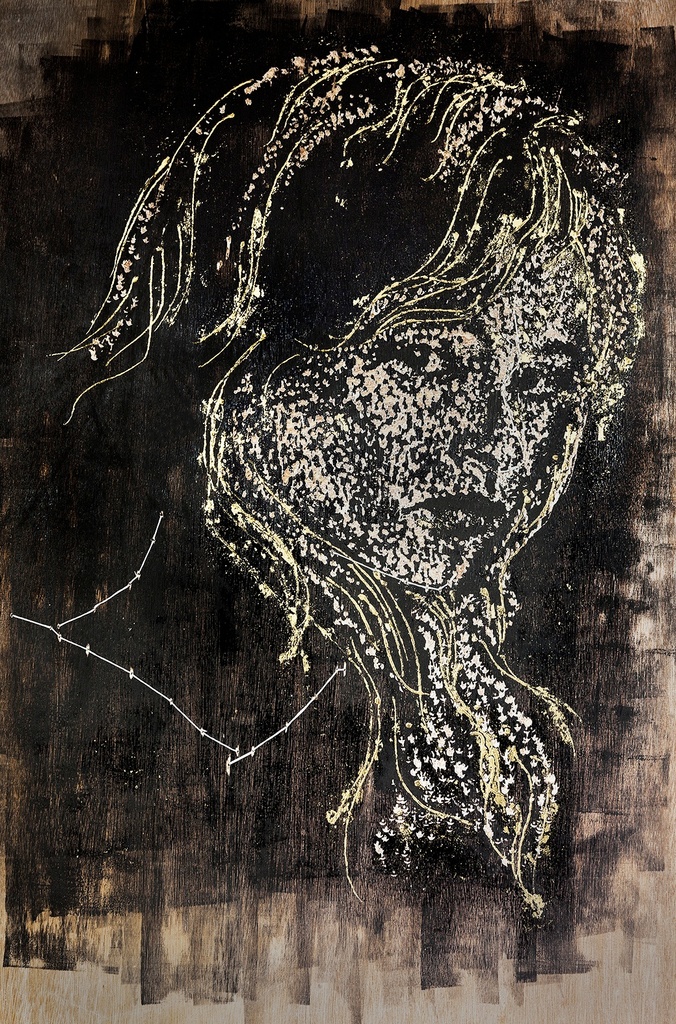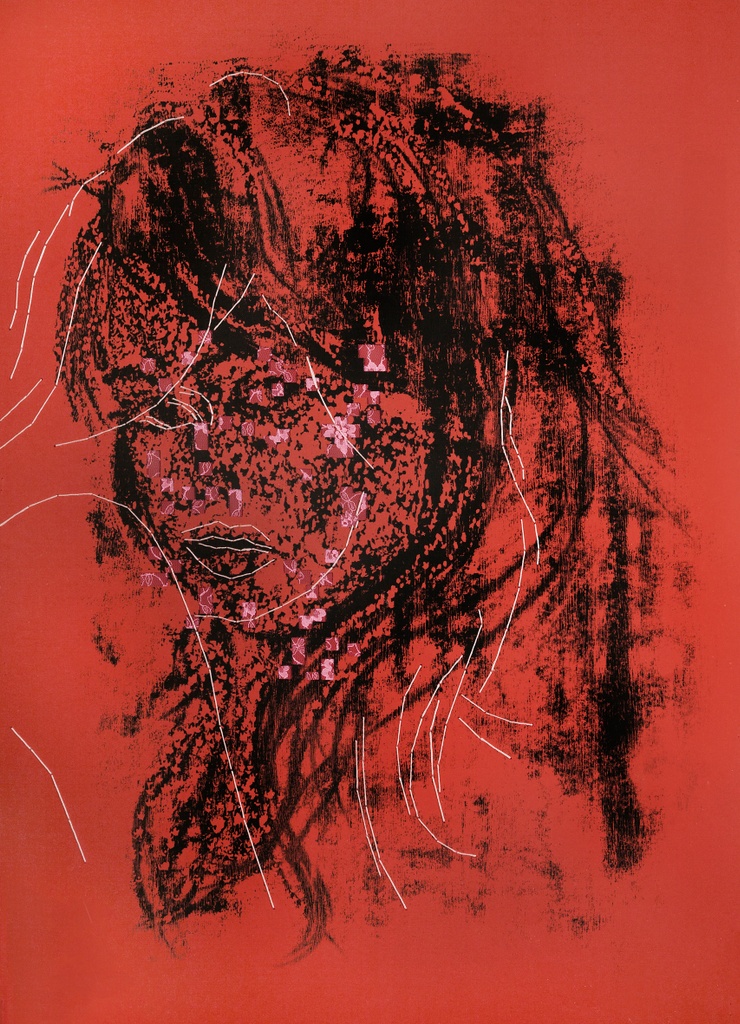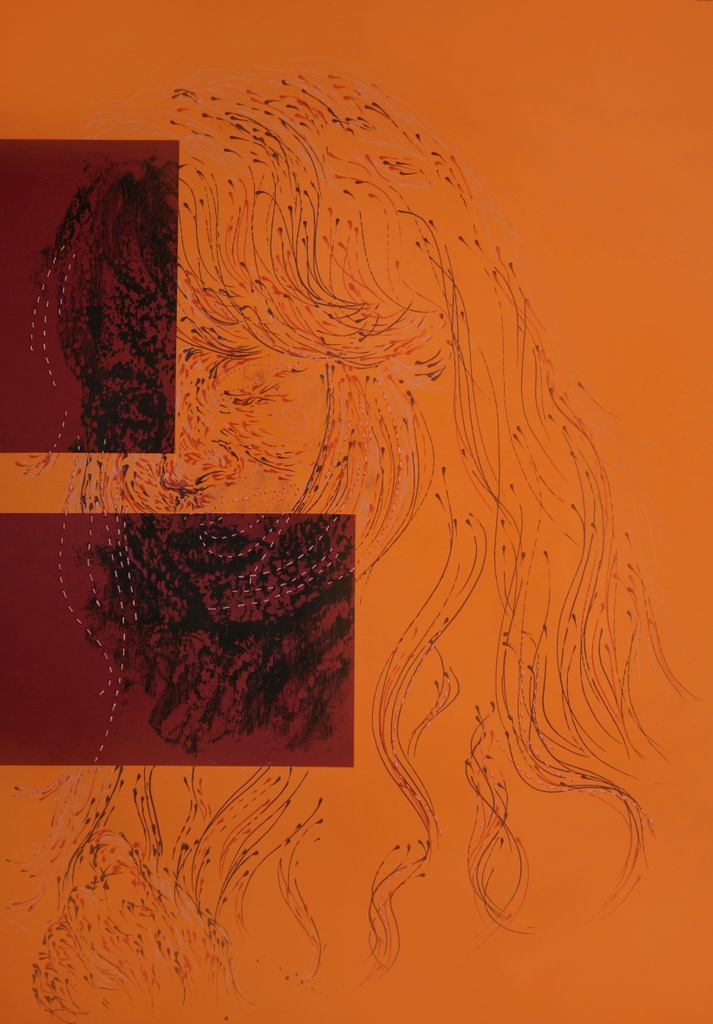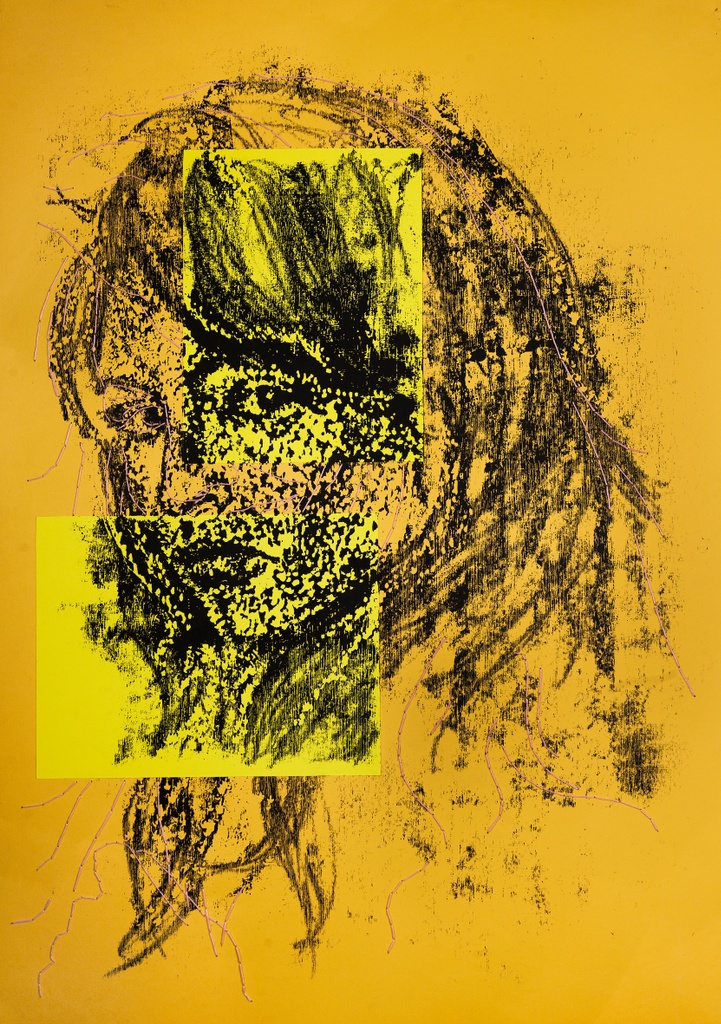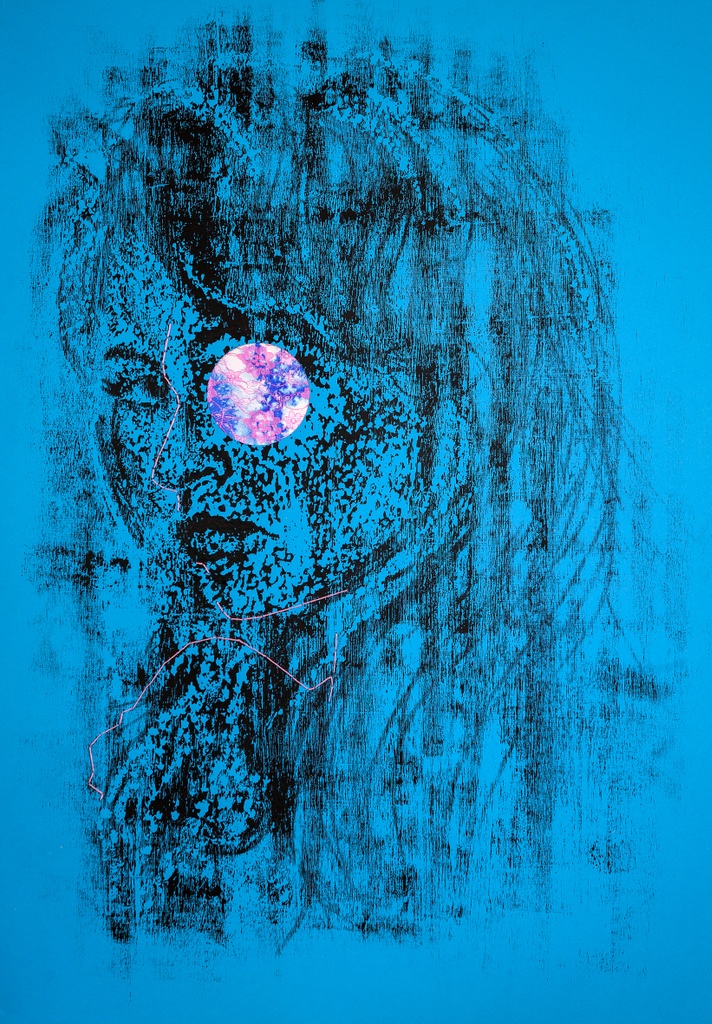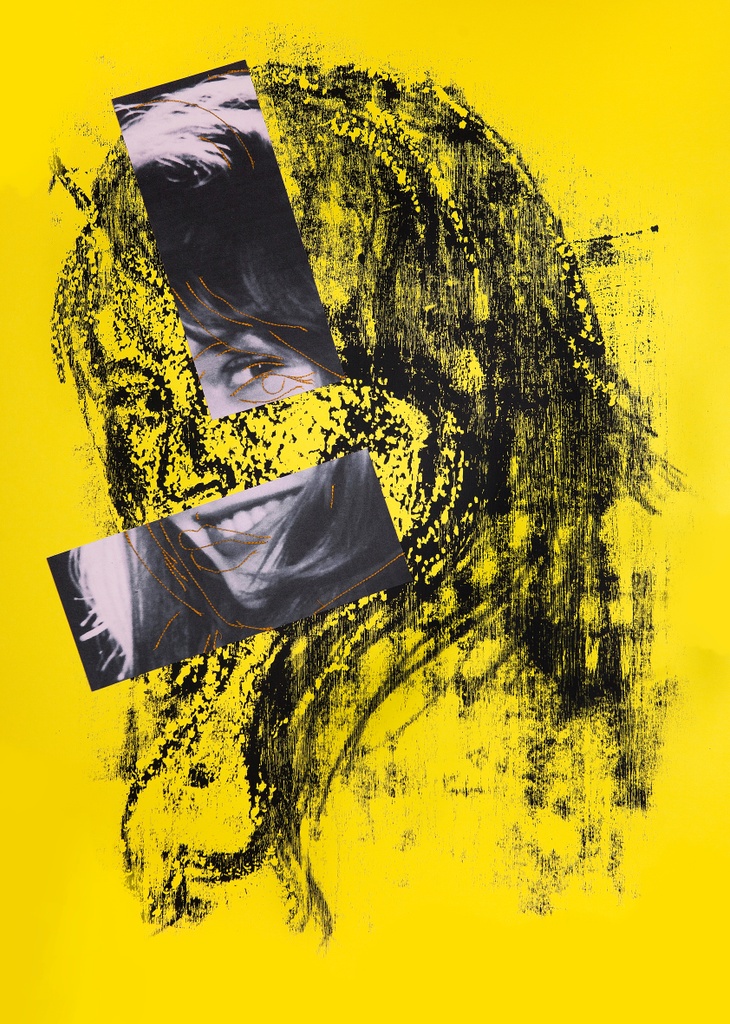@Anthony-Pearce
Behind the Black
by Ant Pearce
Works from this series were created over the Summer of 2019 while living in Capitola Village, California. Inspired by the artist’s friends, art director and curator Suzie Quill, fellow artist and contemporary Annie Terrazzo; and coach, CrossFit Games athlete Annie Sakamoto.
The series deals with the process of repair, while exploring ideas related to consciousness and awareness. Outside influences were provided by the artist Kader Attia’s exhibition The Museum of Emotion which took place at the Hayward Gallery, London 2019, and topics discussed by author and neuroscientist Sam Harris in his writings and podcasts.
Each piece is based on images from high end fashion magazines, created in watercolour, using a limited palette. The artist’s focus was to develop techniques in colour harmony taught to him by his contemporary and friend Rebecca Boyd Allen during his stay in London during the Spring of 2019.
Layers of Separation
by Ant Pearce
This series was created through April 2020 during the initial weeks of the Covid-19 lockdown. The artist reflects on his return to London from Capitola Village, CA, over a six month period from October 2019 to March 2020 — one of the darkest but most enlightening periods so far in the artist’s adult life.
Each painting explores the experiences and clear visualisations of Planes of Existence within Space Time; how everything appears flat, constructed through infinite Layers of Separation; within a web which bends back on itself. The artist examines the sudden formation of fractures within the psyche and continues to express the process of repair through friendship. Specifically the idea of a Blessing, communicated by poet David Whyte in his talk A Great Invitation: The Path of Risk and Revelation. How the arrival of a Blessing is an invitation to join the story again; to open up to powers that are larger than yourself. And how one can be healed out of imprisonment by accepting a Blessing. A friend who is a constant Blessing in and of themselves; helping in visible and invisible ways; who is able to walk with you, as a companion, even if they are on the other side of the World.
This series was inspired by the artist’s friend and coach Annie Sakamoto who remains a constant Blessing through Space Time.
Outside influences have been provided by the artist Kader Attia’s exhibition The Museum of Emotion and Dorothea Tanning’s exhibition at Tate Modern, both which took place in London 2019; as well as topics discussed by writer and speaker Alan Watts, Donald Hoffman author of ‘The Case Against Reality’ and the afore mentioned poet David Whyte. All works were created while listening to Chaconne in D Minor by J. S. Bach; played by Russian pianist Evgeny Kissin.
Artwork is based on images from a high end fashion magazine, created in watercolor, using a limited palette. Specifically colours used to mix Black — even in the darkest hour there is always colour hidden, waiting for the perfect moment to emerge out of the shadows. Influenced by the paintings of Andre Lhote, the artist’s focus was to further develop techniques in colour harmony taught to him by his contemporary and dear friend Rebecca Boyd Allen during his stay in London during the Spring of 2019.
Reanimation
by Ant Pearce
Reanimation is an exhibition of select pieces created by Ant Pearce while living in Capitola Village, CA. The series is multi layered and revisiting aspects of the human psyche with an emphasis on the longing to return to the true self; the repressed subconscious, named the Id by Freud and the Shadow by Jung; and its bound relationship with the Ego. Through this personification, the artist explores the significance of Women whilst also reflecting on elements of his own psyche.
Inspiration came from the coast line and forest of Capitola, his contemporary and muse; Diana V Walsworth and, the amazing women of CrossFit SC Central, especially Annie Sakamoto, Kelly Greco, Helene Bouchard and Carmen D’Aluisio. The artist has combined his signature use of thread, hand-stitched on paper, with fabric designs by Ana Carolina Cinta, while using old and new approaches to layering and mark-making with watercolor; introduced to him by London based American artists Julia Colmenares and Rebbeca Allen. Outside influences came from artists Christine Ay Tjoe (White Cube, Bermondsey) and Anni Albers (Tate Modern) and writings by authorities in Jungian psychology.
At the highest level there is a sense of freeing; of becoming and; stepping out of the cage.; mirrors and shifting reflections enabled a change in perception — instigating a more harmonious partnering of id and ego and thus facilitating a clearer view into the darker (and golden) aspects of Self. Here, honesty, contentment, action, growth and intuition, suffering and pain blend together and are able to occur/be experienced at the same time.
Layered within this, through the use of symbols, is a focus on the importance of Women within the System:, as individuals and as a collective, and their implicit connection to the System, as the creators and nurturers of human life; together with their innate understanding; through intellect; compassion; strength and intuition.
These principles have been seamlessly introduced to the artist through these women, who have an intrinsic sense of wisdom. This, coupled with connecting with the energy and space in nature, allowed him profound access into the darker and brighter aspects of character — the duality, of internal suffering and pain joined with creativity, lightness, strength and warmth; something he had not experienced before.
‘When I awoke I realised at once that the [gigantic black] figure was my own shadow on the swirling mists, brought into being by the little light I was carrying. I knew too that this little light was my consciousness, the only light I have. Though infinitely small and fragile in comparison with the powers of darkness, it is still a light, my only light.’
Carl Jung, Memories, Dreams, Reflections (Zweig and Abrams, 1991, p. xvii).
Special thanks to Saatchi Art Curator Monty Preston for her assistance and support.
References
Zweig, C. and Abrams, J. (eds.) (1991) Meeting The Shadow. 1st edn. New York: Penguin Group USA.
Sapiens I
by Ant Pearce
Sapiens I, based on images by photographer Seth Casteel, explores the notion that at birth we enter into a system governed by other peoples idea of reality.
This is touched on in ‘Sapiens A Brief History of Humankind’, referred to as the Imagined Order — ‘…every person is born into a pre-existing imagined order, and his or her desires are shaped from birth by its dominant myths…an inter-subjective order, existing in the shared imaginations of thousands and millions of people’, (Yuval Noah Harai, 2011, p.128, p.131).
Inspired by Bridget Davis (fellow TOAF artist), the work is created primarily with ink and water. In contrast to previous series that showed structure and layering this series is spontaneous and organic in nature.
References
Harari, Y. (2011). Sapiens A Brief History of Humankind. London: Vintage
Transcendental Aesthetic I
by Ant Pearce
Transcendental Aesthetic I presents a series of ten small works of Brigitte Bardot, created during November 2016. Images taken by Sam Lévin between 1959–1963, which Bardot said ‘…managed to capture my quintessential natural, reliable and sometimes even sublime beauty…thanks to him I will remain in the eyes of the world eternally beautiful, young and unforgettable’, provide the foundation for this new series. (Sam Lévin, 2001, p. 6)
Visualised during two concerts at Milton Hall, London, 2016; Bach’s Mass in B Minor in late October and select pieces from Beethoven’s later works, in early November; the theme of the series is linked to fragments from the opening writings of Immanuel Kant’s Critique of Pure Reason, Transcendental Aesthetic. Here Kant describes space and time as forms of intuition rather than concepts, since both rely on our sensibility not our understanding. There is only one space; ’…for all parts of space, up to infinity, are simultaneous…’ and only one time; ‘different times are only parts of one and the same time’, but they are successive not simultaneous. (Kant, 2007, p. 63, 67)
Through experimental drawing, further developing the use of cotton fabric within each of the works, while combining the artist’s signature hand stitching with machine stitched elements — each multi-layered piece is an expression of space and time.
References
Kant, I. (2007). Critique of Pure Reason. London: Penguin Classics
Lévin, S. (2001). Brigitte Bardot par Sam Lévin. France: PC Editions
Transcendental Aesthetic II
by Ant Pearce
Transcendental Aesthetic II (and III) follow on from Transcendental Aesthetic I. This three part series is based on images of Brigitte Bardot taken by Sam Lévin between 1959–1963, which Bardot said ‘…managed to capture my quintessential natural, reliable and sometimes even sublime beauty…thanks to him I will remain in the eyes of the world eternally beautiful, young and unforgettable’, (Sam Lévin, 2001, p. 6).
Part I was visualised during two concerts at Milton Hall, London, 2016; Bach’s Mass in B Minor in late October and select pieces from Beethoven’s later works, in early November, a three part series of ‘Late Style’ piano curated and performed by American pianist Jonathan Biss.
Part II and III mirror Biss’s three part series of ‘Late Style’ piano concerts. Part II was influenced by the Schumann’s Op133 and Brahms Op 118, performed in late March 2017 —exploring aspects of time, space and memory.
Use of colour in Part II and III were incited/motivated by Josef Albers ’Sunny Side Up’ show, which took place at the David Zwirner Gallery, London, in early 2017.
References
Lévin, S. (2001). Brigitte Bardot par Sam Lévin. France: PC Editions

